
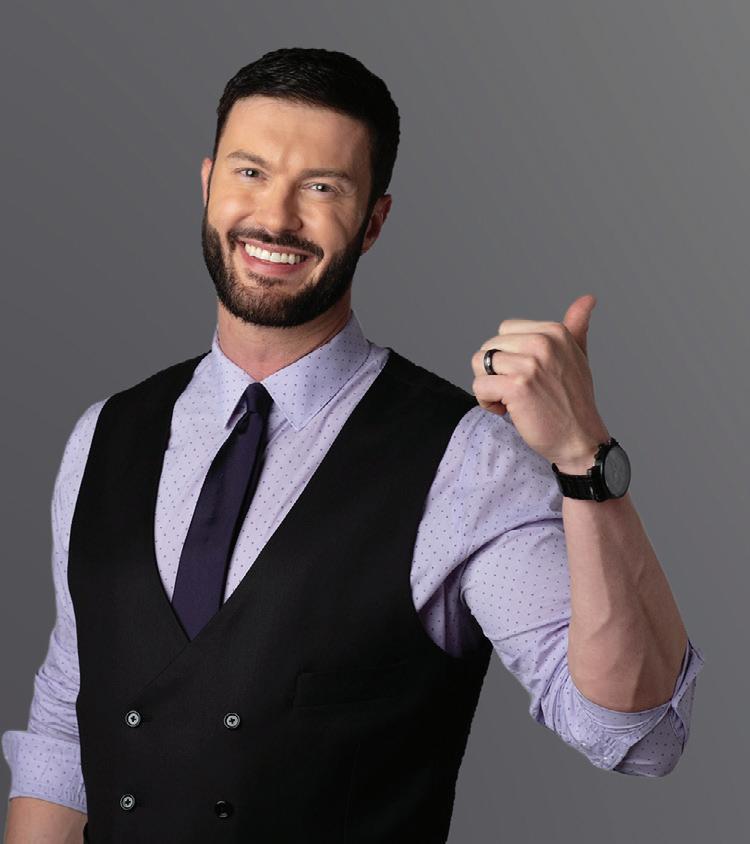
Practitioner Profile Adam Vander Heyden, Esq. www.VegasLegalMagazine.comVolume 8 Issue 4 District Attorney Steve Wolfson Look Back – And Forward
EDITOR IN CHIEF

PRESTON P. REZAEE, ESQ.
PUBLISHER
TYLER MORGAN, ESQ.
DIRECTOR OF OPERATIONS
JEFFRY COLLINS, ESQ.
MARKETING
DIANA COLLINS
CREATIVE DIRECTOR
PIERCE
ADVERTISING
INFO@VEGASLEGALMAGAZINE.COM CALL 702-222-3476

CONTRIBUTORS
NEDDA GHANDI, ESQ. STAN SMITH, PH. D. SAGAR RAICH, ESQ.
ANDRÉA VIEIRA, ESQ.
AMANDA LAUB, ESQ.
MARK FIERRO
JEFF HANEY
VALERIE MILLER
MARK MARTIAK DANIEL HERRERA
DONOVAN THIESSEN, CPA DON LOGAY RICCI J. LOPEZ MYRON MARTIN ANDREW CASH, M.D.
BRANDON
42 COVER STORY: DISTRICT ATTORNEY STEVE WOLFSON




LAW 12 | BENEFITS OF SUBCHAPTER V FOR SMALL BUSINESSES 16 | COURT OF PUBLIC OPINION 20 | PRACTITIONER PROFILE: ADAM VANDER HEYEDN, ESQ. 22 | MEET THE INCUMBENT: JUDGE ELLIE ROOHANI 24 | MEET THE INCUMBENT: JUDGE RHONDA FORSBERG 26 | MEET THE CANDIDATE: ADAM GANZ, ESQ. 28 | MEET THE INCUMBENT: JUDGE SUZAN BAUCUM 30 | VEGAS ICON 37 | WE THE PEOPLE OF THE STATE OF NEVADA 42 | COVER STORY: DA STEVE WOLFSON 46 | WOLFSON’S OFFICE TO PROSECUTE BUSINESS 52 | STATE OF THE MARKET 56 | HOUSING MARKET: CHANGE OF DIRECTION 60 | ADHD: THE SUPERPOWER IN BUSINESS 64 | PRESIDENT BIDEN’S BUILD BACK BETTER ACT 72 | ASSETS OF THE FUTURE LIFESTYLE 78 | CUSTOM EVERYTHING 80 | ATOMIC LIQUORS 86 | THE SMITH CENTER 88 | VEGAS LOOP 94 | THOUGHTS ON HAVING A ROUTINE 96 | REMEMBERING OLIVIA NEWTON-JOHN 99 | HUMOR 12 52 78 Contents BENEFITS OF SUBCHAPTER V FOR SMALL BUSINESSES STATE OF THE MARKET CUSTOM EVERYTHING

LETTER
THE EDITOR
It’s election time again! Yes, again! While it seems like the elections never end these days, it’s still important to get out and vote. On that note, Clark County District Attorney Steve Wolfson is featured on our cover. In addition to being the DA who has been enforcing laws in the Las Vegas Valley through our tremendous growth, Wolfson also has the distinction of being featured on the very first issue of Vegas Legal Magazine. When reading this feature, you can see the journey Wolfson took: from defense attorney to Las Vegas City Council member to district attorney.
At a time when increasing crime is on the minds of so many Americans, it is more important than ever to get it right when it comes to picking the candidate who will fight to keep dangerous criminals off the street. Likewise, most residents want someone who will apply justice evenly. Justice, after all, is supposed to be blind.
A stark reminder of how important it is to keep our streets safe came over Labor Day Weekend, when longtime local reporter Jeff German was killed outside his Las Vegas home. German’s death made national news, and was a wake-up call for many who think that crime always “happens to someone else.”
On a lighter note, Vegas Legal also takes a nostalgic look back at some of the historical businesses in downtown Las Vegas. It’s important to preserve what made Vegas great in the first place. Las Vegas is often criticized for not valuing its history, and blowing up old hotels. So, it’s nice to see some of Sin City’s iconic businesses treasured.
Also, don’t miss our in-depth look at what to watch out for in the newly-passed Inflation Reduction Act (IRA). The new law is unlikely to do what its name states – reduce inflation. Regardless, there are still a lot of tax consequences.
Enjoy this issue, and we here at Vegas Legal Magazine appreciate the opportunity to inform you.
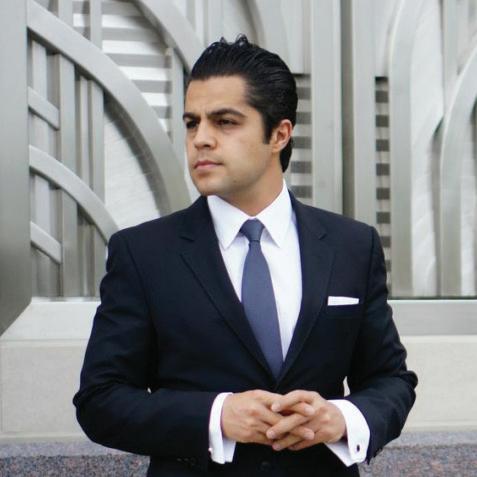
FROM
VEGASLEGALMAGAZINE.COM | 5

PUBLISHER

Build Back Better is back – for better or for worse. A “skinny” version of President Joe Biden’s massive package of climate and social spending, corporate tax hikes and IRS enforcement was just passed by Congress. Biden then ceremoniously signed the $739 billion bill, also known as the “Inflation Reduction Act.” One of the many problems with the new law is it will not do much to actually reduce inflation, even as progressive Vermont Sen. Bernie Sanders admits.
What we know about the Inflation Reduction Act is that it will result in the hiring of more than 80,000 new Internal Revenue Ser vice agents. The IRS will get $80 billion to enforce what Democrats call audits on “millionaires and billionaires.” The problem is, there simply are not enough millionaires and billionaires for 80,000 new IRS new agents to audit. So, one has to wonder what those 80,000 new agents will do with their time. The most likely answer is that thy will go after the small business people, the middle class and the lower-income people. Afterall, these groups do not have the money that corporations do to hire expensive tax-defense attorneys.
Other provisions in the bill address the expansion of health-care premium subsidies for the Affordable Care Act, and are sup posed to bring down some prescription drug costs. This all sounds good. But let’s wait and see what happens when the Infla tion Reduction Act is implemented. Readers can learn more about the new law in this issue of Vegas Legal Magazine.
Flipping the page in this issue of Vegas Legal, our cover story looks at Clark County District Attorney Steve Wolfson’s re-election bid – and his long tenure as DA. Be sure to also look for our story on Elon Musk’s Boring Company and his Las Vegas “loop” project. Musk plans to link a series of tunnels in Las Vegas, connecting locations such as the Las Vegas Convention Center and the Las Vegas Strip.
Rounding out this issue of Vegas Legal, we look at the importance of “Subchapter V” in the bankruptcy code for small busi nesses. Plus, readers can learn about the risks of driving under the influence of marijuana, the benefits of ADHD for business people, and assets in the Metaverse.
As always, we pack a lot in every issue of Vegas Legal. Thank you for reading!
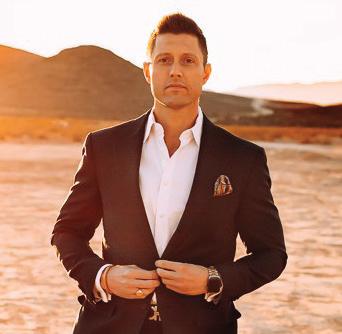
LETTER FROM THE
VEGASLEGALMAGAZINE.COM | 7
THRU





YOU CAN TRUST! ABOUT US FILE
TRIAL™ First Legal is the first comprehensive File Thru Trial™ solutions firm For over 30 years, we have offered a streamlined experience with fast turnaround. Our five divisions work together to tackle every assignment with precision and excellence. INVESTIGATIONS RECORDS DIGITAL Skip Trace Surveillance & Sub Rosa Difficult Service of Process Subpoena & Authorization Services Document Management Deposition Officer Services Scanning & Copying eDiscovery Data Processing & Review Get in touch | 702.671.4002 | www.firstlegal.com | info@firstlegal.com COURT & PROCESS Court Filing Research Service of Process First Legal simplifies the litigation process from File Thru Trial™ From the beginning to end of the litigation process or at any point in between, we are here for you. Our broad range of services help simplify your workload. DEPOSITIONS Court Reporting Legal Videography Trial Services CA PI: 24171, AZ PI: 1551710, NV LICENSE: NV PI PS: 1452, FIRM NO: 094F




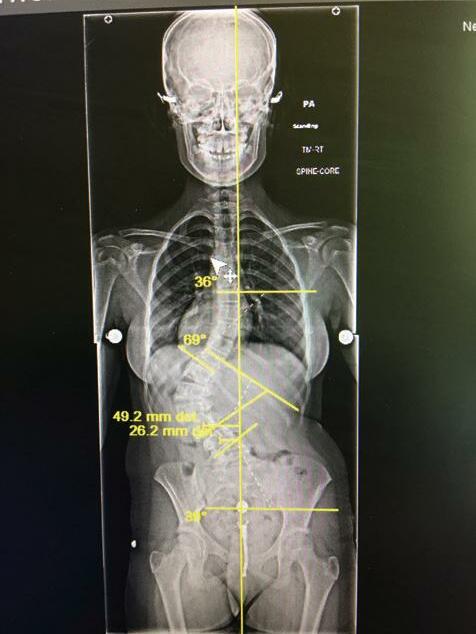

LAW

“Ethics is knowing the difference between what you have a right to do and what is right to do.”
– Potter Stewart
BENEFITS OF SUBCHAPTER V FOR SMALL BUSINESSES
Writtten By Nedda Ghandi, Esq.
On August 23, 2019, Congress enacted the Small Business Reorganization Act of 2019 (“SBRA”), which became effective on February 19, 2020. The SBRA created what is known as Subchapter V of Chapter 11 of the Bankruptcy Code comprised of §§ 1181 through 1195 of the Code (“Subchapter V”). For many years, financially distressed small businesses were unable to utilize Chapter 11 in the same way large businesses could because the process was too expensive, too lengthy, and simply not feasible. The SBRA offers small businesses the same benefits larger debtors receive in a regular Chapter 11 bankruptcy including reducing liabilities, rejecting burdensome leases and executory contracts, eliminating debts, and selling assets.

However, subchapter V made several substantive and procedural changes to the Code, which were intended to streamline the Chapter 11 process for small business debtors by streamlining the plan of reorganization process, enabling small businesses to successfully emerge from bankruptcy with a court-approved plan within 90 days after filing for bankruptcy.
Some critical changes and benefits of Subchapter V include:
1. Streamlined Processes and Requirement to File the Plan of Reorganization
12 | VEGASLEGALMAGAZINE.COM
A Subchapter V debtor is not required to file an accompanying Chapter 11 disclosure statement, unless ordered by the bankruptcy court for cause. The elimination of the disclosure statement requirement significantly reduces cost of preparing a plan and expedites the confirmation process. The § 1111(b) election deadline for creditors is shortened in our district to a mere ten (10) days by an order entered by the clerk at the onset of a Subchapter V case. The deadline for filing proofs of claim is also shortened. Both debtors and creditors need to pay attention and immediately participate in a Subchapter V case.
In a Subchapter V, debtors generally are required to file a plan within 90 days after entering bankruptcy, absent a showing of circumstances “for which the debtor should not justly be held accountable.”
This expedited plan timeline may not be ideal for some debtors, but for many debtors it functions as a minor inconvenience given the more relaxed economic standards and factors discussed below.
The SBRA provides for a shortened timeline to file a plan:
• Not later than 60 days after the bankruptcy filing, the bankruptcy court will hold a status conference “to further the expeditious and economical resolution of a case under this subchapter.”
• Not later than 14 days before the status conference, the debtor’s bankruptcy counsel is required to file a report that details the steps the company and its advisors have taken to attain a consensual plan of reorganization.
• Unless the debtor requests an extension related to circumstances outside of its control, the Chapter 11 plan of reorganization must be filed not later than 90 days after the bankruptcy case is filed.
• Only a debtor may file a Chapter 11 plan in a Subchapter V case. This limitation allows Subchapter V debtors to focus on their plan without having to worry about exclusivity or the distraction posed by a competing plan proposed by creditors.
Once the debtor completes all payments according to the plan, the reorganized debtor will receive a discharge from all of its pre-confirmation debts.
Much like a Chapter 13 case for individuals with regular monthly income, Subchapter 5 allows a small business debtor to spread its debt over 3 to 5 years, which benefits both debtors (by allowing them to spread payments over time) and creditors (by allowing them a meaningful recovery from debtors who may not have much money on hand but have a realistic expectation of increased income in the future). A plan of reorganization will generally be confirmed by the bankruptcy court so long as it provides that all projected disposable income of the debtor for 3 to 5 years will be used to make plan payments; or the value of property to be distributed under the 3-5-year plan, beginning on the date on which the first distribution is due, is not less than the projected disposable income of the debtor. In a traditional Chapter 11 case, administrative expenses must be paid at plan confirmation; under Sub-Chapter 5, they may be paid over the life of the plan.
2. Eligibility for Subchapter V: Debt Amount and Recent Adjustments
To be eligible for Subchapter V, a debtor must (1) meet the definition of a “small business debtor”; and (2) elect to be treated as a debtor under Subchapter V. Prior to the COVID-19 pandemic, the Bankruptcy Code defined a small business debtor as a business “engaged in commercial or business activities . . . that has aggregate noncontingent liquidated secured and unsecured debts . . . in an amount not more than $2,725,625 (excluding debts owed to 1 or more affiliates or insiders) not less than 50 percent of which arose from the commercial or business activities of the debtor.”
As part of the Coronavirus Aid, Relief, and Economic Security Act of 2020, Congress temporarily increased the debt limit under this Bankruptcy Code section from $2,725,625 to $7.5 million until March 27, 2021. This increase made it possible for more substantial companies, with significant contingent and unliquidated debts that might otherwise be compelled to reorganize under the traditional Chapter 11 provisions, to qualify for Subchapter V’s more relaxed standards. On March 27, 2021, Congress passed the COVID-19 Bankruptcy Relief Extension Act, which extended the increased debt cap provision through March 27, 2022. Although
VEGASLEGALMAGAZINE.COM | 13
Congress did not act immediately, on June 7, 2022, Congress subsequently passed the Bankruptcy Threshold Adjustment and Technical Corrections Act, which retroactively reinstated the $7.5 million debt threshold for an additional two years. Accordingly, until at least June 2024, Subchapter V will remain a viable option for a much larger pool of small and mid-sized businesses to reorganize.
3. Modification of the absolute priority rule
The SBRA offers small business owners the opportunity to retain their ownership interest in the reorganized company. In a regular Chapter 11 bankruptcy, the “absolute priority rule” provides that existing owners of a debtor may not retain their equity interest in the debtor over the objection of a class of unsecured creditors, unless the unsecured class is paid in full or the owners contribute material new value into the debtor. In what is perhaps the single most important modification of the traditional Chapter 11 requirements to a non-publicly held company, that rule simply does not apply in a Subchapter V case — as long the plan provides that unsecured creditors will be paid the debtor’s “disposable income” for a period of three years (or up to five years if extended by the bankruptcy court). In that event, equity holders of a Subchapter V debtor may continue to own and manage their

business, even when unsecured creditors are paid a de minimis sum and vote against the plan or object to confirmation.
4. Changes Related to Administrative Expenses and Reduced Creditor Involvement
Subchapter V provides that an official committee of unsecured creditors will not be appointed unless ordered by the bankruptcy court for cause. Therefore, in small business cases, the appointment of an official committee will be the exception, not the rule. The elimination of a creditors’ committee significantly reduces administrative expenses and overbearing oversight that may sometimes scuttle traditional Chapter 11 cases.
Relatedly, Subchapter V debtors are also excused from paying United States Trustee quarterly fees. A Subchapter V debtor also may pay administrative expense claims over the term of the plan. In contrast, in traditional Chapter 11 cases, the debtor must pay administrative expense claims on the effective date of the plan or in the ordinary course of business. This allows a Subchapter V debtor to amortize some of the costs of filing bankruptcy.
14 | VEGASLEGALMAGAZINE.COM
5. Mortgage Modification and Protection
For many small business owners, obtaining start up financing requires personal sacrifice. Many folks have to put up their personal residence as security for business debts. Subchapter V makes it harder for creditors to take away a business owner’s residence pledged as collateral to support the business. For example, if the owner of the small business debtor used his or her primary residence as security for a loan to fund the small business, the debtor can seek to modify the mortgage against the primary residence, provided that the mortgage loan was not used to acquire the real property but was used primarily in connection with the debtor’s business.
6. Appointment of Standing Trustee
In a regular Chapter 11 bankruptcy, a Chapter 11 trustee is appointed only for cause, such as fraud or gross mismanagement, and seizes control of the debtor’s operations. Under Sub-Chapter V,
a “standing trustee” is automatically appointed, but the debtor retains control of its assets and operations. The Sub-Chapter V trustee is similar to the trustee in a Chapter 13 individual debtor bankruptcy. The Sub-Chapter V trustee’s main role is to facilitate a consensual plan among the debtor and its creditors, similar to a mediator. This may be helpful in reaching a resolution among the debtor and its creditors, and may be particularly useful for a small business whose creditors are unwilling to make reasonable concessions in light of the impending financial crisis.
Subchapter V is a powerful tool for small businesses to reorganize in a more cost-effective manner without having to contend with some of the substantial hurdles to confirmation imposed by traditional Chapter 11 cases. Recent changes in the debt threshold have opened Subchapter V to a much broader range of companies until at least June 2024. Debtors should also be aware that while Subchapter V may create a clearer path to confirmation, they must comply with, the more stringent timing requirements, such as the requirement of filing a plan within 90 days after filing bankruptcy. For struggling small businesses, Subchapter V may be an amazing tool for reducing debt in order to reorganize and turn their business around.
Nedda Ghandi, Esq., is the founding partner of Ghandi Deeter Blackham Law Offices. A Nevada native, Ghandi is a graduate of the University of Nevada, Las Vegas William S. Boyd School of Law and has practiced law in Las Vegas for 9 years. Ghandi has written numerous articles for publications concerning interesting developments in the law, and has been selected as a member of Nevada’s Legal Elite and as a Super Lawyer every year since 2013. Ghandi Deeter Blackham specializes in family law, bankruptcy, guardianship, and probate. Consultations may be scheduled by calling 702.878.1115 or visiting www.ghandilaw.com Nedda Ghandi, Esq., is the founding partner of Ghandi Deeter Blackham Law Offices. A Nevada native, Ghandi is a graduate of the University of Nevada, Las Vegas William S. Boyd School of Law and has practiced law in Las Vegas for 9 years. Ghandi has written numerous articles for publications concerning interesting developments in the law, and has been selected as a member of Nevada’s Legal Elite and as a Super Lawyer every year since 2013. Ghandi Deeter Blackham specializes in family law, bankruptcy, guardianship, and probate. Consultations may be scheduled by calling 702.878.1115 or visiting www. ghandilaw.com
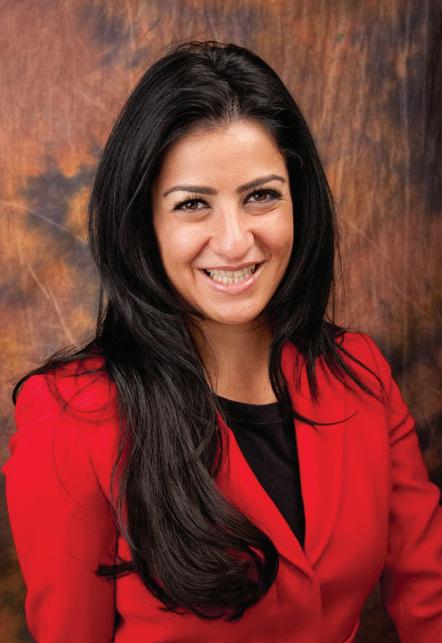
VEGASLEGALMAGAZINE.COM | 15
COURT OF PUBLIC OPINION
Written By Mark Fierro
Cannabis is legal in Nevada.
That is, unless you ever have occasion to drive a car.
The effects of cannabis use might be felt for a couple of hours, maybe five or six hours tops. But the truth is that for days after use, if you are in a car accident, then you can lose your house, you can be imprisoned, and you can have your children taken away — even if the accident is no fault of your own.
If that sounds ridiculous, consider the story of Jeff Krajnak, a veteran of military duty in combat in Iraq and Afghanistan.
After serving his country and returning home to the U.S., Krajnak developed a serious case of PTSD.
He found himself waking up in the middle of the night pulling the trigger on a phantom M16 rifle on phantom enemies of America.
The “solution” from the Veterans Administration was to place him and thousands of other veterans on a cocktail of 11 powerful prescription medications including oxycodone, which left Krajnak feeling “like a zombie,” as he put it.
The opioid-fueled mixture did little to diminish the PTSD, but it left Krajnak feeling aimless, depressed and with constant bouts of suicidal ideation.
His veteran friends said to move to Las Vegas because medical cannabis was legal at the time in Nevada, even before recreational legalization.
Krajnak followed their advice, began responsibly using cannabis, left the VA drugs behind, and in short order was sleeping through the night. His suicidal thoughts were gone. He felt balanced in life again.
He was careful. He only consumed cannabis in the evening after his two kids were asleep.

He was productive, working at a longtime job, and felt he was getting back on track in life.
On April 29, 2017, Krajnak was involved in a crash on Boulder Highway at U.S. 95 in which another driver was fatally injured. It had been 20 hours since Krajnak last used cannabis — when he smoked the previous night before bed.
The state’s most highly regarded accident investigator, William Redfairn, would conclude
that Krajnak was not at fault in the crash, confirming what witnesses on the scene told Nevada Highway Patrol officers.
But it doesn’t get straightened out. It only gets worse.
Shortly after noon on May 31, 2017, a police SWAT team came banging on the door of his home.
“It was 10:30 a.m., they came to the door with a full SWAT team with tactical gear and auto weapons,” Krajnak said. “They grabbed me and slammed me against the wall.”
The entire episode was captured on the family’s video home security system.
“I told them, ‘I have video cameras,’ and they backed off a little bit.”
If there is one saving grace, Krajnak says, it was that his twins were at school.
“They handcuffed me, drove to jail.”
Krajnak stayed in jail in lieu of $250,000 bail. He stayed for six months. He and his family scraped together $8,500 for an attorney.
But even though Krajnak was not at fault in the crash, he faced 16 years behind bars as well as the threat of the loss of his children — all for an accident that took place many hours after any effects of cannabis had passed.

The judge in the case, District Judge Caroline Ellsworth, normally a hanging judge regarding impaired driving or any type of drug use, saw the terrible inequity of sending him to jail. Ultimately Krajnak was released on probation.
Deprived of the ability to use cannabis under the terms of his probation, however, he had no choice but to go back on the cocktail of drugs prescribed the VA.
His life was in tatters.
And although he walked out the courthouse door a free man, he was still on probation and had faced tens of thousands of dollars in fines and restitution — all for an accident everyone agreed he did not cause.
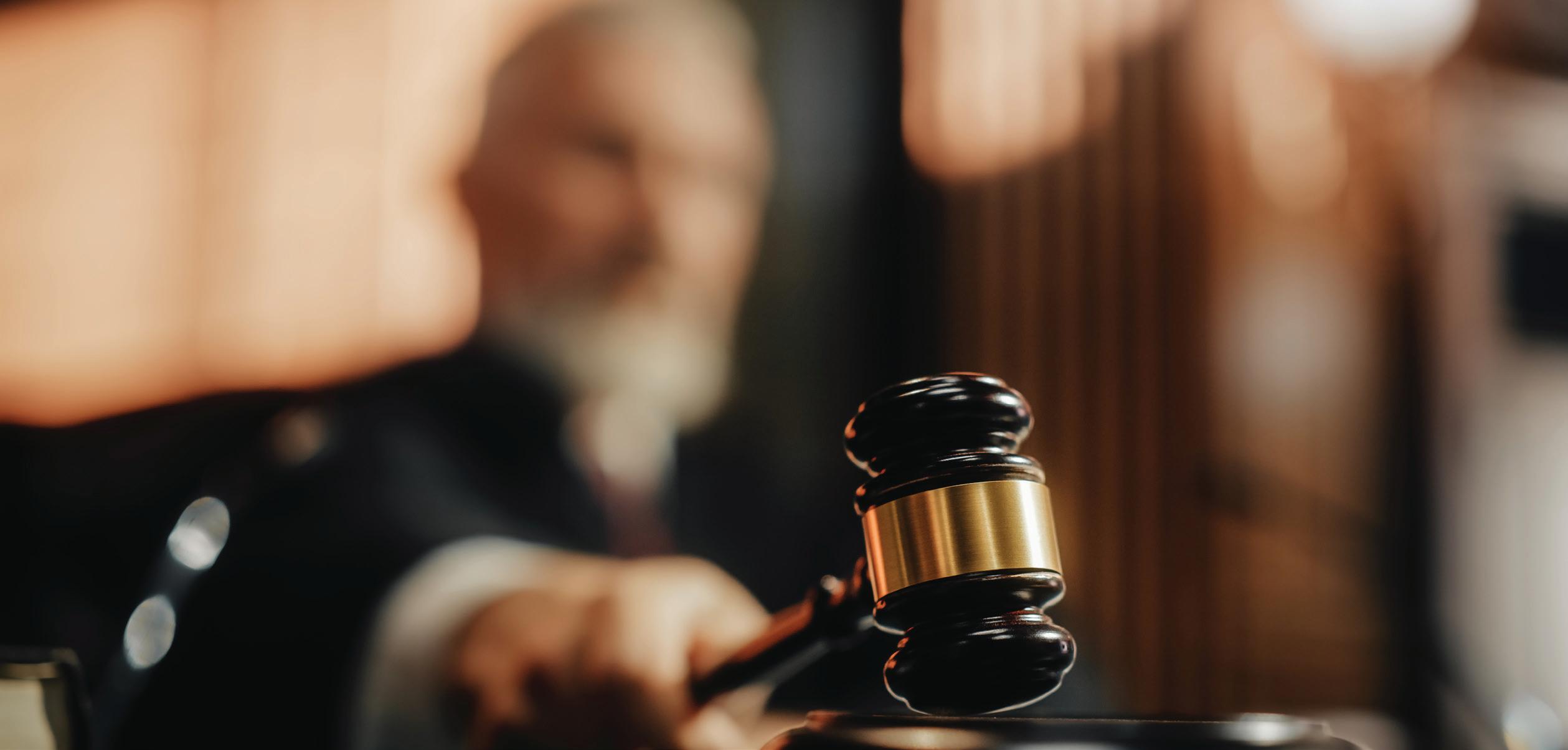
Fast forward to today, and Jeff Krajnak is finally a free man, his probation period having come to an end. He is a productive citizen and the threat to his family is over.
But the threat to people who legally use cannabis in Nevada is not.
Krajnak’s story is a result of a complete lack of fortitude on the part of the Nevada Legislature, which knows of the problem yet will probably be among last to change the so-called “per se” law and make it right for the people of Nevada.
Essentially, we’re back to the 1930s and “Reefer Madness” — apparently no one wants to make it OK for you to use the “demon weed,” even after legalization in the state. Observers say it was the Republicans who were unwilling to look out for Nevadans on the issue.
So just remember: If you use cannabis in any form, for two or three days afterward, there easily could be enough of the metabolite (which has no impact on driving ability) in your blood
to destroy your life and your family, put you in prison, and cripple you financially.
So remember that. And remember Jeff Krajnak.
Mark Fierro began his career as a reporter/ anchor at KLAS-TV, the CBS television station in Las Vegas. He worked at the U.S. House of Representatives in Washington, D.C. He served as communications consultant on IPO road shows on Wall Street. He provided litigation support for the Michael Jackson death trial. He is president of Fierro Communications, Inc., which conducts mock juries and focus groups in addition to public relations and marketing. Fierro is the author of several books including “Road Rage: The Senseless Murder of Tammy Meyers.” He has made numerous appearances on national TV news programs.
Jeff Haney serves as Executive Vice President of Operations for Fierro Communications, where he works closely with Mark Fierro in developing and directing all media, marketing, research, consulting and public relations strategies for Fierro Communications’ clients including those in business, government, the legal field and cutting-edge high technology.
Attorney Adam M. Vander Heyden, Esq.

THE CURE FOR YOUR CRIMINAL CASE 701-7800(702)
DUIdoctor.com
Practitioner Profile





















Adam Vander Heyden, Esq. DUI Doctor

Adam Vander Heyden is originally from Eagle, Wisconsin. After graduating from Thomas Cooley Law School in Michigan, he has dedicated himself and his career to helping people through a difficult time in their lives as a criminal defense attorney.
Over the past 6 years, Adam has handled over 1100 DUI cases, resolved over 50,000 traffic tickets, and made thousands of court appearances for his clients.
Every day Adam’s focus is on protecting the constitutional rights of Nevada citizens, preventing abuses by the state, and ensuring that one mistake does not cost someone their life, career, or future.


















Adam’s passion for criminal law carries over to the rest of his life as well. When he’s not in the courtroom Adam enjoys hiking, reading, playing hockey, and competing in NPC Mens’ Physique competitions. Adam believes firmly that you only get back what you put into something, which is why he puts everything he has into everything he does.
If you’re looking for an attorney who will treat your case, your life, with the respect and dedication it deserves then give Adam Vander Heyden a call today at 702.701.7800.
Adam sat down with us to share a little more about himself, his practice and his law career.
VLM: What does being an attorney mean to you?



AVH: I get to meet face to face with people who are in trouble on a daily basis. Helping them get back to their lives without these cases ruining everything they have going for them, is a very fulfilling role I have.
VLM: What was your most memorable case?


















































AVH: Over the last 13 years, I have had many cases that were very serious, and some that were silly. An example of each would be: I have handled numerous DUI cases resulting in death, and even after handling thousands of


















































































































cases, I remember each one of these as if the client just hired me. One of the funny cases I had, was when a client was found naked, running in circles around her car when the police found her. A fact pattern I will never forget!
VLM: Have you ever experienced a situation where you had to support a legal position that conflicted with your personal beliefs? If so, how did you handle it?
AVH: Yes. Doing criminal defense work, it is not easy to sympathize with someone who has committed domestic violence, murder, robbery, etc., these “violent” crimes are not something I personally believe we have the right to do, but it is my job to defend someone regardless of my personal beliefs. When I first started practicing criminal law, I did have more emotional responses to cases, but as time has gone on, I tend to treat these cases as business as usual now, regardless of internal personal conflict I may have.
VLM: Has there ever been a situation that tested the limits of your patience? Do you have any advice for handling those moments?
AVH: Sometimes clients do not want to follow my advice. I have practicing law for 15 and a half years, and have handled over 60,000 cases (including traffic tickets) total, so I like to think my advice is worth something. However, not everyone agrees with me, so sometimes that can be frustrating going back and forth with someone who is not arguing with logic, but basing decisions on emotions. The easiest method of handling this type of situation is always open and honest communication. Most often, after explaining why I am giving the advice I am, the client will eventually understand where my advice is coming from.
VLM: What is your best piece of advice for new attorneys looking to start their own firm?
AVH: The practice of law is a grind. Be ready to fight, claw, and scrape your way to success, because it does not happen overnight. Find an area of law that interests you,

20 | VEGASLEGALMAGAZINE.COM
because you are going to be living, eating, breathing, and sleeping this lifestyle for a long time, on your path to finding success. I love what I do, and that helps my daily motivation to get through the grind.
VLM: What made you want to start your own firm?
AVH: I worked for another firm for 3 years, and after the 3 years, I realized I was the talent driving the business success, but I was being paid as if I was not that important. I soaked up all the experience of practicing law, and running a successful business, and used all that experience to create my own successful business, DUI Doctor.
VLM: What made you decide to want to be an attorney?
AVH: My first day of college orientation, they handed out a piece of paper with a list of majors they offered. I read through the list, stopped at the word “law,” and knew that was it. I started from that day until I passed the bar exam with the same goal: representing people and helping them through difficult times.
VLM: What is your favorite and least favorite part of being an attorney?
AVH: My favorite part of being an attorney is probably seeing the impact my hard work has on people’s every day lives. When I get a client a good deal and it saves their job, and I get an email a few months later thanking me for saving their career, or their marriage, family, etc, that’s what keeps the fire inside of me going. / Least favorite




part of being an attorney is the time I invest in working takes time away from my wife and kids. The practice of law is a big time sink, and your life moves fast, and the days blur together with all the time you invest in your cases and clients.
VLM: What is your passion outside of law?
AVH: Outside of practicing law, I enjoy spending time with my family, fitness (workout 6 days a week), watching movies, playing League of Legends, and vacations (if I ever get any).
VLM: Finally…what do you love most about Vegas?
AVH: I love the speed the city moves at. I grew up in Wisconsin, and always thought everything moved too slow for me. I always wanted more out of life, and I think the Vegas lifestyle matches what I wanted. I like how nothing closes early, the gyms are open 24 hours a day, and when my wife and I want to get dinner late, there’s always a restaurant with reservations available. I do not think I could have a business model like DUI Doctor in Wisconsin, and I appreciate the opportunity to run my business the way I want. The weather doesn’t hurt either (well for 9 months a year).
If you’re looking for an attorney who will treat your case, your life, with the respect and dedication it deserves then give Adam Vander Heyden a call today at 702.701.7800 or visit his website: duidoctor.com.








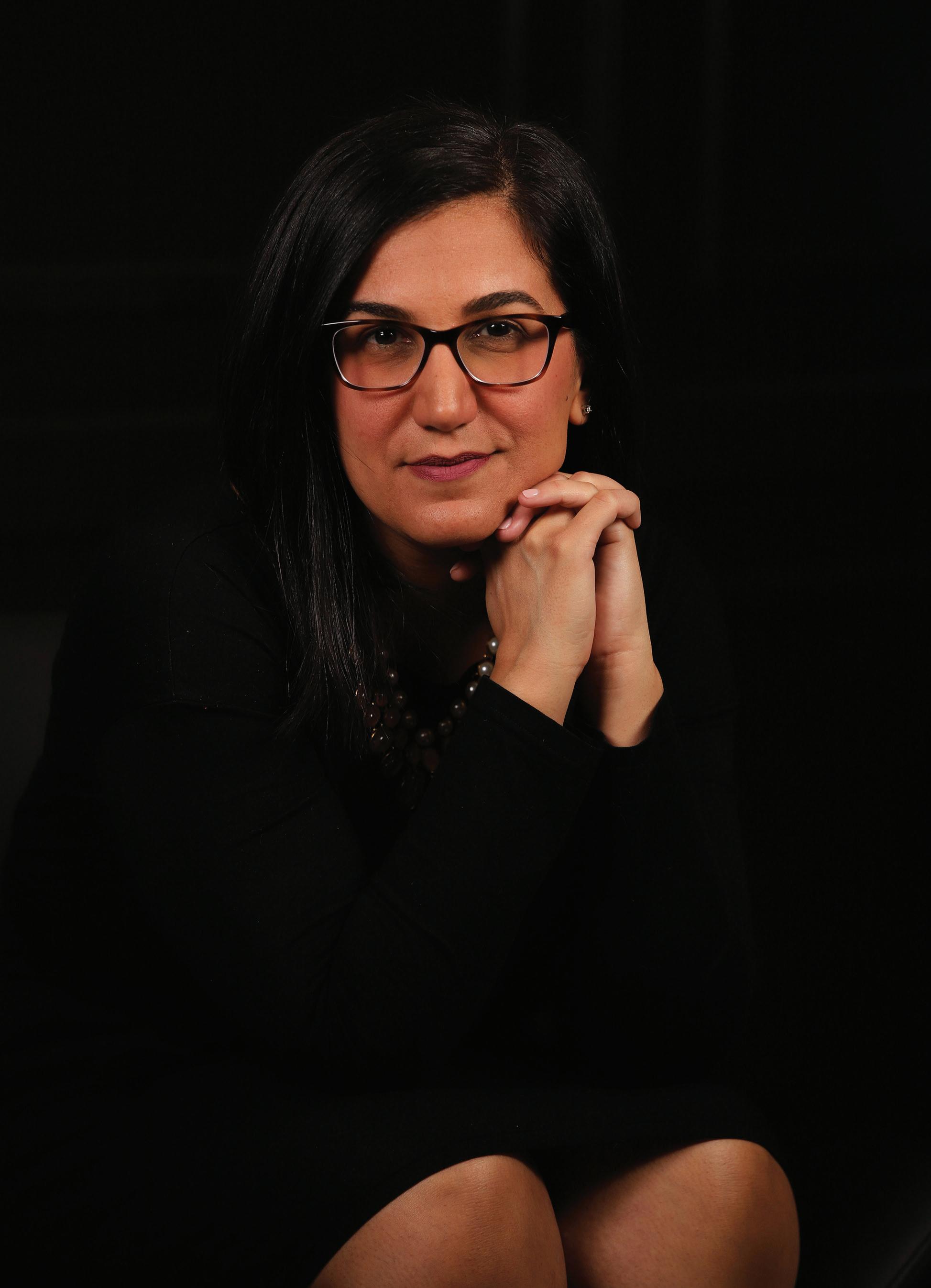
Meet the Incumbent
Judge Ellie Roohani
VLM: What does being a judge mean to you?

JR: My family came here as religious refugees from Iran after the Iranian Revolution. The new Islamic Regime did not recognize my parents as equal citizens or as citizens at all because they practiced the Baha’i Faith. If I had been born in Iran, I would not have been allowed to attend school, hold a job, have my marriage recognized, or be buried according to my faith. Because of this background, it has always been a familiar refrain in my family that “America is the best country in the world because its laws protect everyone.”
I feel that my role as a judge is to ensure that our system of laws is protected and effectuated. That means people can vindicate their rights in court; they have a forum in which to have their grievances heard; and they will be treated fairly and equally under the same laws that apply to everyone. While advocates do many of these things, my special role as a judge is to be a fair referee, ensure respect of the system, and make sure everyone is treated with dignity and respect throughout the process.
VLM: How do you exercise judicial discretion where there is ambiguity in legal authority? For example, how likely are you to sanction a litigant who violates a procedural rule, e.g. failing to file a document in a timely manner?



























































































JR: If there is ambiguity, I find the most analogous case in terms of facts and law. Then, I use that paradigm to do the legal analysis, faithfully apply the facts of the case before me to the law, and reach the conclusion that the law demands. If there is still ambiguity, then turning to equity, it is important to err on the side of giving people their day in court and hearing cases on the merits.
Rules are important because they create an even playing field and set up clear parameters for everyone to follow. But, I also understand that attorneys (like judges) have tons of cases and mistakes happen. Most mistakes are easily cured with a little extra attention and don’t cause harm.
VLM: What was the most memorable case you tried as an attorney before taking the bench?



























































JR: My most memorable and meaningful case was also the hardest of my career because I was fighting to obtain justice for several child victims of sexual assault and exploitation. Helping them receive closure to be able to heal was one of the most tremendously poignant moments of my life. But, having to embrace and re-live their trauma with them in investigating the case, preparing it for trial, presenting it to the jury, and seeking a substantial prison sentence was also extremely trying on me personally and professionally. There is nothing more rewarding than watching a broken young girl turn a corner and commit to rebuilding her life and crediting her safety to you.
VLM: Have you ever experienced a situation where you had to support a legal position that conflicted with your personal beliefs? If so, how did you handle it?
JR: I was once assigned the week before trial to jump on a case prosecuting a young man. When I did my due diligence and read the


















case file and reviewed the evidence, I did not feel that this was a man who needed a lengthy prison sentence, or that society would be benefitted from incarcerating him for any period of time. Instead of preparing for trial, I spent hours upon hours convincing upper-management that this young man needed the services that supervision could provide him. Then, I spent hours convincing defense counsel that it was in the best interest of the defendant to accept the conviction and the accompanying services to rebuild his life. Finally, I did my best advocacy convincing the judge to sign on to the agreement. Through this process I learned that fighting for my convictions (even when it meant fighting every person along the way) would yield positive results. That young man is now employed and living a law abiding life and has a young child he can care for.
VLM: Has there ever been a situation that tested the limits of your patience? Do you have any advice for handling those moments?
JR: I would like to think that I am patient person, but I think everyone thinks that about themselves. I have only had one situation that really tested my patience. And, it tested my patience because it ran afoul of my deep respect for our system of justice in this country. The only thing that I cannot tolerate (and I don’t think that any judges should tolerate) is disrespect of the system itself. Our civil and criminal systems in this country may not be perfect, but they are the best that the world can offer right now. So, it is incumbent on each of us (lawyers, judges, and citizens) to dedicate ourselves to protect the system. I can overlook a lot while on the bench, but if I don’t protect system of justice that ensures each person the ability to have their voice heard and justice to be meted out fairly, then I have failed in my duty as a judge.
VLM: What is your best piece of advice for litigants and/or attorneys?






















JR: Know the legal standard. Know what is a question of fact and what is a question of law. Don’t be evasive. It is ok to say you don’t know or that the law isn’t developed. Give your best advocacy to your client in writing and in argument. Send the attorney who is most familiar with the filing to make the argument, even if that attorney is new. The only way that we can train new attorneys is to give them a chance to get their feet wet in court. In the same vein, show up prepared because I will show up prepared and I will have questions that don’t involve attorneys regurgitating the pleadings.
VLM: What is your passion outside of law?
JR: Have you seen me? I love eating and food and cooking. The pandemic put a damper on my trying new restaurants. But now that some restrictions are being lifted, I can’t wait to get back and eat the best Las Vegas has to offer.
VLM: Finally…what do you love most about Las Vegas?

















JR: Las Vegas raised me. This is where I grew up and where my children will grow up. Every good memory I have from my whole life has been here. Every birthday, every anniversary, my wedding, the birth of both of my children, and serving my community, has all happened right here. Las Vegas is my home and will always hold my heart. I hope to continue serving this community for as long as I am allowed to do so.
You can learn more about Judge Roohani by visiting her website: https:// www.ellie4judge.com.


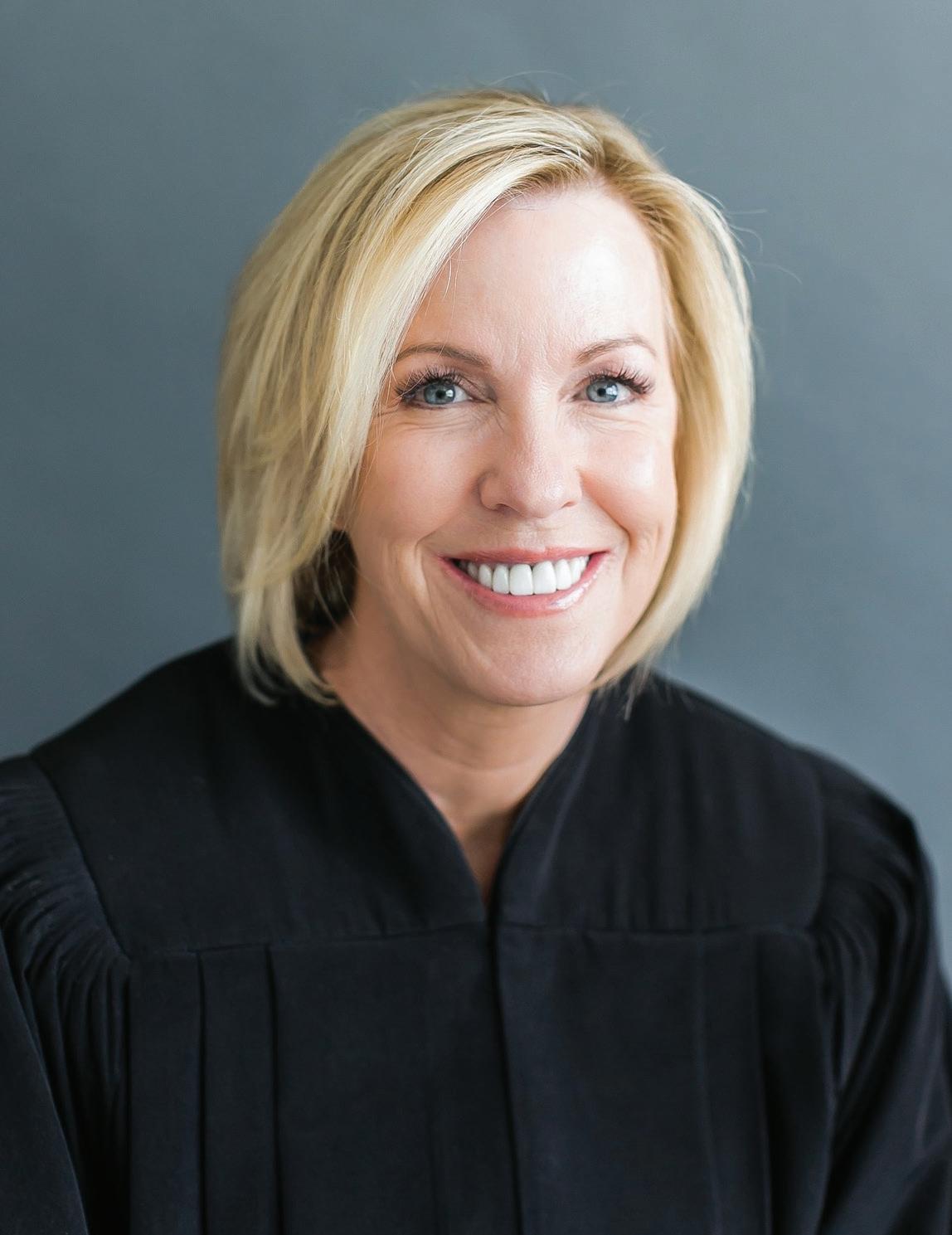
Judge Rhonda Forsberg Meet the Incumbent
































































































































































In April 3019, Rhonda was honored to be selected by the Governor of Nevada to serve as Judge of Family Court, Department G. Rhonda was chosen from a field of 11 attorneys that went through the Judicial Selection Commission process. Since tak ing the bench she has worked hard to ensure that all litigants are respected and have the opportunity to have their cases resolved so they can begin to heal and move on with their lives. Judge Forsberg loves serving the residents of Clark County to assist them through some of the most difficult times in their lives.
Prior to being appointed as Judge of Department G. Judge Forsberg served as a pro tem judge for domestic violence/TPO committees to improve the family court system; the Bench/Bar Committee, the Court Technology Committee, the Settlement Mas ter’s Program, a judge for the Truancy Diversion Program, and was appointed as the Chairperson for the Outsource Provider List Committee.
She is the youngest of five children, and the first of her family to attend college. Rhonda was a non-tra ditional student. Rhonda obtained a bachelor’s de gree in Psychology from the University of Utah in 1995 while working full-time and raising a family. Rhonda was grateful that UNLV’s law school offered a night program that allowed her to complete her law degree while working full-time. She completed her law degree from UNLV’s William S. Boyd School of Law in 2005.
Rhonda’s legal career began with working for Rad ford J. Smith. Chartered. Rhonda opened her own law firm in 2008. Rhonda handled all types of fam ily cases including divorce, custody, child support, adoptions, guardianship, TPO’s juvenile delinquen cy, and juvenile dependency.
Rhonda believes in helping the community. During college, she found time to volunteer with Salt Lake
Rape Recovery Center. Rhonda assisted victims of sexual assault. In addition, Rhonda has served on the Board of the Nevada Partnership for Homeless Youth and has devoted many hours of pro bono work assisting children in abuse and neglect cases, and the Ask A Lawyer program as well other cases assigned by Legal Air Center of Southern Nevada.
The majority of family cases in Nevada are filed in proper person by parties who cannot afford coun sel. Understanding that the majority of cases would appear before her would-be parties representing themselves, Rhonda accepted an appointment as court-appointed counsel in juvenile dependency court, representing low-income parents. Serving low-income parties have broadened her knowl edge and empathy which has been an asset as a judicial official.


Judge Forsberg has been endorsed by the Inter national Association of Firefighters Local 1908, Nevada Law Enforcement Coalition, Southern Nevada Central Labor Council, Service Employ ees Internation Union (SEIU) 1107, Clark County Prosecutors Association, IBEW Local 357, Interna tional Alliance of Theatrical Stage Employees 720, Nevada Republican Club, Southern Nevada Build ings Trades Union, Teamsters Local 631, Teamsters Local 986, Women’s Democratic Club, Culinary Workers Union Local 226, Bartenders & Beverage Dispensers Union Local 165, Sheet Metal, Air, Rail, and Transportation Local 88, and Nevada Veterans Association.
Though Judge Forsberg loves her legal career, her greatest achievement is raising two daughters that are successful, productive members of society and being the grandmother to two amazing grandsons.
You can learn more about Judge Forsberg by visiting her website: https://www.forsberg4judge. com.


















































Meet the Candidate
Adam Ganz, Esq.




















































Adam Ganz is a proud, lifelong Las Vegas Resident. His family moved to the Las Vegas Vallet when he was just a few years old in the 70s, more than 40 years ago. As early as elementary school, Adam dreamed of being a lawyer. With his mother’s recent passing, he uncovered a report he had written in second grade. The topic of the assignment was what he wanted to do with his life. Needless to say, it was all about one day becoming a lawyer.
As a young man growing up in Las Vegas and attending public school, Ganz was uniquely motivated by some great teachers at R. Guild Gray Elementary, Cashman Middle School, and Bonanza High School where he graduated in 1989.
Adam Ganz was the first of his family to graduate from college. His parents were always supportive and loving. He left Las Vegas for a few years to attend college and then go on to law school. From his second year in college on, Adam worked to put himself through college and law school. Working full-time and minimizing expenses to the best of his ability in undergrad.
In 1998, he graduated from the University of San Diego Law School and moved back home to Las Vegas for good. He went on to study for the bar exam and was grateful to have passed. He married his wife Prudence and did all these life-changing events within six months.
Adam believes that his childhood experiences have guided him toward becoming a Judge. Essentially to ensure that the system is fair to everyone. In his mind, if you work your hardest at something you should be rewarded for the effort, however, if you can’t get a fair shake because the system is not fair, then it sends a bad message to everyone and things truly will fall apart.0
After Law School Ganz began his 20+ year legal career in the area of civil litigation, where he represented thousands of people and litigated a vast number of social justice issues affecting the community. The law firm’s business model has been focused on being brought in by other lawyers to do complex litigation and take cases to trial. Although the practice was focused on representing injured people, the work did cross over into many other areas of law.
The practice always focused on ways to make the community safer by holding individuals, corporations, and even local governments accountable for their actions. While Adam Ganz has litigated several complex matters from road design to defective products such as helicopters or printing presses, his passion has been representing children.
Ganz was one of the first volunteers for the Children’s Attorney Project and has represented several children through that program over the last two decades. He has represented many children who have been wrongfully removed from their homes by the Department of Family Services and later abused, neglected, maimed, or even killed while in the custody of the foster care
system. He also exposed the school’s distinct for failing to protect the kids of Las Vegas from people or teachers who abused or harmed them.


















































































































Adam Ganz has served as a Justice of the Peace Pro Tem hearing mostly involving domestic violence cases, he has appeared in the Nevada Appeals Court, the Nevada Supreme Court, the Arizona Appeals Court, the Arizona Supreme Court, the Ninth Circuit Court of Appeals in San Francisco and other US District Courts in Southern Nevada. Northern Nevada, and Arizona.
Ganz has had the pleasure of trying cases as either the lead attorney or as a second chair both with and against some of the best lawyers in the Las Vegas Community. In addition to his extensive courtroom and legal experience he has also served on several boards of directors for non-profit organizations and owned or managed several businesses within the community. This extensive business experience has given Ganz an instant advantage in managing the Court’s budget and a team of employees. It has also allowed him to utilize opportunities to help the Court’s administration through committees and other appointments.

Adam Ganz is also the proud father of twin teenagers, who enjoy keeping him and his supportive wife of 20 years on their toes. His volunteer work in youth sports has taught him how very important it is to be patient. Ganz’s work with youth sports also assisted him in the mentoring of dozens of law clerks and young lawyers. These former clerks still communicated with Ganz to this day as they too move forward in their careers in the community.
Ganz’s passion for making the Las Vegas community safer has led him to many accomplishments that will serve him well as a judge. He is guided by the simple principle that the community cannot be safe unless all litigants have a fair and impartial trial. At the core, Adam believes that this race is about finding a person to serve as a judge that will be open-minded, compassionate, and qualified. Qualified not just being a lawyer for the minimum number of years required to be a judge, and qualifications not only in years of experience. But in different areas of law and other professional experiences.
Adam Ganz enrolled as a student at Pepperdine University’s Caruso School of Law to obtain his LL.M. in Dispute Resolution. He is currently nine weeks away from completing this degree. He did arbitrator and mediator training with the American Arbitration Association and began a neutral practice, acting as an arbitrator for the AAA. doing private mediations and arbitrations. Ganz was recently appointed to the board of directors of the non-profit Red Rock Search and Rescue. He currently teaches at UNLV as an adjunct professor.
You can learn more about Adam Ganz by visiting his website: https://www.ganz4judge.com.











































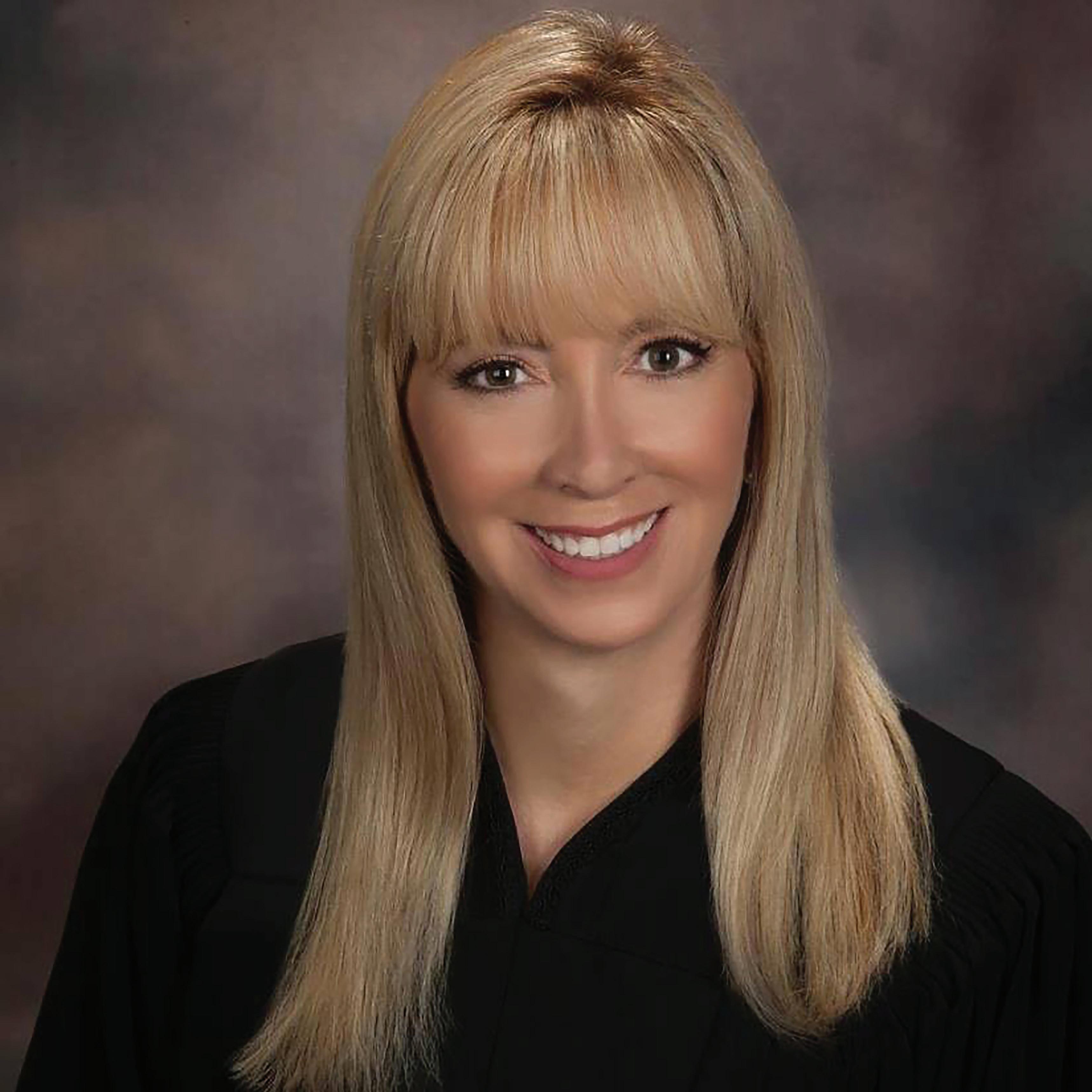
Judge Suzan Baucum Meet the Incumbent














































































































































































































Judge Suzan Baucum is a native Nevadan. She is a graduate of Western High School in Las Vegas, receiving her undergraduate degree in Political Science from Macalester College in St. Paul, Minnesota. She earned her Juris Doctorate from the University of Idaho where she served as the Notes and Comments Editor of the Idaho Law Review.
Judge Suzan Baucum was elected to the bench originally in 2010. Judge Baucum has served with distinction as Justice of the Peace for Department 13 of the Las Vegas Justice Couty to the present day. From January 2019 to December. She was Chief Justice of the Las Vegas Justice Court.
For nearly a decade, Judge Baucum oversaw the largest caseload of any DUI county in the country and was proud to institute many technologies and programs that not only saved lives but decreased recidivism. Judge Baucum has also served as a Judge Pro Tempore for the Las Vegas Municipal Court and the North Las Vegas Justice Court.
Prior to her tenure in Department 13, for 19 years Judge Baucum was the Executive Director of the Nevada Law Foundation, a non-profit group here in Nevada dedicated to serving the legal needs of our state’s less fortunate and indigent citizens- particularly victims of domestic violence, and children in need of protection.
Judge Baucum’s Legal career covers a wide range of law, including prosecuting both civil and criminal matters with the Ada County Prosecutor’s office. Following graduation from law school, she worked with a firm located in Reno, Nevada. During her time with this firm, she handled criminal, personal injury, real estate, and general business matters. Judge Baucum has also served as a State Training Specialist and Staff Attorney for the National Council of Juvenile and Family Court Judges.
Judge Baucum has always believed and continues to believe in being an active part of both her profession and her community. She is a fellow of the American Bar Association, a member of the Clark County Bar Association, the State Bar of Nevada, and a Colleague of the Nevada Law Foundation. She has served as co-chair of the Criminal Justice Coordinating Council. On the Board of Directors for the Child Assault Prevention Project, the Eighth Judicial District Pro Bono Foundation, and the board of the Las Vegas Dance Stars.
Judge Suzan Baucum has volunteered for the Red Cross, Jerry Lewis telethon, United Blood Service, the American
Heart Association, and the American Cancer Society. She has also served as a Court Appointed Special Advocate (CASA) for Children in need of protection by the courts and as a counselor for Lincoln House, a home for unwed mothers in St. Paul, Minnesota. She served as a room mom for many years at her children’s school and directed the annual school pageant.
Judge Baucum is also involved in reading on a regular basis to children at the elementary school level and spends countless hours providing information to our area youth regarding the perils of diving under the influence.
She is endorsed by the Las Vegas Police Protective Association (LVPPA METRO), Las Vegas Peace Officer Supervisor Association (LVPOSA), Las Vegas Peace Officers Association (LVPOA), Las Vegas Police Managers & Supervisors Association, North Las Vegas Police Officers Association, Police Officers Association of Clark County School District, Peace Officer Research Association of Nevada, Reno Police Protective Association, Washoe County Sheriff Deputies Association, Public Safety Alliance of Nevada, Washoe County School Police Officers Association, Carson City Sheriff’s Supervisory Association, Douglas County Sheriff’s Protective Association, Laborers Internation Union of North America Local 872, Veterans in Politics International, Henderson Police Officers Association, Henderson Police Supervisors Association, Juvenile Justice Probation Officers Association, Clark County Juvenile Justice Supervisors Association, Mesquite Police Officers Association, Nevada Association of Public Safety Officers, Nevada State Law Enforcement Officers Association, Elko County Deputy Sheriff’s Association, Perishing County Law Enforcement Association, Las Vegas Protective Association Civilian Employees, Southwest Regional Council of Carpenters, International Alliance of Theatrical Stage Employees, Plumbers, Pipefitters & Service Technicians Local 525, Clark County Prosecutors Association. Southern Nevada Central Labor Council, Nevada Veteran’s Association, Voice of the Veteran, Law Enforcement Loyalty Pac, Veterans for Responsible Government, Clark County Firefighters, AAPI Nevada Leadership Council, Culinary Workers Union Local 226, Nevada First Agenda Association, Asian American Group, and Calrk County District Attorney Investigators Association.
You can learn more about Judge Baucum by visiting her website: https://www.judgesuzanbaucum.com.





VEGAS ICON

Remembering Attorney William Terry
By Mark Fierro and Jeff Haney
“Ifpolice officers got in trouble, they went to Bill Terry. If attorneys or judges got in trouble, they went to Bill. Any question about a bar hearing or a disciplinary hearing, they could rely on Bill. He kept it low-key. He never talked much about it. But judicial disciplinary work was one of his specialties, probably more so than any other attorney.”
That’s how Tom Pitaro, Terry’s longtime close friend and confidant, and himself a giant in the Las Vegas legal community, described Terry, the celebrated Las Vegas defense attorney who died January 15 at age 74.
If you spent any time with Terry, whether across the courtroom or across the permanent inversion layer of cigarette smoke that settled over his desk, you got the sense that there was a nuclear reactor-fired intellect at work within his mind.
In that rarified air at the peak of the defense bar,
Bill Terry was one name that countless attorneys of all stripes turned to for advice.
“I don’t particularly value anyone else’s opinion on law, except for Bill’s,” Pitaro said. “He was the only one. If I had a question, I would run it past Bill first. Someone said to me, ‘Bill Terry is the only person you allow to give you advice.’ I said, ‘you’re right.’ Look at the [Ted] Binion case with Sandy Murphy — when it got reversed, [Alan] Dershowitz took all the credit. Actually Bill wrote that. That was his.
“The thing I’ll say about Bill is that most attorneys are practitioners of the law. Bill was a student of the law. That, to me, is a profound difference. He would understand the philosophy and the essence of the law. He was a true student of the law.”
And there was really only one man Terry would turn to: Tom Pitaro.
Prominent attorney Ozzie Fumo, a longtime friend of Terry and partner of Pitaro, said of Terry’s relationship with Pitaro: “Tom was Bill Terry’s guy. If Bill had a question, he would always want to know what Tom thought. But Bill was better than any of us. He was the best. The only person he could turn to was Tom, and Tom could only turn to Bill. I don’t know what Tom is going to do now.”
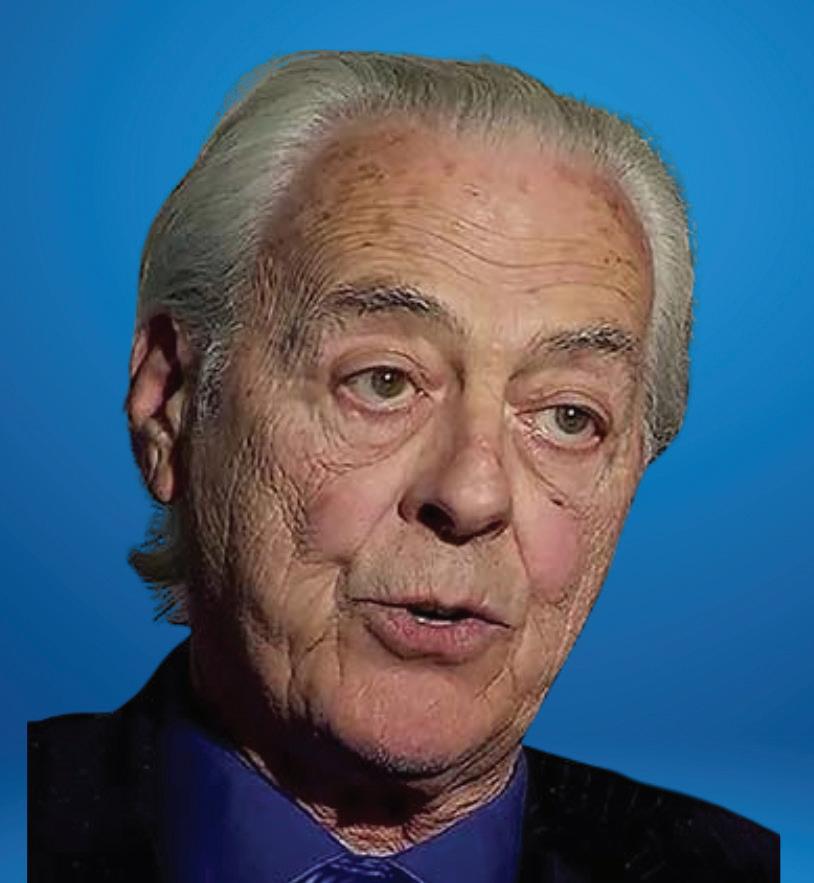
Terry had a secret to making his practice and his encyclopedic knowledge of criminal law look easy: He just never stopped working. Given a choice, he was most at home in his office seven days a week. It Terry called to go to lunch on a Saturday, he wasn’t coming from home. He was taking a break from the office — same thing on Sundays.
Fumo said those seven-day work weeks set the stage for a lasting string of sessions about life and the law. “He came up to me one day and said, ‘I noticed you work Saturdays. Let’s get together for lunch.’ This was about 15 years ago, and it had been going on since then with Bill, Tom and myself.”
It wasn’t just a chance to shoot the breeze. Fumo said: “Bill would always want to discuss a particular issue with us, and being the consummate professionals that they are, Bill and Tom would never mention the name of whoever they were discussing. If Tom or Bill was representing a judge, say, I would never hear the name — only the issue. Their ideas would ping pong back and forth at lunch, and I would listen and gain all this knowledge. These were some of the most valuable times of my life. About five years ago he brought attorney Ryan Helmick along, who was like a son to Bill.”
It says something when a young attorney is trusted enough to be brought into a group of friends like that. “They kind of took me in to their Saturday lunch crew,” said Helmick, of the Richard Harris Law Firm. “I sat there in awe as a young lawyer. I felt like I was sitting there with these giants of the Las Vegas legal scene, these guys with experience in the biggest cases. I just
tried to absorb as much information as I could.”
Fumo said that when the lofty talk about legal issues wrapped up, Terry had a routine he followed before he returned to work on Saturday afternoons. “He would take leftover food from meals and give them to a homeless guy right outside the Courthouse Bar and Grill, and never talked about it or advertised it. Just like he would give Halloween candy to kids with cancer, never mentioned it. He just did it. He didn’t even talk about it.”
Helmick said it was that compassionate spirit that made Terry his ultimate role model.
“Bill was my dad’s lawyer, and my dad asked Bill if I could shadow him,” Helmick said. “So I would shadow him once a week for his court dates. I started reading up on him, and I was so in awe even before I got to know him. I felt very fortunate and blessed that I had the opportunity to learn from the best of the best.
“So we had the mentorship, then he started inviting me to breakfast at the Courthouse Bar and Grill, Bill and some of the guys including Ozzie, Tom, some judges and prosecutors. He was a phenomenal lawyer. He cared about his clients and he was able to portray that in a way
that also got the judges to care.”
It’s telling that for all of his legal accomplishments, Terry counted his greatest achievements outside the courthouse.
“The thing he was most proud of was being a father,” said Pitaro. “He loved his kids [Billy, Jenny and Freddie]. Everything he did was dedicated to them. It was a remarkable thing to see how he did it. He was always there for them. When you go into Bill’s house, he has walls of photos of his kids. In his office, he has school photos of them from every year.”
Fumo said Terry always remained grounded: “No matter what case was going on, no matter what else was happening, every Wednesday night was reserved for dinner with his kids.
Pitaro added: “If you say that Bill Terry was an outstanding attorney, that’s true. If you say he was a student of the law, that’s true. If you say he worked seven days a week at his law practice,
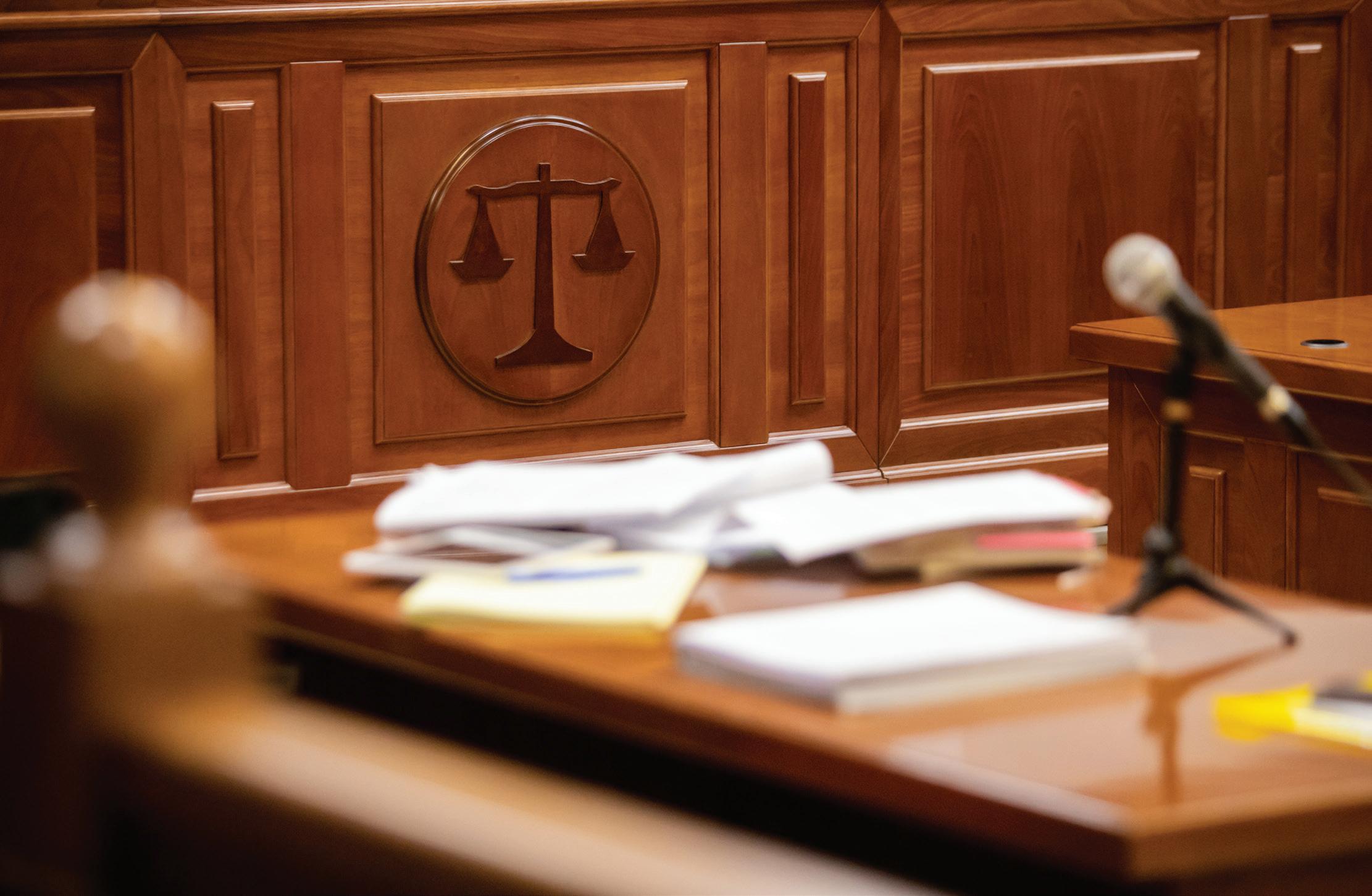
that’s true. But within that, he was Bill Terry the father. If you knew him you would see it.”
Those could sound like mere platitudes for an old pal, but there is evidence Terry took the father thing pretty seriously.
“Bill would always have Easter parties and Christmas parties,” Pitaro said. “At Easter, Ozzie would be the Easter Bunny in a costume. At Christmas, I would dress up and be the Santa Claus at his party, give out presents to everyone.”
For the record, Bill Terry got Ozzie Fumo to dress up as the Easter Bunny. He got Tom Pitaro to dress up as Santa, for years. That is a persuasive attorney.
“The Fourth of July was special too because Billy would bring in fireworks from other counties and there would be a big fireworks party,” Pitaro said. “By the way, they were neither safe nor sane.”
To those closest to him, Terry was fondly remembered for his basic approach to the little things in life — his wardrobe being one. Every single day Terry wore one of two colors: black or dark black.
Helmick said Terry was a two-car kind of guy — but not the kind of cars you would expect: “He drove an old pickup truck and an old Toyota Camry. He wasn’t flashy. He wore a Mickey Mouse watch. He carried the same briefcase since I’d known him.”
If there are takeaways, Helmick said the secret sauce of Terry’s skills set is an uncommon one. “His listening skills were unbelievable. We call it ‘listening with the third ear.’ Bill was always able to pick apart things that the client was missing, or wasn’t able to say, or was really feeling,” Helmick said. “I thought, wow, how did he know that? How was he able to pick up on that? He had a secret antenna to pick up on the true feelings of people. He took the sugar and the hammer approach. You try the sugar first, and if that doesn’t work you hit them over the head with a hammer. He wasn’t afraid of a fight. But he treated everyone well and was always professional and humble. That’s the approach I try to use to this very day.”
His empathy for clients gave Terry a laser focus that became the core of his approach, according to Pitaro.
“He was always ready to take on whatever argument was there,” Pitaro said. “He was never screwing around. He was always ready. He never raised his voice much — not like me or Ozzie. He was a calming influence. Every judge that he ever appeared in front of him would take what he said as gospel. They knew that he wouldn’t embellish. They knew he would tell it like it is. He did a lot of work behind the scenes that others might have gotten credit for. It’s a great loss.”
Judges and attorneys weren’t the only ones at the courthouse who were treated with respect.
“I noticed how he treated the security guards and the courthouse, he’d give them cigars as gifts. He always had little gifts for the clerks,” Helmick said. “I got to watch this man and how he lived his life. I always did a lot of listening. I saw how important his family was to him. I tried to emulate all that as best I could. He was a superhero to me, as a lawyer and as a person.”
How important is it for a young attorney to find their Bill Terry in their career? Helmick said: “It’s so important to learn from somebody else, to pick up knowledge from another person in your life like that, to help pull you up the ladder. Fewer people think that is important anymore, but I think it’s extremely important. It was for me.”
Mark Fierro began his career as a reporter/ anchor at KLAS-TV, the CBS television station in Las Vegas. He worked at the U.S. House of Representatives in Washington, D.C. He served as communications consultant on IPO road shows on Wall Street. He provided litigation support for the Michael Jackson death trial. He is president of Fierro Communications, Inc., which conducts mock juries and focus groups in addition to public relations and marketing. Fierro is the author of several books including “Road Rage: The Senseless Murder of Tammy Meyers.” He has made numerous appearances on national TV news programs.
Jeff Haney serves as Executive Vice President of Operations for Fierro Communications, where he works closely with Mark Fierro in developing and directing all media, marketing, research, consulting and public relations strategies for Fierro Communications’ clients including those in business, government, the legal field and cutting-edge high technology.
VEGASLEGALMAGAZINE.COM | 33


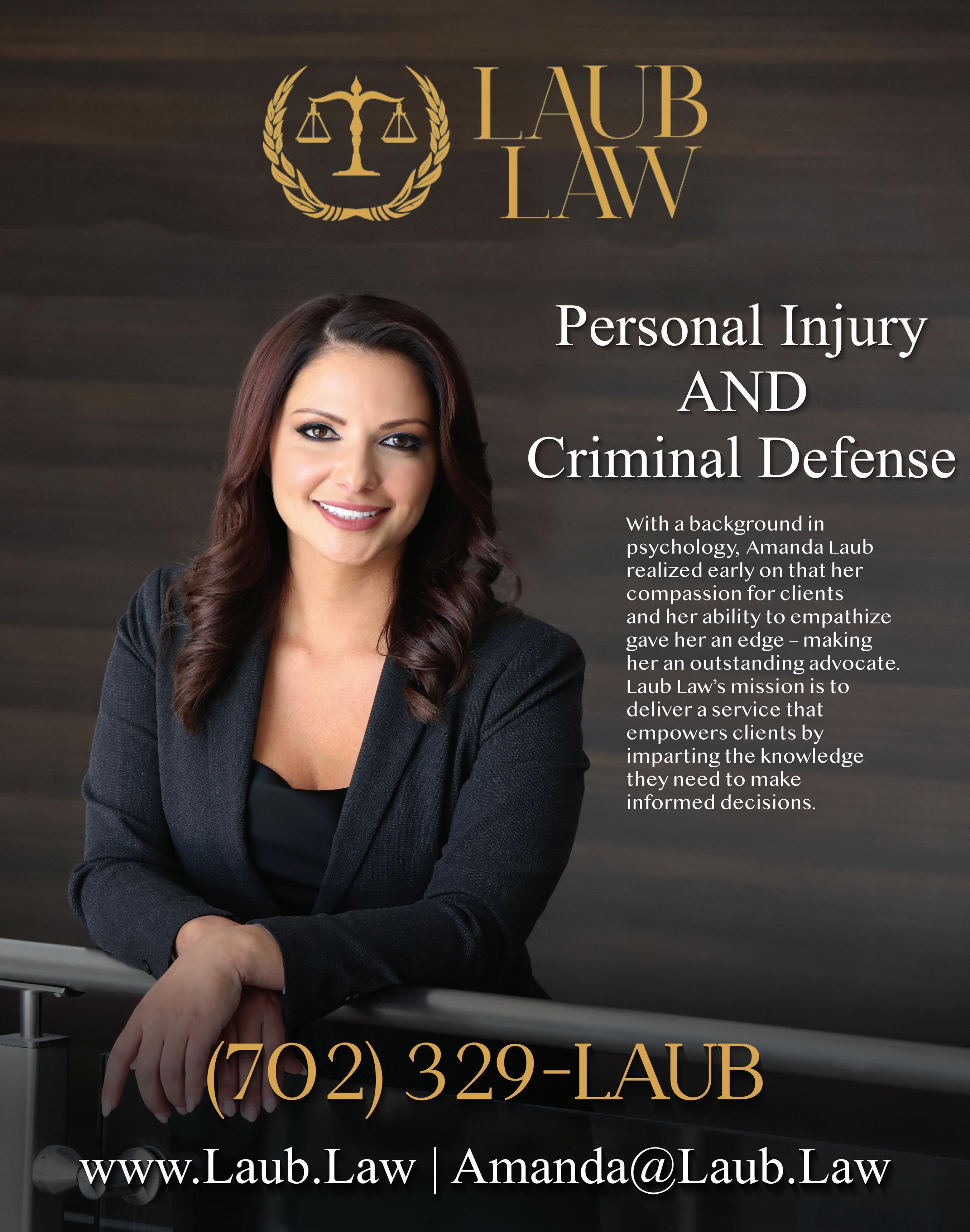
The Power of We the People of the State of Nevada:
How Nevada’s Abortion Law Embodies the People’s Voice
 By: Andréa Vieira, Esq.
By: Andréa Vieira, Esq.
“Itis
time to heed the Constitution and return the issue of abortion to the people’s elected representatives.” Those are the words of Justice Alito in the opinion written for Dobbs v. Jackson Women’s Health Organization, also known as the case that overturned Roe v. Wade Among other reasons, Justice Alito’s basis for overturning Roe was the determination that each State’s legislature is in the best position to make and pass the laws that the people of that state want.
By 1990, the people of Nevada had already done what Justice Alito suggested in 2022. In 1973, NRS 442.250 was enacted. Later, in 1990, Nevada voters made NRS 442.250 permanent by passing a referendum pursuant to Article 19, Section 1 of the Nevada Constitution. According to the Legislative Counsel Bureau, NRS 442.250’s ballot question passed by 63.5% with 200,645 Nevadans voting in favor of Ballot
Question No. 7 and 115,495 voting against. Per Nevada Secretary of State records, 516,423 people were registered to vote in Nevada for the October 6, 1990 general election.
Because NRS 442.250 was added by referendum, it “shall not be amended, annulled, repealed, set aside, suspended or in any way made inoperative except by the direct vote of the people.” In other words, in Nevada, the right to an abortion is guaranteed by a law that cannot be changed or repealed in any way unless a majority of Nevada voters say so.
This is what NRS 442.250 says:
1. No abortion may be performed in this state unless the abortion is performed: (a) By a physician licensed to practice in this state or by a physician in the employ of the government of the United States who:

VEGASLEGALMAGAZINE.COM | 37
(1) Exercises his or her best clinical judgment in the light of all attendant circumstances including the accepted professional standards of medical practice in determining whether to perform an abortion; and
(2) Performs the abortion in a manner consistent with accepted medical practices and procedures in the community.
(b) Within 24 weeks after the commencement of the pregnancy.
(c) After the 24th week of pregnancy only if the physician has reasonable cause to believe that an abortion currently is necessary to preserve the life or health of the pregnant woman.
2. All abortions performed after the 24th week of pregnancy or performed when, in the judgment of the attending physician, there is a reasonable likelihood of the sustained survival of the fetus outside of the womb by natural or artificial supportive systems must be performed in a hospital licensed under chapter 449 of NRS.
3. Before performing an abortion pursuant to subsection 2, the attending physician shall enter in the permanent records of the patient the facts on which the physician based his or her best clinical judgment that there is a substantial risk that continuance of the pregnancy would
endanger the life of the patient or would gravely impair the physical or mental health of the patient.

According to Nevada’s abortion law, abortions in Nevada: 1) must be done by a doctor licensed to practice medicine in Nevada or employed by the U.S. government, who uses medical judgment to decide whether to perform the abortion and does so in a manner that is medically accepted; 2) an abortion can be performed after the 24th week of pregnancy if the doctor determines that the abortion is necessary to “preserve the life or health of the pregnant woman;” and 3) if an abortion is performed any time after the 24th week, or when the fetus may survive outside the womb, it must be done in a licensed hospital and the doctor has to state in the medical records the facts the doctor relied on to determine there was a substantial risk that the pregnancy would “endanger the life of the patient or would gravely impair the physical or mental health of the patient.”
In 2019, a bill was introduced in the Nevada Legislature to address parental notification requirements for pregnant minors and to revise the requirements relating to informed consent.
The parental notification parts of the bill did not pass through the amendments process.
On June 28, 2022, Nevada Governor Steve Sisolak issued Executive Order 2022-08, which prohibited all state agencies, employees and officers from providing information or expending or using any “time, money, facilities, property, equipment, personnel or other resources” to assist anyone in another state seeking to impose criminal or civil liability on a person who assists or provides, secures, or receives, or inquiries about receiving abortion services in Nevada. The Executive Order encourages Nevada’s licensing bodies to consider granting reciprocal medical licenses to reproductive health care providers from other states, and prohibits extradition of a person who received reproductive health care services in Nevada to another state unless the crime charged would also constitute a criminal offense under the laws of the State of Nevada.
The recent events surrounding this issue underscore how important it is that Nevadans elect people who represent them at all levels of state government and remember the power that the Nevada Constitution grants the People of Nevada to make their own laws. Nevada’s
abortion law would not exist if it were not for the people who worked to put the referendum question on the ballot and to pass it. Nevada’s abortion statute is the personification of the power of “We the People” that can profoundly affect our lives.
Some people abstain from voting because they believe the lie that their vote will not make a difference. This lie is perpetuated by people who want to prevent “We the People” from exercising a valuable and irreplaceable right available only to those who live in a real democracy. On a state and municipal level, where the elected officials are closer to the People, each vote is even more important and election winners can be decided by small margins.
Nevada has a “citizen legislature” in which its elected officials meet for only 120 days in odd-numbered years. During the times the Legislature is not in session, they have other jobs. Except for during the legislative session, Nevada’s legislators do not keep offices or staff. Nevada is 1 out of 4 states where the state legislature meets for a set number of days every other year. The other 3 states are Montana, North Dakota, and Texas. Nevada has term limits for its legislators. Senators and Assembly members can each serve a total of 12 years. Senate terms are 4 years long and Assembly members serve 2-year terms. Only 15 states currently have term limits for legislators.
Nevada is a leader among the states in ensuring that its government serves “We the People.” Nevadans were decades ahead of the rest of the county in 1990 when they passed a commonsense referendum guaranteeing a woman’s right to reproductive health care. In 1990 and 2022, Nevadans understand the importance of each person having the right to make their own health care decisions without government intrusion.
Nevada’s referendum provision arises out of the Nevada Constitution. The Nevada Constitution is the primary source of the People’s power and
rights, second only to the U.S. Constitution. Nevada’s Constitution established the laws of our state and grants the power held by its government, officers, and lawmakers. Nevadans’ exercise of Constitutional rights in bringing referenda is correlated with the historical tradition of keeping our government accountable. Nevada judges and Supreme Court justices, like Nevada legislators, are elected. Government accountability also depends on Nevadans being able to seek redress from lawmakers and in the courts. As this article is written, the Nevada Supreme Court is considering whether Nevadans can file civil rights lawsuits against the government for violating the Nevada Constitution. Just as Nevadans 32 years ago exercised their power to pass NRS 442.250 by referendum, Nevadans today must use our power at the ballot box this and every election year to support candidates that will enforce the Nevada Constitution, support personal freedom, and hold all branches of the government accountable. Our voice is our vote, and our vote is our power.
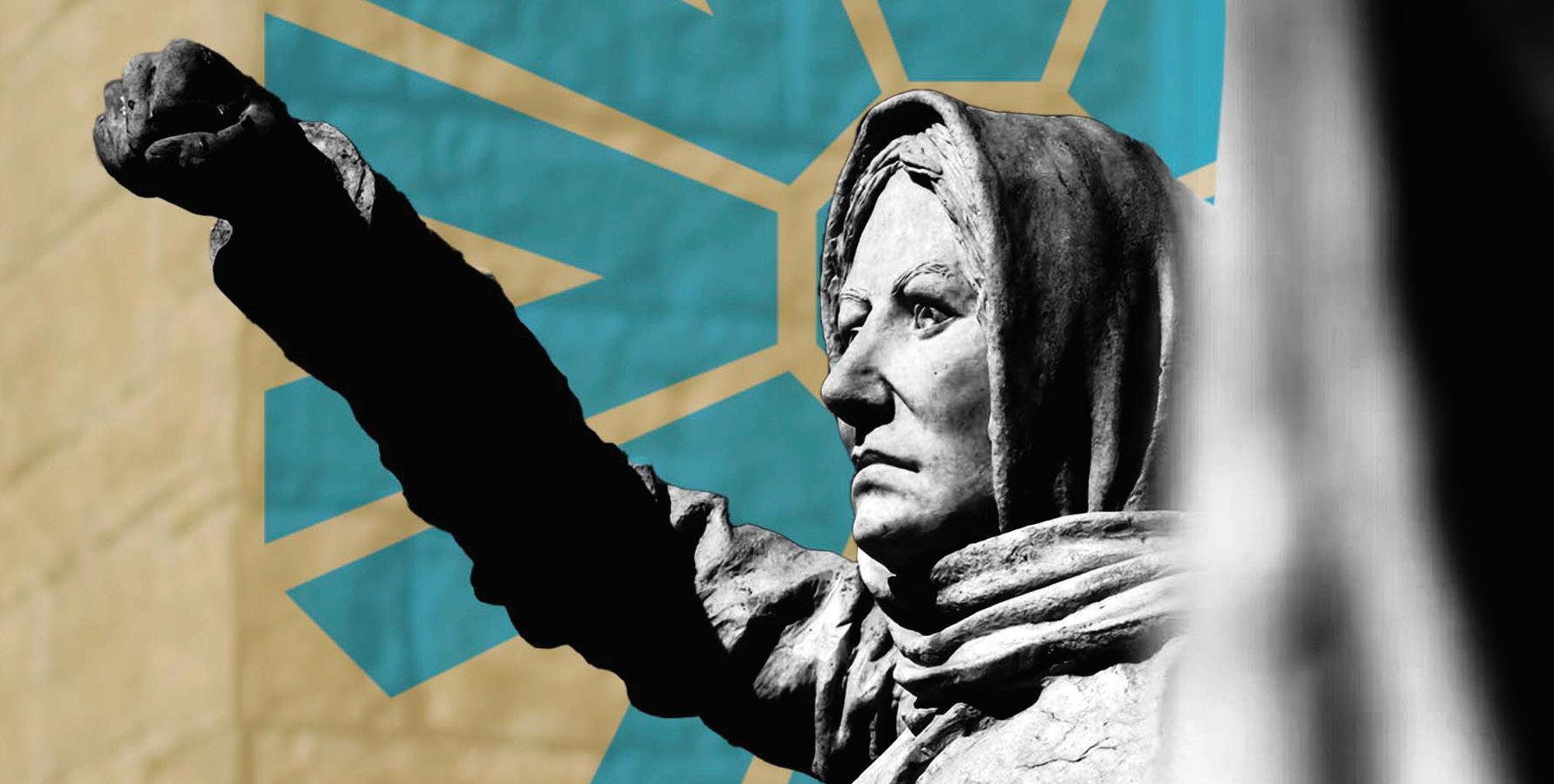
Andréa Vieira is an attorney at The Vieira Firm, a law firm dedicated to civil rights and social justice.

40 | VEGASLEGALMAGAZINE.COM
Image created by Kurt Murray






District Attorney Steve Wolfson
Look Back – And Forward
By: Valerie Miller
Steve Wolfson may be a rare breed of candidate these days. Both Democrats and Republicans seem to like him. The incumbent Clark County district attorney is a Democrat, but most people only know that fact because Wolfson’s name appears on the Democratic primary ballot. In general, views of Wolfson’s job performance are not based on partisan politics.
Wolfson, who was first appointed Clark County district attorney in 2012 by the Clark County Commission, was previously a defense attorney before joining the Las Vegas City Council. Wolfson resigned from the city council to replace the retiring DA, David Rogers. Wolfson was a highly qualified candidate, given that he previously had done stints in the United States Attorney’s office and the county prosecutor’s office.
Wolfson’s rise to DA corresponds with the launch
of Vegas Legal Magazine. The publication featured Wolfson as its very first cover, in 2014 when Wolfson was running for election to keep his position.
The Ongoing Challenges for the DA’s Office
In that first Vegas Legal story, written by reporter Sabrina Siracusa, Wolfson talked about his number one goal being public safety. That’s something he shares with the residents of Clark County.
“If you ask people the … (things) on their minds, it is, jobs and health and everything; but it’s being safe when they walk from their car to their home, or from their car to their office,” Wolfson maintained at the time. “They want to feel safe, and we have so much gun violence here in this society that I want to try to make a difference here in Las Vegas. So, that is one of

VEGASLEGALMAGAZINE.COM | 43
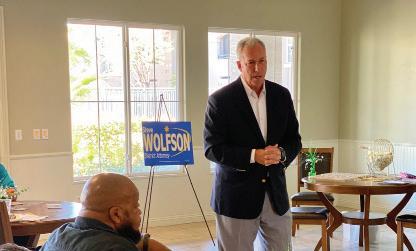
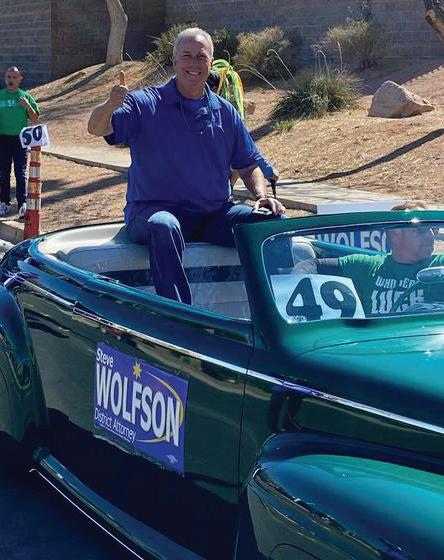
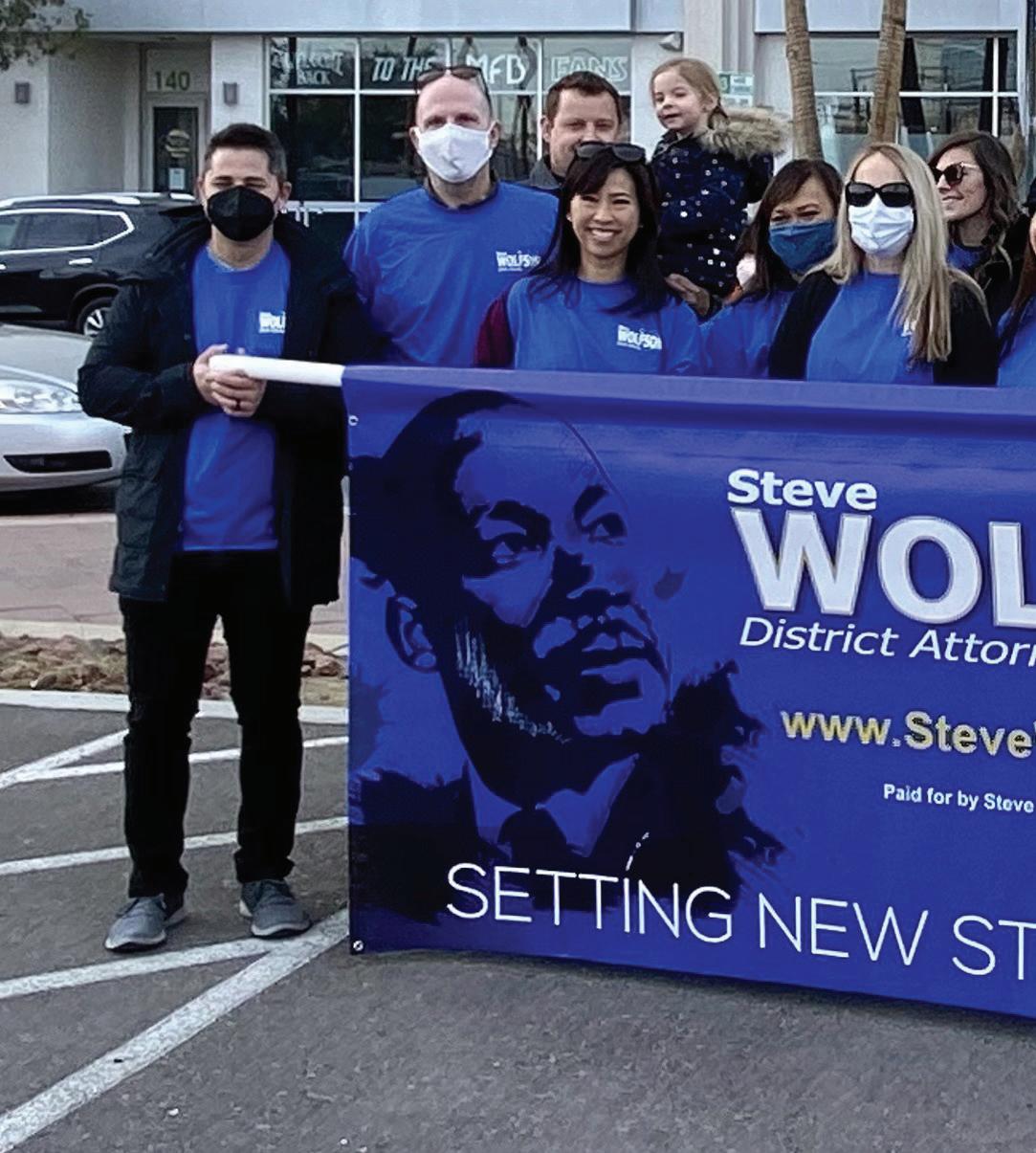
44 | VEGASLEGALMAGAZINE.COM
my projects.”
Wolfson has championed such causes as keeping guns out of the hands of convicted domestic abusers. Under Nevada law, people convicted of a domestic violence offense are not allowed to own or possess a firearm. That said, getting the guns back from convicted domestic abusers is not the easiest of tasks. “If we can remove some of those guns from the offenders who are most likely to use them in a situation where (a) homicide will occur, I think we are going to cut down on homicides,” Wolfson said at the time.
As the current DA of Clark County, Wolfson is a supporter of the Second Amendment. He believes people should be able to own guns for self defense.
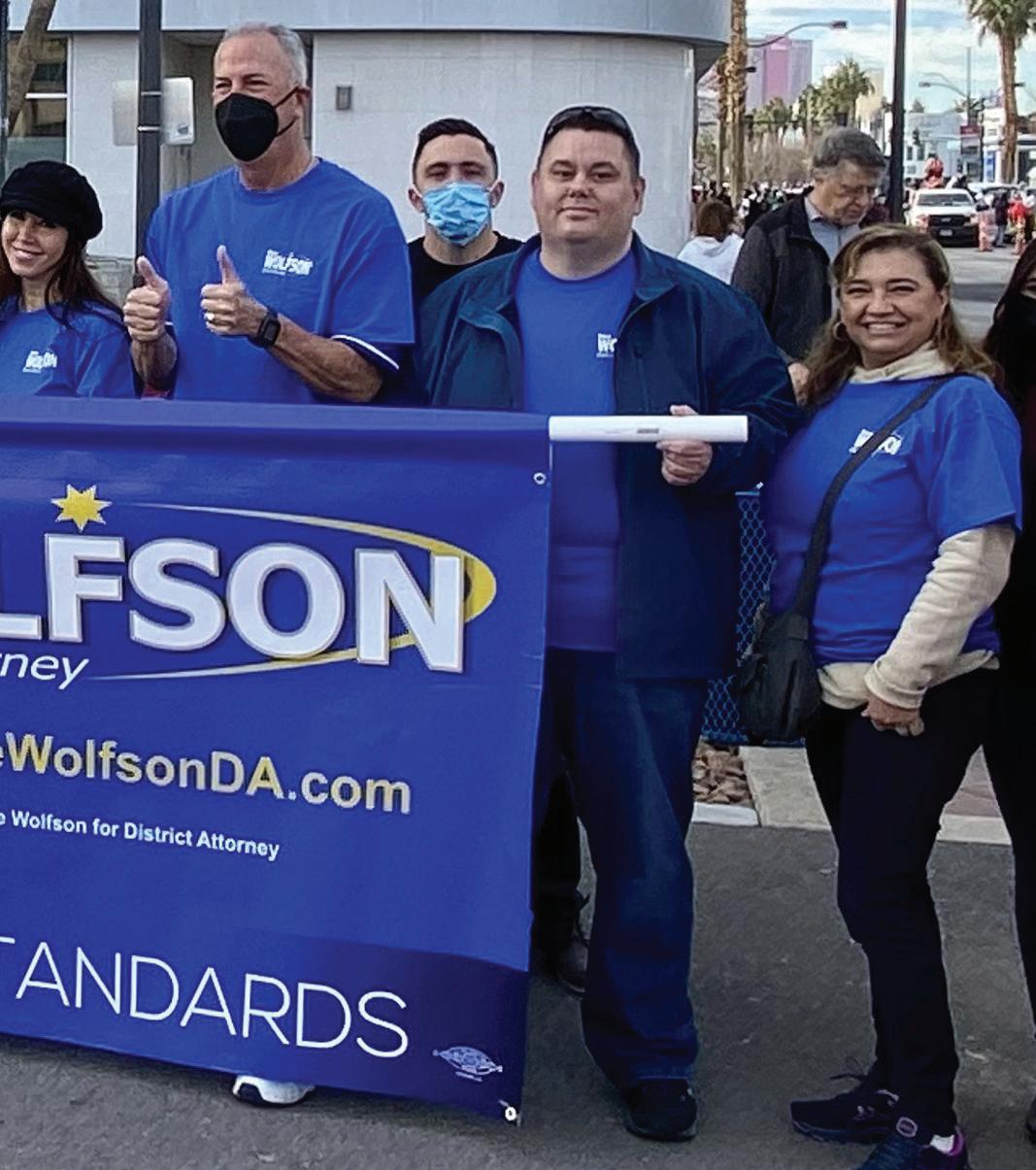
Many of these problems – like domestic violence -- are ongoing battles. The fight does not end when the DA wins re-election, or a new
DA takes office. These are chronic challenges. Among those challenges are stopping drunk, and drugged, drivers from harming themselves and others.
A Chance for Redemption
Wolfson believes that people do deserve second chances. That is demonstrated in his involvement in the rehabilitation program, Hope for Prisoners. The program, which is run by former inmate Jon Ponder, gained national attention a few years ago when then-President Donald Trump visited Las Vegas. President Trump attended the Hope for Prisoners’ graduation ceremony, and gave Ponder a presidential pardon for his service to the community.
Wolfson supports the program, saying in the earlier Vegas Legal article, “I am sure that you can imagine – for so many people getting out of prison – they have been in prison for a couple years – three, five, ten years – and they are coming back into the community. They really don’t have the resources to support them.”
Hope for Prisoners helps the former prisoners adjust to the outside world. “Okay, you did something bad, you made a mistake, you paid your price to society,” the district attorney said in the inaugural Vegas Legal issue. “Now, let’s be successful out there.”
Steve Wolfson is married to former Clark County District Court Judge Jackie Glass, who also landed her own television show, Swift Justice with Jackie Glass. Glass was also known as the judge who sent O.J. Simpson to prison.
Wolfson, who defeated Democratic primary opponent Ozzie Fumo in June, will face Republican challenger Tim Treffinger in November’s general election.
Valerie Miller is a Las Vegas Valley-based journalist. She can be reached at (702) 683-3986 or valeriemusicmagic@yahoo.com.
VEGASLEGALMAGAZINE.COM | 45
Wolfson’s Office to Prosecute Elected Official Telles Charged with Killing Las Vegas Reporter Jeff German
By: Valerie Miller
Clark County District Attorney Steve Wolfson found himself in the headlines again recently, following the shocking murder of Las Vegas investigative reporter Jeff German in early September.
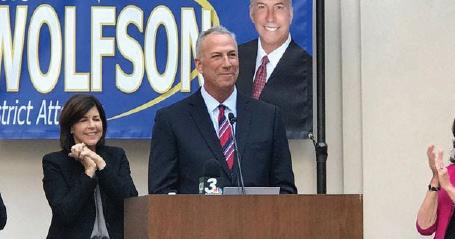
German was stabbed to death Labor Day weekend, outside his home in Las Vegas. The arrest of Clark County Public Administrator Robert Telles for the crime shocked the state and made national headlines. German, a veteran investigative reporter for the Las Vegas ReviewJournal newspaper, had written a number of negative stories about the Democratic politician Telles and the public administrator’s alleged behavior at work. The allegations included alleged workplace bullying by Telles, and having a relationship with a subordinate.
After the publication of some of German’s articles, Telles would go on to lose the June Democratic primary to Rita Reid. The latter also worked in the public administrator’s office. Las Vegas Metropolitan Police, and the Clark County District Attorney’s office, allege that Telles likely blamed German for his primary defeat to Reid and allegedly killed the reporter for revenge. Wolfson, and police, have also alleged that DNA linked Telles to the crime scene. The DA called the DNA evidence against Telles “compelling,” and said in a Sept. 8 news conference that Telles’ DNA was “found on the hands of Mr. German” following his murder.
Telles is accused of “lying in wait” for German on Sept. 2, according to the criminal complaint. The Clark County Public Administrator’s office,
which oversees the estates of deceased people, also paid Telles a $120,000-a-year salary. Telles continued to receive that $120,000 annual salary even after his Sept. 7 arrest for German’s murder. Steve Wolfson, as the Clark County DA, lead the effort to get Telles removed from office. After his arrest, Telles was prohibited from entering any county buildings –including his own office. Wolfson was successful in his efforts to have Telles removed as public administrator. The Democrat Telles, who has been in jail since Sept. 7, “is unable to perform his duties. So, we are seeking his removal from office,” Wolfson told the media at the time. Wolfson is also a Democrat.
As of early October, Wolfson had yet to announce a decision about whether or not to seek the death penalty for the 45-year-old Telles.
During his Sept. 8 press conference, Wolfson said that “no violence against anyone is acceptable,” while adding “but violence against a journalist takes on a special flare, if you will.”
While Wolfson, the Metro Police and the Review-Journal were on the same page about bringing the accused killer of the journalist Jeff German to justice, law enforcement and the newspaper have since battled over the police seizure of German’s personal electronic devices. The R-J editors believe the reporter’s hard drive, cell phone and multiple computers were used for work, according to the Reno Gazette-Journal.
The R-J sought an emergency restraining order to stop authorities from searching German’s devices. On Oct. 6, Clark County District Court Judge Nadia Krall issued a temporary restraining order, pending a mid-October hearing. Attorneys for the newspaper have argued that searching German’s devices would violate Nevada’s shield law, which is supposed to protect reporters. The R-J lawyers also argued that
such a search would violate the federal Privacy Protection Act, which is designed to protect against the unlawful searches of journalists.
Lawyers representing the police department had previously argued that Telles’ constitutional rights “take precedence over any reporter’s rights,” the R-J reported.
As for Telles’ now-vacated spot as the Clark County Public Administrator, county officials can now proceed in temporarily filling the position until Jan. 1, 2023 – following the successful Wolfson-led removal of alleged killer. The winner of the Nov. 8 general election will then take over the position of Clark County Public Administrator.
Valerie Miller is a Las Vegas Valley-based journalist. She can be reached at (702) 683-3986 or valeriemusicmagic@yahoo.com.
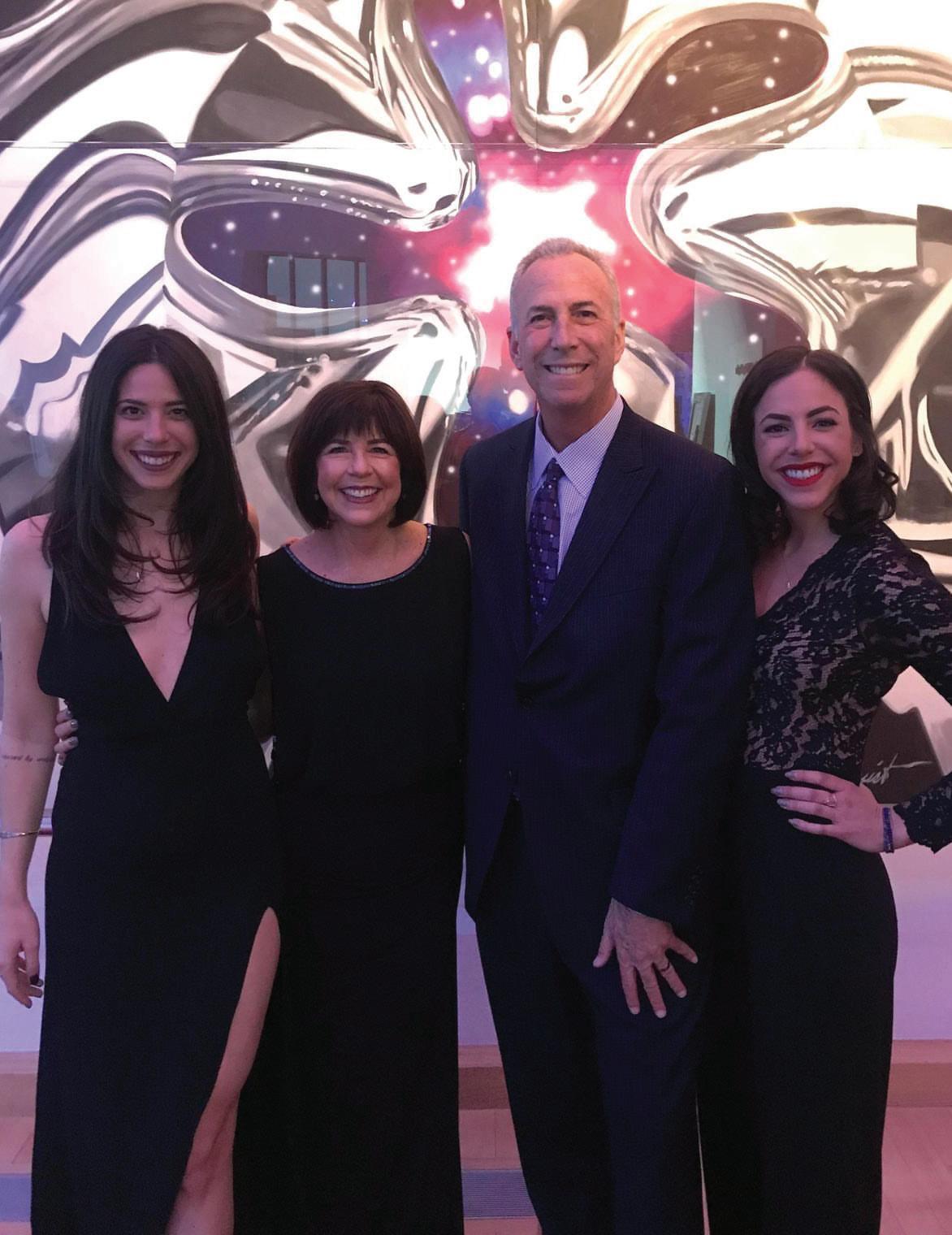

Business

“How do we succeed in life and business? We prove ourselves worthy investments.”
– Donald Miller
Business Spotlight
REAL ESTATE AGENTS

BERKSHIRE HATHAWAY: (702) 496-9302
MITCH FULFER, REALTOR
ADG REALTY: (702) 315-6100
KELLER WILLIAMS REALTY: (702) 212-2222
FOSTER REALTY, LLC: (702) 552-0120
XTREME REALTY: (702) 384-7253
LAWYERS
PRESTON P. REZAEE, ESQ.: (702) 222-3476

ROSS GOODMAN, ESQ.: (702) 383-5088
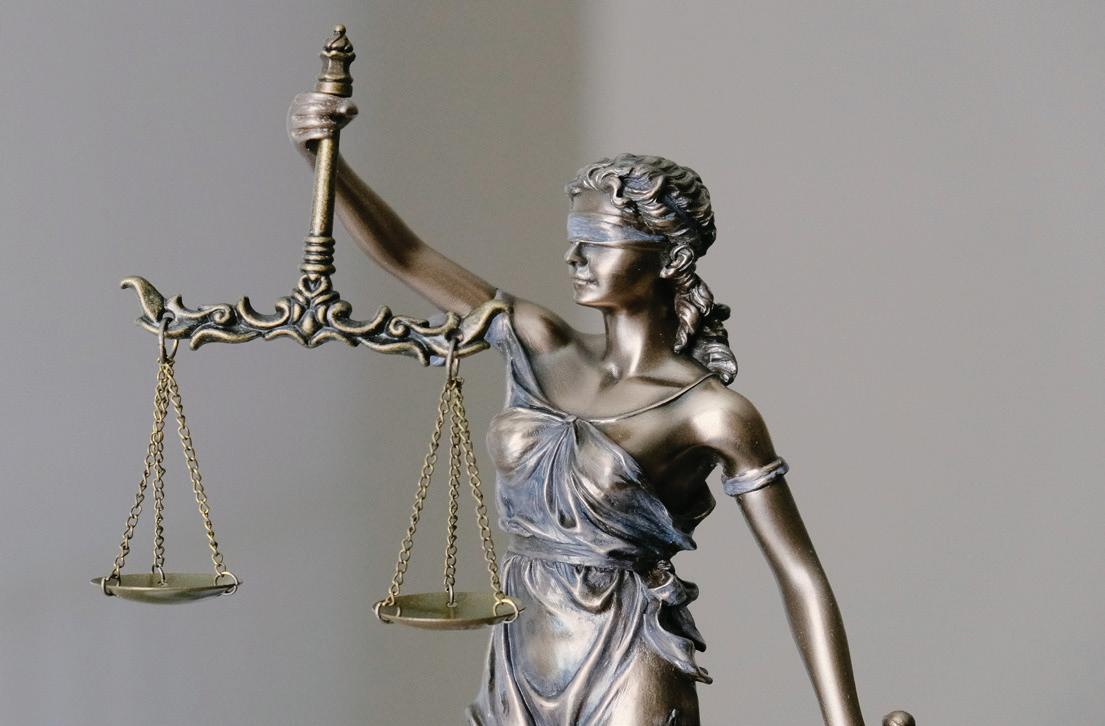
DALLAS HORTON, ESQ.: (702) 380-3100
J. MALCOLM DEVOY, ESQ.: (702) 669-4636
NEDDA GHANDI, ESQ.: (702) 878-1115
AMANDA LAUB, ESQ.: (702) 329- 5282
MORTGAGE COMPANIES
RED ROCK MORTGAGE: (702) 320-9595
ALDERUS MORTGAGE: (702) 255-5783
VALLEY VIEW HOME LOANS: (702) 710-5626
FIRST OPTION MORTGAGE: (702) 669-5400
FAMILY MORTGAGE INC.: (702) 216-3000
DENTISTS
GARDEN COSMETIC & FAMILY: (702) 869-5700
GENTLE DENTAL RANCHO: (702) 680-1009
AFFORDABLE DENTAL: (702) 794-0304
DISCOUNT DENTAL: (702) 386-8811
PEARLY WHITES FAMILY DENTISTRY: (702) 605-7814

Business Spotlight
DOCTORS
DENNIS YUN, M.D.: (702)-386-0882
TEDDY SIM, D.C.: (702) 277-1371
MICHELLE HYLA, D.O.: (702) 386-0882
DR. NEVILLE CAMPBELL, M.D./M.B.A: (702) 476-9700

ANDREW M. CASH, M.D.: (702) 630-3472
CPAS
THE ACCOUNTANT, LLC: (702) 389-2727
DONOVAN THIESSEN, CPA
ELLSWORTH & STOUT: (702) 202-0272
MARK SHERMAN: (702) 645-6318
HALL & ASSOCIATES: (702) 629-1886
SANFORD & COMPANY: (702) 382-1141
LARRY L. BERTSCH: (702) 471-7223
WEALTH MANAGEMENT
REDROCK WEALTH MANAGEMENT: (702) 987-1607
SPARROW WEALTH MANAGEMENT: (877) 330-9191
ARISTA WEALTH MANAGEMENT: (702) 309-9970
CORNERSTONE WEALTH MANAGEMENT: (702) 878-4742

MORGAN STANLEY: (702) 792-2000
SALONS/BARBERS
KAYA BEAUTY: (702) 898-5292
NY HAIR COMPANY: (702) 432-3333
TRUE AVEDA LIFESTYLE SALON & SPA: (702) 364-8783

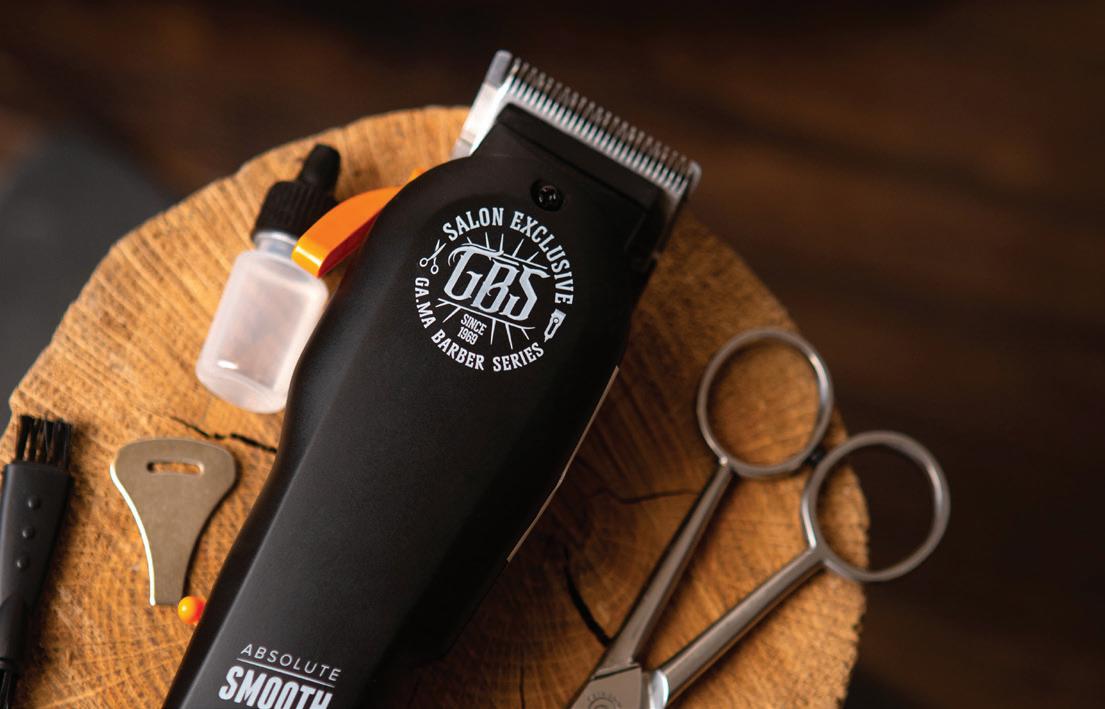
BOULEVARD BARBER SHOP: (702) 384-1453
MYSTIQUE HAIR STUDIO: (702) 432-6006
STATE OF THE MARKET
funding for an electric vehicle tax credit (for new and used light vehicles, and commercial vehicles) subject to several limits (including vehicle price, buyer income, and geographic considerations for manufacturing and supply chain). Subject to certain limits, it also includes the renewal of 30C electric vehicle charging tax credits, and a 30% investment tax credit for solar and storage for 10 years.
Written By Mark Martiak
Alot has happened in the second quarter in terms of market revitalization. With markets making up for some of the downward trends we saw earlier this year and the interest rate being raised by 75 basis points twice between June and July.

We are coming off the hottest July for the S&P 500 since 1939 and the best month for the stock market since November of 2020. On July 27th, the US Senate proposed the ‘Inflation Reduction Act of 2022,’ which includes $369 billion in funding over the next ten years to promote energy security and climate change programs. The proposed bill includes
The legislation, which passed the Senate 51-50 on Sunday, August 7th with a tie-breaking vote by Vice President Kamala Harris, offers tax incentives for reducing carbon emissions, seeks to allow Medicare to negotiate the price of some prescription drugs, allots roughly $80 billion to the Internal Revenue Service and extends subsidies for health insurance under the Affordable Care Act.
Along with a new 15% corporate minimum tax, it creates a 1% excise tax on companies’ stock buybacks and sets aside roughly $300 billion toward reducing the deficit.
Senate passage of the bill out of the evenly divided chamber is a victory for Democrats that seemed
improbable just weeks ago, after talks fell apart between Senate Majority Leader Chuck Schumer of New York and key centrist Sen. Joe Manchin of West Virginia before quickly reviving. Every Republican lined up against the bill, meaning any one Democratic defection could have sunk the effort in the Senate. Because Democrats at various points throughout the year had faced the possibility of not passing any package, they have largely celebrated the deal, even if it is more limited than some of their initial hopes.
Regarding interest rates, the Federal Reserve has raised rates by 75bps after back-to-back FOMC meetings bringing the federal funds rate to 2.50. The federal funds rate, in essence, is the rate at which banks pay interest for overnight borrowing in the federal funds market. This number matters to us as consumers because this rate influences many other rates, such as mortgages, bank and auto loans.

The yield on the 10-year Treasury note, which impacts mortgage rates, has been dropping steadily since its July high of 3.09%, reaching 2.60% as of August 1st. Low Treasury bond yields equate to low mortgage interest rates, allowing buyers to save a bit of money when acquiring a mortgage loan.
And if you have turned on the news recently, you have heard outlets voice their concerns about inflation and rising interest rates. The word “recession” has been thrown around left and right, and people seem to have all sorts of opinions on the matter. Some people say that we are currently in a recession, and some fear a recession in the near future, while others say that a recession in the short term is unlikely, or if there is to be a recession, it will not be a bad one. How do people arrive at different conclusions? Well, the differences lay in the semantics. A textbook definition of a recession might tell you that two consecutive quarters of negative GDP growth means the economy is in a recession. In this case, we would technically be going through a recession right now.
The National Bureau of Economic Research (NBER) would tell you it is a bit more complex than that. The NBER is a nonprofit organization committed to providing impartial economic research. The bureau is highly regarded for its work and is typically sought after as being able to tell when a recession begins and ends. The official definition on the NBER website is as follows: “a significant decline in economic activity that is spread across the economy and that lasts more than a few months. The committee’s view is that while each of the three
VEGASLEGALMAGAZINE.COM | 53
criteria—depth, diffusion, and duration—needs to be met individually to some degree, extreme conditions revealed by one criterion may partially offset weaker indications from another.” So, if you take into consideration some of the positives, we have seen from 1H22, including the strong labor market and high consumer spending, you would say that we are not in a recession despite the two negative quarters. While the risk of a recession has undoubtedly risen as time has passed, there are no tell-tale signs that the danger is imminent.

Great news for travelers surfaced on July 12th as the
euro and the U.S. dollar hit parity (or a 1:1 ratio) for the first time since 2002. This means that the U.S. dollar carries more weight in European countries than in the past, making it more affordable to take that trip to Spain or Italy that the pandemic pushed back. According to CNBC, the near parity between the euro and the dollar mean that Americans will get a 15% discount on purchases today relative to a year ago due to the exchange rate if they travel to one of the 19 European Union countries that accept the euro. A strong dollar also reinforces the Fed’s efforts to boost interest rates high enough to slow the economy into lower inflation. Demand rises for


U.S. Treasury bonds when the dollar gets stronger, which pushes interest rates on those bonds higher.
The effects of the Russia-Ukraine conflict have continued to impact the larger global economy, particularly in the energy sector. As of August 2nd, the national average gas price, according to AAA, sat at $4.189, significantly lower than we saw just a month ago with the incredibly high $4.822/ gal average. While gas prices across the U.S. have seemed to cool down relative to where they were just a month ago, there is no arguing that the geopolitical tension has created this sense of uneasiness around price volatility.
The high prices set for electricity and fuel will likely pressure inflation for years to come. Dealing with high and volatile prices for such a crucial sector of the economy makes the Fed’s job difficult and may force its hand in keeping interest rates elevated.
On a positive note, we did see the first commercial shipment depart from Ukraine since Russia’s invasion. The ship loaded with grain left Port Odessa on August 1st under an internationally-brokered deal to ease some of the global food shortages. It is aimed at Lebanon, carrying 26,000 metric tons of corn. Since Russia and Ukraine are two of the top countries in grain and food exports, food insecurity worldwide will likely see the ramifications of this tension play out for a while. With 14% of the population in Ukraine being employed in agriculture, hopefully, this shipment will serve as a beacon of hope and recovery for the afflicted nation.
Russia and Ukraine are not the only countries that have made recent headlines; however, as Nancy Pelosi visited Taiwan on August 2nd with the hopes of expressing U.S. solidarity with the self-ruled island. This statement has struck a chord with China and the Chinese Communist Party (CCP), as the country disputes the island’s independence. With much happening on both U.S. and Chinese social media platforms, there is a lot of talk about what could transpire from the House Speaker’s actions. Will China retaliate against the United States and strain U.S.-China relations further? It is hard to predict what will come from this move by Pelosi as it is an ongoing event, but we hope to see a peaceful resolution.
Expect the unexpected over the second half of 2022. The markets dictate the economy, not the other way around. Plan and be disciplined about your asset allocation strategies. When you need to be defensive, cash can be your friend.
Mark Martiak is a New York-based Investment Adviser Representative and Accredited Investment Fiduciary® for AGP/Alliance Global Partners, a registered investment adviser and broker-dealer, Member FINRA | SIPC. Mark is a regular Contributor to VEGAS LEGAL MAGAZINE and has appeared on CNBC’s CLOSING BELL, YAHOO! FINANCE MIDDAY MARKET MOVERS, FOX BUSINESS NETWORK and has been quoted in THE WALL STREET JOURNAL.
Research done by Angelo Fodera, associate. Such forward-looking statements are subject to significant business, economic and competitive uncertainties and actual results could be materially different. There are no guarantees associated with any forecast and the opinions stated here are subject to change at any time and are the opinion of the individual strategist.
Data is taken from sources generally believed to be reliable, but no guarantee is given to its accuracy. Indexes are unmanaged, and investors are not able to invest directly into any index. Past performance is no guarantee of future result
The Dow Jones Industrial Average (DJIA) is a priceweighted index composed of 30 widely traded bluechip U.S. common stocks. The S&P 500 is a market-cap weighted index composed of the common stocks of 500 largest, publicly traded companies in leading industries of the U.S. economy. The NASDAQ Composite Index is a market-value weighted index of all common stocks listed on the NASDAQ stock exchange. The Russell 2000 is a market-cap weighted index composed of 2,000 U.S. small-cap common stocks. The Global Dow is an equally weighted index of 150 widely traded blue-chip common stocks worldwide. The U.S. Dollar Index is a geometrically weighted index of the value of the U.S. dollar relative to six foreign currencies. Market indexes listed are unmanaged and are not available for direct investment.
VEGASLEGALMAGAZINE.COM | 55
The Current Change of Direction in the Housing Market
By Daniel Herrera
What a difference two quarters can make in an already volatile Las Vegas Housing Market. It was not too long ago that you could list your home on a Thursday, and by the end of Sunday, without hosting an open house, you would be presented with multiple offers over your listing price. How quickly times have changed.
Throughout the end of 2021 and leading into 2022, Las Vegas had an amazing sellers’ market that the valley was exploiting to the fullest. Then came the gradual increase in mortgage rates which slowly began to lower a buyer’s capacity to purchase. The household that was once qualified for a $500,000 home slowly began to lose their ability to purchase their
dream home. A simple rate increase from 3.5% to 5.5% lowers a buyer’s capacity to purchase by over $100,000 for the average home buyer.
The days of paying over asking price has slowly diminished into the days of buyer’s receiving seller’s concessions. That’s Right! The power has now shifted into the buyer’s hands. With more homes sitting on the market for longer periods of times and median sales pricing also slowly decreasing, the qualified buyers now have the power to leverage with sellers. Buyers can now submit offers at the listing price and can expect to be competitive. Buyers can, again, ask for seller contributions towards closing costs and still have purchasing power with a competitive offer. The market shift has created a slight

56 | VEGASLEGALMAGAZINE.COM
advantage for the well qualified buyer, but that power came with the cost of increased interest rates.
Month over month since May, when the singlefamily home median price peaked at $525,000 (per Las Vegas Realtors, www.lasvegasrealtor. com) there has been a decrease in median price over June and July down to $499,990. Single family homes median price is still up 17.64% year over year, but available homes are also up 33.81% year over year. Inventory hit its low in January of 2022 with 5,572 available homes on the market. As of July, there were 9,854 homes available in the Las Vegas valley. With the basic Economics 101 formula, an increase in supply with a slight decrease in demand the main
change will be the market lowering of price.
A patient buyer can now hold out to purchase the home they want at a price they are willing to pay. The time of extreme pressure being placed on the buyer to act hastily, has for the current time being, come to an end. Well qualified buyers can now leverage their preapprovals into a competitive offer, which will lead to a home purchasing contract where they’re in the driver’s seat. That leverage does come with a slight increase in monthly overhead, but remember, whether you rent or own, you are always paying down on a mortgage. Now the choice lays in whether you want to pay your own mortgage, or your landlords’.

Daniel Herrera is the Branch Operations Manager at Residential Bancorp. He can be reached at 714.878.3112 or daniel.herrera@bancorp.com.
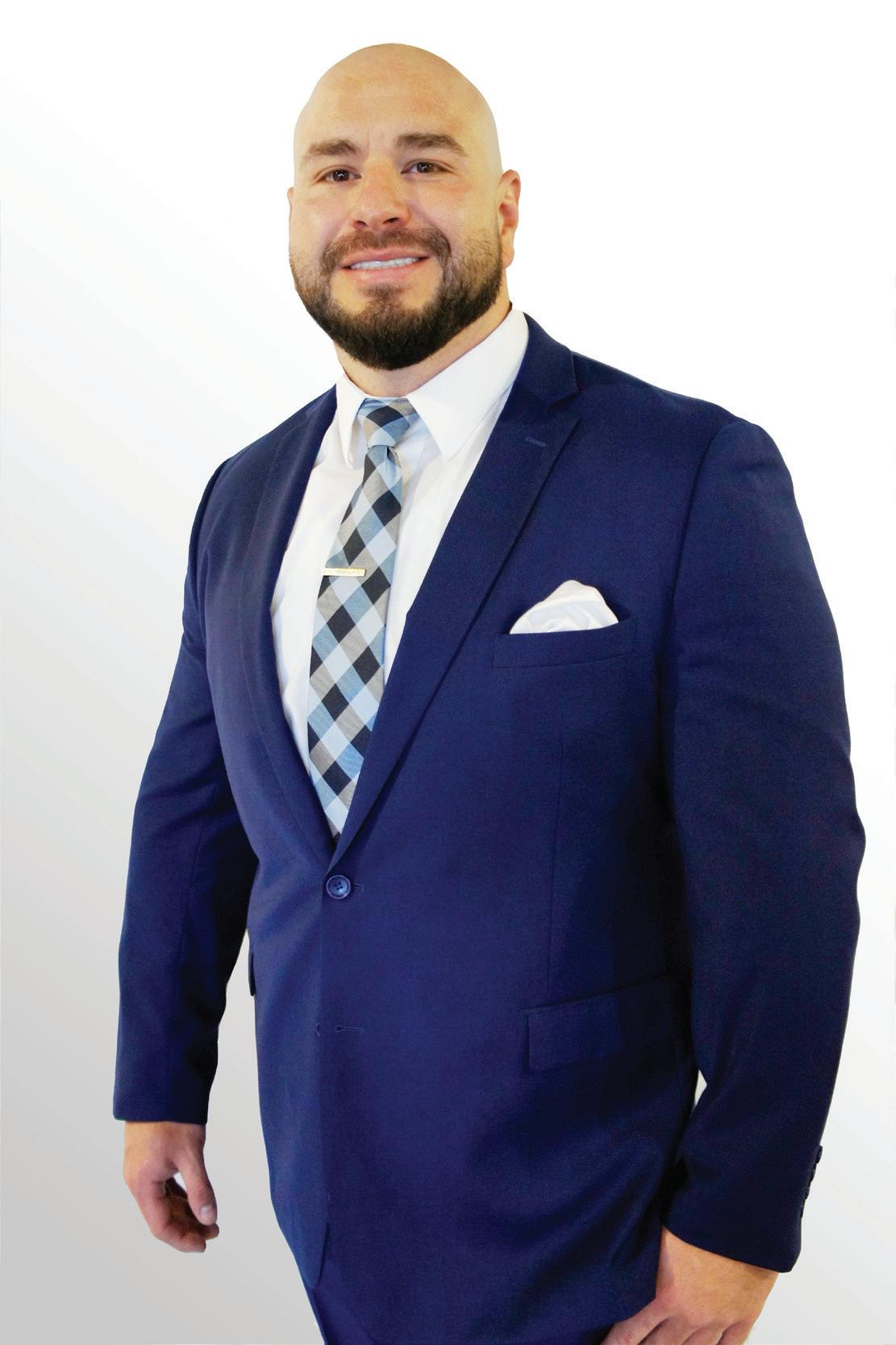
VEGASLEGALMAGAZINE.COM | 57
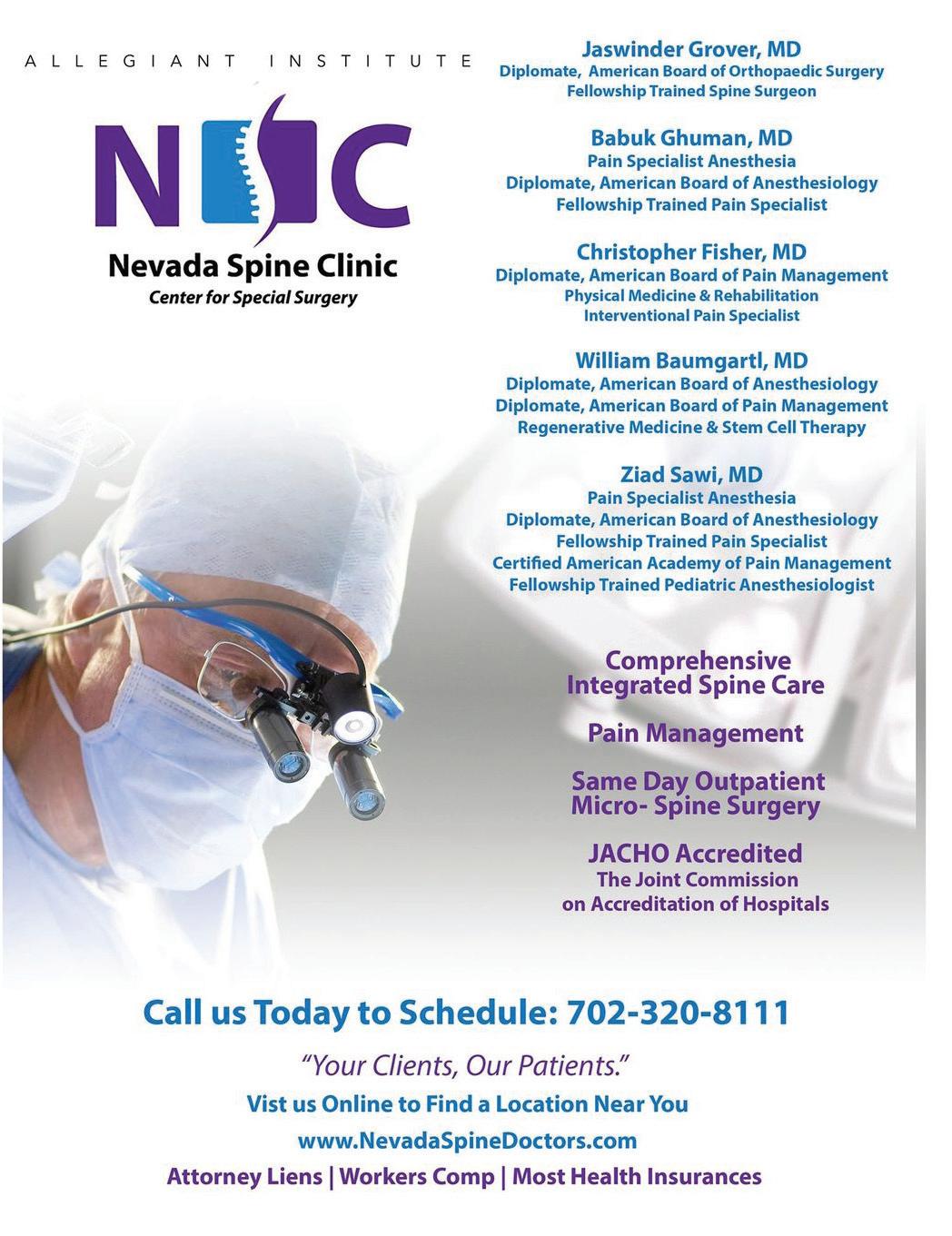
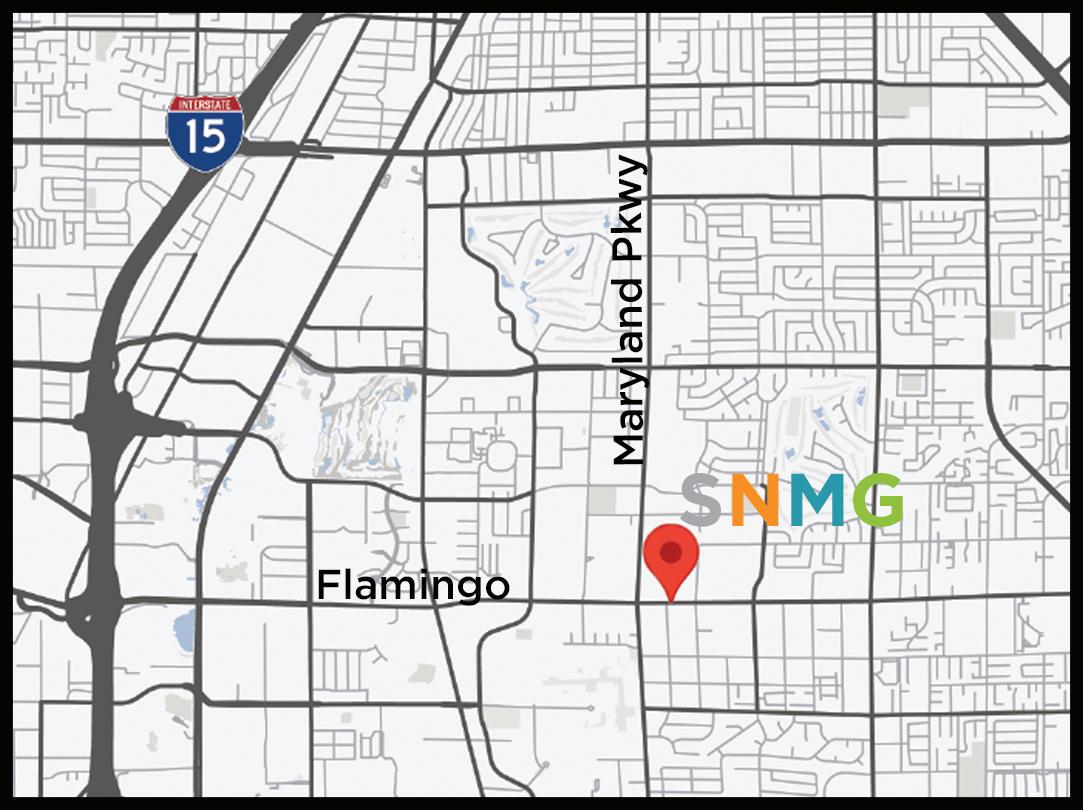
(702) 386-0882 | SouthernNevadaMedical.com 1485 E Flamingo Rd., Las Vegas, NV 89119 Health Centered. Patient Focused. All Email Inquiries: Tyler@SouthernNevadaMedical.com Michelle Hyla, D.O. Board Certified Physician Peter Catlett, D.C. Chiropractic Physician Dennis Yun, M.D. Pain Management Physician What We Offer Meet Our Doctors Medical Evaluations Chiropractic Therapy Massage Therapy Pain Management Send them to one source for all their care. Don’t complicate your client’s recovery. Now Offering Pain Management
ADHD: The Superpower in Business
Written By: Amanda Laub, Esq.
Attention Deficit with Hyperactivity Disorder (“ADHD”) is three times more prevalent in attorneys than in the average population. The prevalence of ADHD in the general U.S. population of adults is estimated to be around 4.4%, yet in attorneys, that number is considerably greater at about 12.5%. For years, ADHD has been mischaracterized as the learning disorder of rambunctious little boys. However, an astounding amount of evidence
has shown that the symptoms of ADHD can be beneficial to business owners and attorneys alike. People with ADHD are 1.7 times more likely to start their own businesses than their counterparts.
First, to understand how ADHD can have such value in the business place, it’s essential to understand what ADHD is. According to the Diagnostic and Statistical Manual of

60 | VEGASLEGALMAGAZINE.COM
Mental Disorders 5 (“DSM 5”), ADHD is a neurodevelopmental disorder where the individual exhibits a persistent pattern of inattention and/or hyperactivity-impulsivity that interferes with functioning or development. In short, a person with ADHD must show consistent symptoms over time for a doctor to diagnose them. It can be diagnosed in childhood or as an adult. A large portion of children with ADHD continue to have symptoms as adults. Unfortunately, because of stereotypes, many people who were not diagnosed in childhood remain undiagnosed in adulthood. As a result, about 80% of adults who have ADHD are undiagnosed.
Diagnosis is important because of the potential detrimental symptoms of ADHD, which can lead to behavioral, emotional, social, and work problems. Further, ADHD is commonly misdiagnosed for other conditions such as bipolar disorder. ADHD is characterized by a lower amount of dopamine and norepinephrine chemicals in a person’s brain. The smaller amount of these two chemicals cause the expressed symptoms. Dopamine is the chemical that makes a person feel satisfied, while norepinephrine is part of the brain’s stress management system.
A lack of dopamine causes a person to have a desire for stimulation, which can be the reason why people with ADHD exhibit symptoms of hyperactivity and/or impulsivity. Some of the expressed characteristics of lower dopamine are: fidgeting, feeling restless, talking excessively, often on the “go,” interrupting others when in a conversation, impatience, etc. Further, the lack of norepinephrine fails to engage the pre-frontal cortex, which is the part of our brain responsible for attention. Moreover, this lack of norepinephrine indicates that people with ADHD are not stimulated like others are by a threatening or stressful event. Symptoms of the lack of norepinephrine include: ignoring detail, making careless mistakes, difficulty maintaining attention over long periods of time, does not seem to listen when spoken directly to, difficulty organizing tasks, often losing things, etc. These
are commonly referred to as someone being “spacey.” For these reasons, ADHD seems like it would be an inhibitor of success, yet its prevalence amongst attorneys and CEOs suggests otherwise.

Along with the negative symptoms of ADHD, there are many positive qualities such as creativity, multi-tasking, risk-taking, high energy, and resilience. For a business owner, these are all highly regarded skills for success. Those “symptoms” allow for thinking outside the box, adapting to problems as they come, and managing multiple tasks efficiently.
Additionally, ADHD has one symptom that is not only counterintuitive but is one of the most powerful weapons in its arsenal – hyperfocus. Hyperfocus is simply an extended focus on one thing. This symptom usually manifests when the person with ADHD focuses on something
they are interested in, causing them to stay focused for hours on end. This ability allows for the long hours of study required in law school as well as time spent learning about business. Conversely, hyper-focus can be detrimental in that if there is something someone with ADHD is passionate about, they focus on that activity for hours on end, ignoring the tasks they need to accomplish.
Due to its chemical composition, an ADHD brain is hyper-stimulated by innovation but does not panic as much with risks. This is a perfect combination for lawyers and entrepreneurs when adequately managed. A lawyer and CEO need to be able to move fluidly from one project to the next and take risks. In the example of a lawyer, managing many cases at once is commonplace, but so is taking risks in negotiation. A lawyer with ADHD can confront cases with new innovative ideas as routine and repetition torment the ADHD brain. Along the same lines, a lawyer with ADHD can confront litigation more easily than their counterpart, as the risks associated with negotiations, motions, court appearances, and the like are less likely to stimulate a strong stress response. Business owners with ADHD can start a business and run a company with that same reduced stress response, as well as the desire for constant innovation to grow and expand. CEOs who have admitted to having an ADHD diagnosis are: Bill Gates, the founder of Spartan: Joe De Sena, Walt Disney, Richard Branson, IKEA founder: Ingvar Kamprad, Jet Blue founder: David Neeleman, Cisco Systems CEO: John t. Chambers, Jim Carrey, and Howie Mandel.
The key to success is finding ways to manage ADHD symptoms to optimize performance. For inattention, having a “to-do” list helps direct attention to the tasks that need to be done. The best way to create a to-do list is to write down the task’s priority next to the task itself because an ADHD brain will automatically go to the most exciting tasks instead of the most important ones. Correspondingly, creating the task list will also trigger a dopamine response each time a task is marked off. A hack to begin

work on more significant projects is to create a task list of smaller milestones, which will keep the ADHD brain engaged. The task list will allow for multitasking when other things come up as it will be able to redirect the ADHD brain back to the priorities. Allowing for multitasking is important because multitasking triggers a dopamine response in the ADHD brain.
Additionally, taking time for daydreaming goals also encourages dopamine production. In terms of hyper-focus, practicing mindfulness and meditation helps turn attention to the present. Equally as important, setting alarms when beginning a task that triggers hyper-focus will allow attention to go to a different task of equal or greater importance.

Although stereotypes and stigma still exist, it’s imperative to break through that wall and see ADHD for what it is, a superpower. After all, one in eight attorneys have it and continue to strive in their careers. The skills that come with ADHD, including creative thinking and problem solving, flexibility and adaptability, the ability to hyper-focus when necessary, and a strong work ethic, are all ingredients for long-term success.

President Biden’s Build Back Better Act has Returned as the Inflation Reduction Act
Written By Donovan Thiessen, CPA
At the time of this writing, in early August, the Senate voted in favor of this amended bill, the Inflation Reduction Act. The next step will be a vote by the House of Representatives, which is expected to occur in mid-August. The House previously voted in favor of Build Back Better by a vote of 220-213 on November 19, 2021. I expect it will be passed quickly, and Biden will sign it into law. What do we need to know for income tax purposes?
The original Build Back Better Act cost $3.5 trillion, which was negotiated to 2.2 trillion, then again to 1.75 trillion. The Inflation Reduction Act is now a $739 billion bill. Politicians aim to address issues we face, such as inflation, climate
change, health insurance premium subsidy expansion, prescription drug costs, reducing the federal deficit, and raising tax revenue. Several tax credits will also be expanded.
Biden has repeatedly promised that taxes will not increase for those that make $400,000 or less (small business owners and middle-class families). In the current version of the bill, this appears to be true. We should watch to see if this aspect changes with the final bill. On the other hand, corporations will be funding a considerable part of the bill in the form of a 15% minimum tax. Companies that make over $1 billion in annual profit will pay 15% of their book income as a minimum tax. Book income
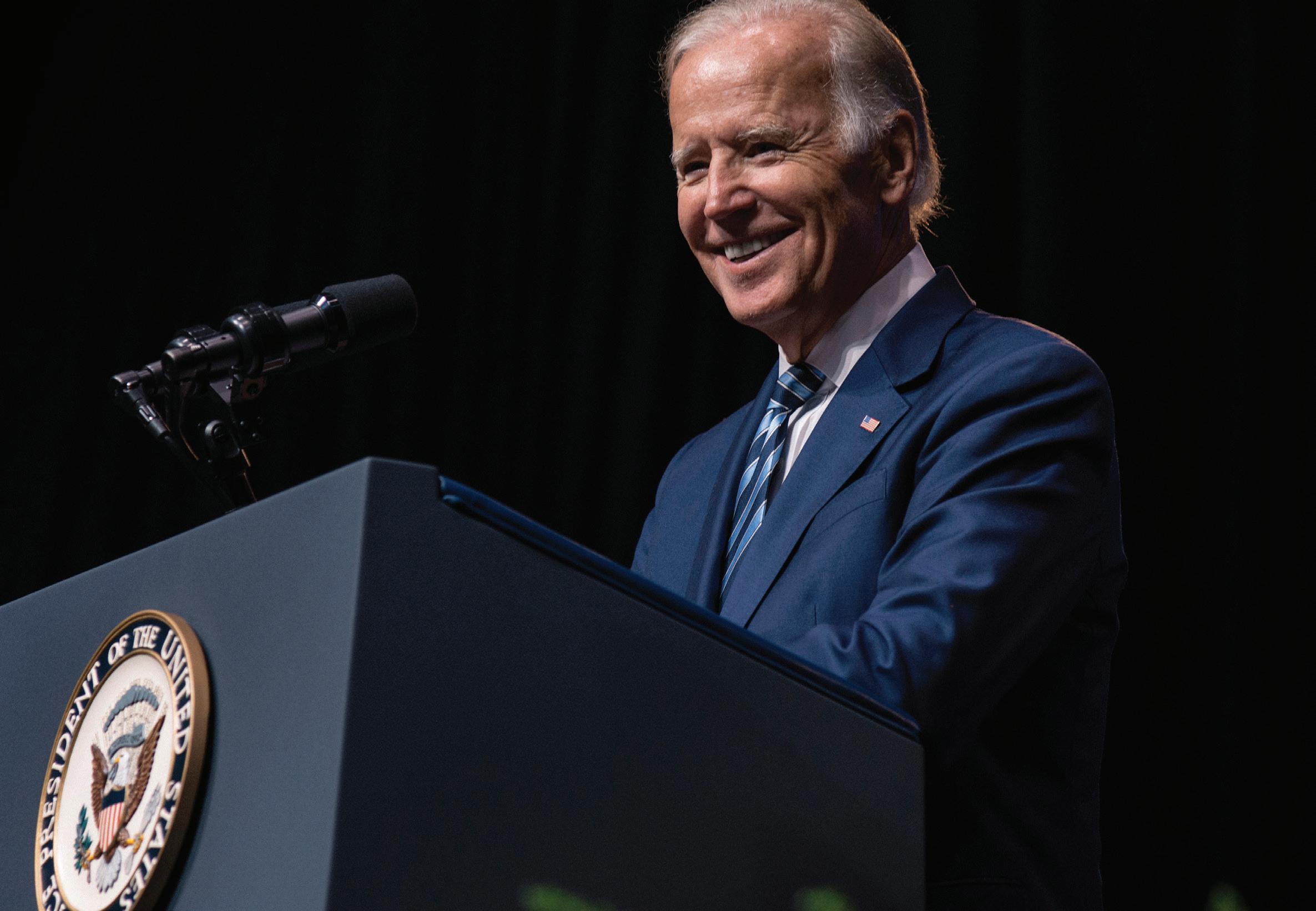
64 | VEGASLEGALMAGAZINE.COM
uses a method of accounting called GAAP (Generally Accepted Accounting Principles) and to shareholders versus taxable income. The difference between book income and taxable income includes adjustments such as accelerated depreciation that can substantially reduce the income base that companies pay income tax on.


Taxpayers with health insurance under the Affordable Care Act will continue to receive subsidies through 2025, as extended by the bill. These taxpayers’ income shall not exceed 401% of the federal poverty line. Eligibility for the ACA premium tax credit was temporarily expanded during the Covid-19 pandemic. Individuals qualifying under the expansion would remain on the program until 2025.
The tax credit for homeowner-installed solar production systems will see a 10-year extension. It is also expanded to include energy-efficient water heaters, heat pumps, and HVAC systems. Solar production systems previously qualified for a 30% tax credit, which has been reduced to 26% for 2022. Without intervention, it was set to reduce to 22% in 2023 and eliminated in 2024. The bill calls for a restoration of the 30% tax credit. Note that this also applies to home storage batteries powered by the solar production system. Heat pumps can qualify
for up to $8,000 in tax credits, and heat pump water heaters will be eligible for credits up to $1,750. Households earning up to 150% of their local median income can claim a maximum of $14000 in total rebates through 2031.
Another popular tax credit designed to increase electric vehicle adoption is the EV tax credit. They have created new language for these “clean vehicles,” which includes hydrogen fuel cell cars. There would be income limitations on individuals seeking to claim these credits, and high-priced luxury electric vehicles are expected NOT to qualify. Buyers of clean vehicles will have an option to tax the tax credit as a discount at the time of the care purchase, rather than waiting to claim it with the individual income tax return filing. I am interested to see if the final bill will eliminate the manufacturer’s sale quantity limitation of 200,000 per vehicle model. This adjustment would immediately impact Tesla’s vehicles’ sales, which have been mainly ineligible for this reason.
This act also provides IRS funding of $80 billion
over ten years. Depending on how they allocate this money, this could be a win for taxpayers and tax professionals. In recent years, the IRS has been saddled with additional ACA compliance and was severely impacted by congressional tax changes during the pandemic (think Payment Protection Loans and Employee Retention Credits) and cryptocurrency tax compliance.
The IRS’s technology needs a significant overhaul. Older and more experienced agents are retiring. Audit rates are historically low. The bottom line is that the IRS does need more money to improve its service levels to a good status for taxpayers and tax professionals. They need money to hire more staff. According to lawmakers, the additional staff will also net more tax revenues through improved compliance (think, more audits). It is purported that they want to use the funds to hire 80,000 additional auditors and agents.

It has been said that the tax code is a form of social engineering. As energy costs, particularly gasoline, have skyrocketed this year, a popular response has been to move from gas to electricity to power vehicles. For people already considering these expenditures, it will push them over the edge. The same can be said for homeowners looking to add solar panels, energy-efficient appliances, and energy systems. Will these intended behavioral changes and increased tax revenues reduce inflation, though? Economists are divided on this; only time will tell
Donovan Thiessen, CPA is the founder and owner of The Accountant, LLC. Our mission is to help business owners make better decisions by providing timely and accurate financial and tax analysis. You may reach Donovan at donovan@ theaccounantcpa.com, www.theaccountantcpa. com, and 702.389.2727.


































You can with more time. That’s exactly what we give you. Waiting for the courts to re-open to settle your client’s case, but need cash now? USClaims can help. We simplify litigation funding so you get funds in 24 hours with no credit check, no risk, and no payments until their case is settled. We’ll work with you to find the best funding options for your client, so call (888) 645-3049 today. Something here is critical to winning your client’s personal injury case. Can you spot it? Litigation Funding Simplified™ Licensed in Nevada Mark Your Calendars! Here are some upcoming events we are sure you won’t want to miss! October 2022 Check us out on social for even more Las Vegas events and news! @VegasLegalMagazine @Vegas_Legal_Mag @vegas_legal_magazine November 2022 December 2022 Fall into Paris FAS44 Oct 1 - 31 Opening Knight T-Mobile Arena Oct 13 Fall Into Paris FAS44 Nov 1 - Nov 19 The Jazz Republic The Smith Center Nov 16 Enchant Christmas Las Vegas Ball Park & Resorts World Las Vegas Dec 1 - Dec 31 Pac-12 Football Championship Game Allegiant Stadium Dec 2










 Louis Stettner/Kiss Under an Umbrella, Jardin des Tuilleries, Paris, France, 1997 © Estate of Louis Stettner/Courtesy The Hulett Collection.
Louis Stettner/Kiss Under an Umbrella, Jardin des Tuilleries, Paris, France, 1997 © Estate of Louis Stettner/Courtesy The Hulett Collection.
Fall into Paris Michael Frey & The Hulett Collection present Featuring inspiring black & white, French-themed images from Louis Stettner, René Grobli, Alain Laboile, and Kit Young. FAS44 4044 Dean Martin Drive, Las Vegas, Nevada 89103 By appointment only through November 19, 2022. 702.735.8322 or info@FAS44.com Join us for the opening reception and meet Kit Young. Thursday, September 29, 2022 4:30 – 7:00 p.m.
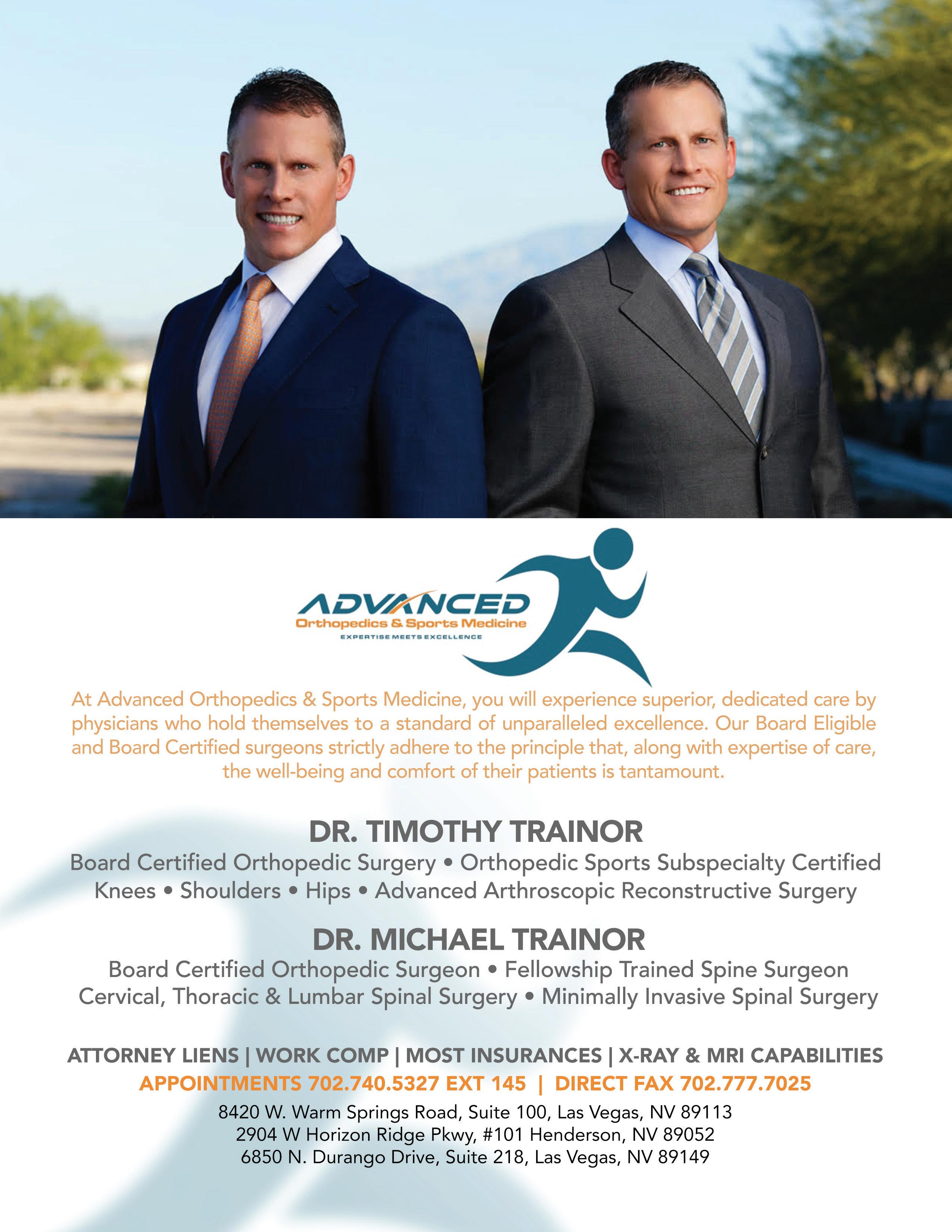


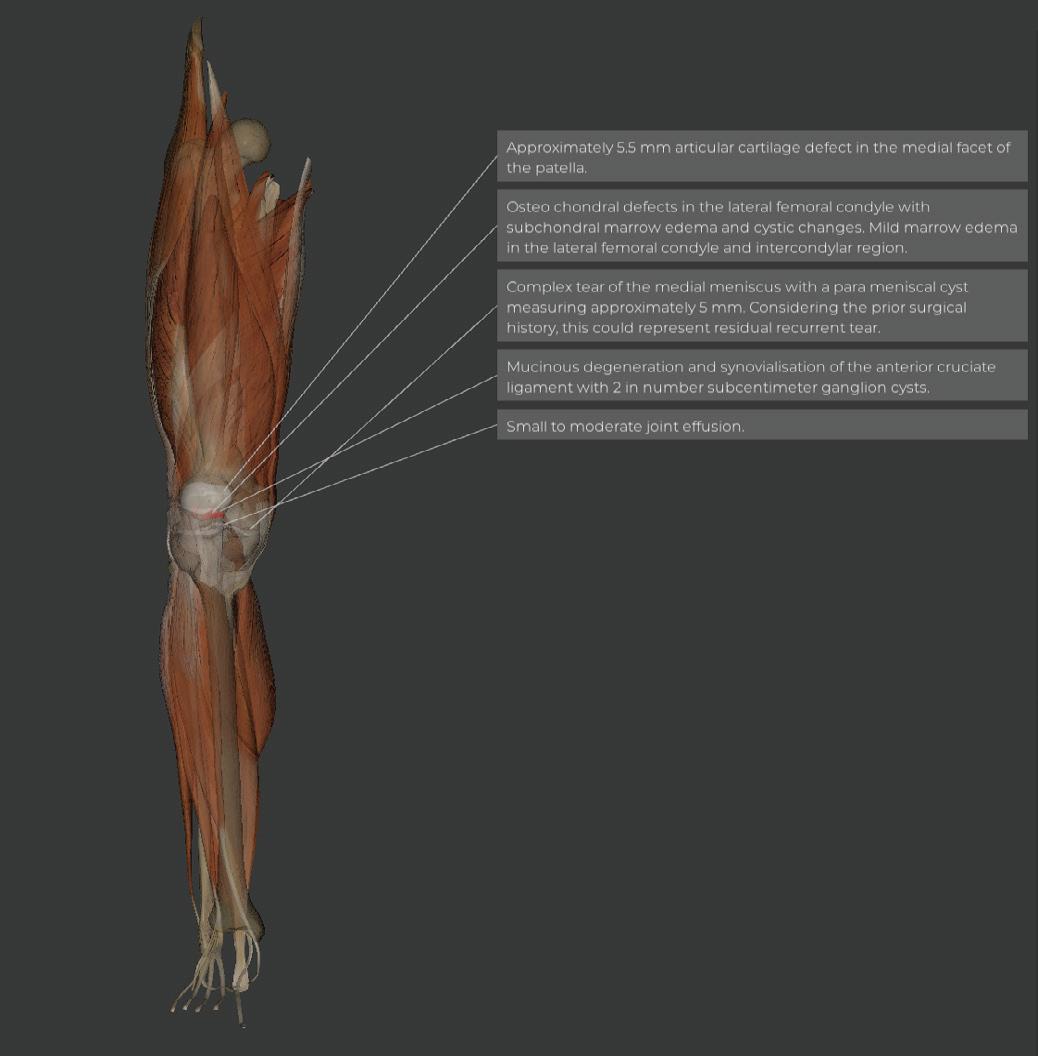
(702) 489.9000 Fax: (702) 489.9001 www.lvcardiology.net (702) 254-5004 Fax: (702) 432-4005 www.lvradiology.com CHEST X-RAY EKG ECHOCARDIOGRAM STRESS TEST Lexiscan Myoview Treadmill Myoview Dobutamine Myoview YOU CAN NOW ORDER PRE-OP CLEARANCES AVAILABLE RENDERINGS Knees Shoulders Spine - Cervical - Thoracic - Lumbar BENEFITS FOR ATTORNEYS No upfront cost Clear demonstration of the injury Can be used to assist in settling claims with adjusters, arbitrators, mediators, or juries Settle faster & more efficiently Client satisfaction 3D MRI RENDERINGS 3D MRI RENDERINGS PRESENTSTomorrow’s Radiology Imaging Today...
Assets of the Future?
CRYPTOCURRENCIES, NFTS, AND THE METAVERSE
 Written By Sagar Raich, Esq.
Written By Sagar Raich, Esq.
At this point, nearly everyone has somehow heard of, used, or owned cryptocurrency. The digital currencies that make up cryptocurrency (Bitcoin, Ethereum, etc.) make national and local headlines for volatility, acceptance with merchants, tax consequences, and regulatory control. On the shoulders of cryptocurrencies stand NFTs, short for Non-Fungible Tokens.
Fortunes are being made (and lost) by those creating and/or purchasing such NFTs. But what exactly are NFTs, what is their potential use, and why should anyone care?
As NFTs started taking off, Meta (formerly known as and the parent company of Facebook), announced its foray into the Metaverse, a digital frontier with its own infrastructure, assets, applications, and even its own ‘land.’ What can be expected of this new, digital wild west?
Contemporary Cryptocurrency Issues
The first major contemporary cryptocurrency issue deals with Uncle Sam. That’s right – one of the biggest issues that anyone involved in cryptocurrency wants to know are how their gains (or losses) are treated for tax purposes. The Internal Revenue Service (IRS) treats cryptocurrency as it does any other asset when it comes to realized tax treatment – when the cryptocurrency is converted back into US Dollars, the IRS expects the holders to recognize any capital gains or losses, subject to the deductibility of any losses1.
Practically speaking, therefore, the IRS is going to be treating cryptocurrency similar to how it treats stocks, bonds, etc. Holders of cryptocurrency must recognize
long-term capital gains/losses if the asset is held for longer than one year; short term traders or those who may buy and sell cryptocurrency for a holding period of less than one year will have to face the, higher, short term capital gains tax.
The second major issue that many are facing regarding cryptocurrency today is that of acceptance of cryptocurrency in exchange of goods and services and the volatility related thereto. Major brands, such as Gucci, are now accepting cryptocurrency.2 As more businesses accept cryptocurrency, more businesses will face the volatility that is currently inherent with holding cryptocurrency and the price fluctuations between cryptocurrencies and fiat currencies like the US Dollar. Bitcoin, for example, which is the world’s largest cryptocurrency by market value, has been seeing significant volatility, which affects many crypto-wallets and owners of such wallets, including businesses.3
While cryptocurrency waddles through the issues of taxation and volatility, sister assets – Non-Fungible Tokens – are taking off.
Non-Fungible Tokens
Non-Fungible Tokens, referred to generally via their acronym, NFTs, are digital assets that provide ownership certification and are built on blockchain technology that can keep track of who is selling and buying the assets.4 NFTs are gaining increasing popularity as certain collections are increasing in popularity, and therefore price.
72 | VEGASLEGALMAGAZINE.COM
NFTs can be purchased via a few marketplaces that exchange cryptocurrency for the purchase of NFTs. The largest such marketplace is known as OpenSea (https:// opensea.io/). To purchase NFTs, users generally must have wallets (storage for cryptocurrency) and can sell or purchase NFTs via listings on the marketplaces. NFTs are gaining popularity as they allow for the digital version of products (such as art) to be able to be traced (for authenticity) and prevent duplications/forgeries. NFTs can also be used to represent ownership of non-digital or real-world assets such as real estate.5
The NFT market is expected to be valued at over $80 Billion in the next few years.6 As the market grows, the likely use of NFTs – and the related legal implications – will likely grow as well. The digitization of famous art works, music, and literature will likely lead to significant expansion of current intellectual property law. The growth of fractional NFT ownership and monetization of future sales and derivative works will likely expand property law as well. The boom in NFTs is also leading to significant changes in contract law, especially via the increased usage of ‘smart contracts.’
Smart contracts are contracts that are programs stored on a blockchain that run when certain conditions are met and automate the agreement and the terms that are needed to be met for the fulfilment of the contract, without using a third-party intermediary or unnecessary time delays.7 Smart Contracts, therefore, allow for parties to lock in their terms, for the blockchain to monitor and verify the fulfilment of those terms, and for the program/contract to assist the parties in exchanging the consideration without further involvement. Smart contracts tend to be more secure than traditional
contracts as the transaction cannot be changed once programmed and the results can only be observed by the parties to whom the program/contract grantsaccess.7 Whether NFTs and their success might be questioned, it is highly likely that implementation of the technology arising from NFTs (and cryptocurrency) such as blockchain and smart contracts will likely increase over time.

Smart contracts are also being used for real estate transactions. While their use expands the real estate in the physical world, smart contracts, NFTs, and cryptocurrencies are also increasingly being used in a digital world, dubbed the ‘Metaverse.’
Metaverse
Facebook, one of the largest social media networks in the world by users and by market capitalization of the company, recently changed its name in to ‘Meta’ in a sign that the company – and the tech world – is seeing itself growing into the digital frontier known as the “Metaverse.”8 If the company that serves half of the world’s population and generates over $86 Billion in revenue sees the Metaverse as the future, the likelihood of the Metaverse being a dominating aspect of technology in the future is very high.8 Understanding the Metaverse, and how it affects the ‘real’ world will be essential for lawyers and non-lawyers alike.
While the exact definition of the Metaverse is still being developed (as technology companies, governments, companies, individuals, etc. figure out the infrastructure of the same), Metaverse, broadly defined, is a virtual world that mimics the ‘real’ world via virtual reality

VEGASLEGALMAGAZINE.COM | 73
and includes individual characters, virtual real estate, virtual economies, and virtual infrastructure that may be accessed via headsets, computers, gaming consoles, phones, and other devices.9 The Metaverse is expected to grow significantly via commitments made by massive corporations such as Microsoft, Nvidia, Snap, and of course, Meta.9
As the Metaverse develops, a few issues are at the forefront and are actively being debated between lawyers, CEOs, strategists, and others. Key issues include how to deal with intellectual property laws and violations, security and privacy concerns, antitrust concerns of a few companies controlling the Metaverse, and potential crimes in or regarding the Metaverse.10
As the Metaverse is expected to be an extension of the real world, the legal issues of property rights in the metaverse, handling disputes in the Metaverse, and related issues will likely dominate the legal architecture surrounding the Metaverse. As of now, a significant amount of light is being shed on the commercial aspects of the Metaverse including the buying and selling of digital land.
While most of us are familiar with residential and commercial properties, digital properties, or land in the Metaverse, are exploding in popularity and therefore investments. The currently decentralized version of the Metaverse (in which multiple verses participate), has been making headlines for individuals and businesses spending millions of dollars on virtual real estate.11
As of the publication of this article, the two largest players in the virtual real estate world are Decentraland and Sandbox and are heavily influenced by both cryptocurrency and NFTs, with cryptocurrency being the currency of choice (or exchanged for tokens in the virtual worlds) and NFTs as actual representations of the land purchased and other NFTs to be access cards and/ or avatars of the virtual worlds.11 The virtual worlds are seeing explosive growth in the user base participating in these worlds with significant real world interactions – including virtual fashion shows and participation from major brands like Dolce and Gabanna and Tommy Hilfiger.11
While money is flowing into the Metaverse, vocal critics of digital land are sounding the alarm. Billionaire and Shark Tank star Mark Cuban, for example, believes that purchasing land in the Metaverse is “dumb” because the purchase is not one based on utility and because virtual worlds can keep creating unlimited ‘lands’ for sale thereby leading to limitless supply and devaluation of current digital land holdings.12 Others are pointing to concerns that if a platform shuts down (bankruptcy,
dissolution, etc.), then it is very likely that the digital land held on the virtual platform will likely disappear as well.13 As the Metaverse and digital lands are new, only time will tell what the pros and cons are of getting involved in the Metaverse and its various facets.
It is very difficult for any individual to correctly predict the future of cryptocurrencies, NFTs, and the Metaverse. Given the current attitude and financial commitments of many – from individuals to some of the largest corporations in the world – it is very likely that cryptocurrencies, NFTs, and the Metaverse will affect all of us and will have significant commercial, legal, and other implications going forward. The more these worlds are understood now, the better off we will be able to implement them, invest in them, and otherwise benefit from them. In the meantime, we can watch the cryptocurrency markets, appreciate NFTs, and dip our toe in the Metaverse.
Sagar Raich is the founder and owner of Raich Law PLLC and practices in business law, real estate law, intellectual property law, and other fields. He is licensed in Nevada and California and attended Harvard University for his Master’s Degree and received his Juris Doctorate degree from the William S. Boyd School of Law at the University of Nevada Las Vegas. Mr. Raich is an adjunct Professor at the University of Nevada, Las Vegas, has been published numerous times in law related magazines/articles/ periodicals, and has appeared on television and other media.
1.https://www.irs.gov/individuals/international-taxpayers/ frequently-asked-questions-on-virtual-currency-transactions
2.https://www.retaildive.com/news/gucci-cryptocurrencypayment-apecoin-euro-coin/628755/
3.https://www.wsj.com/livecoverage/stock-market-newstoday-08-19-2022/card/bitcoin-ether-prices-tumblexJQqCrPTozePsSY1EMFG
4.https://www.npr.org/2021/03/22/979982203/what-the-nonfungible-token
5.https://ethereum.org/en/nft/
6.https://www.coindesk.com/business/2022/01/20/jefferies-seesthe-nft-market-reaching-more-than-80-billion-in-value-by-2025/
7.https://www.ibm.com/topics/smart-contracts
8.https://www.nytimes.com/2021/10/28/technology/facebookmeta-name-change.html
9.https://www.wired.com/story/what-is-the-metaverse/ 10.https://www.forbes.com/sites/forbestechcouncil/2022/02/17/ six-unaddressed-legal-concerns-for-themetaverse/?sh=5c27964f7a94
11.https://www.cnet.com/personal-finance/people-are-payingmillions-for-land-in-the-metaverse-heres-why/ 12.https://www.cnbc.com/2022/08/10/mark-cuban-buying-realestate-in-the-metaverse-is-dumbest-idea-ever.html
13.https://www.fool.com/real-estate/2021/12/22/3-problemswith-buying-land-in-the-metaverse/
74 | VEGASLEGALMAGAZINE.COM
N E U R O L O G I S T
as
for

and
and has developed a state of the
and has been an
is well
and
He has
witness for
to
7 0 2 5 7 0 8 6 0 0 / 5 1 6 3 7 1 2 2 2 5 D R E N R I C O F A Z Z I N I @ G M A I L C O M 2 9 1 N O R T H P E C O S R O A D H E N D E R S O N , N E V A D A 8 9 0 7 4 D R . E N R I C O F A Z Z I N I Dr. Enrico Fazzini is a board certified neurologist with specialty training from Columbia University in Movement Disorders (tremor, dystonia, parkinsons) and a PhD in Behavioral Neuroscience (neuropsychology, cognitive disorder following brain injury) from Boston University. He enjoys diagnosing
treating injuries to the brain and spine. He performs Emg/Ncvs to diagnose radiculopathies and neuropathies
art protocol for detecting brain injury through MRI and MRSPECT scans.
37 years of experience
a neurologist
expert
forensic cases
over 20 years. He
qualified
credentialed
assess patients with brain and spine injuries.
LIFESTYLE

“When you stop learning you start dying.”

-
Albert Einstein
CUSTOM EVERYTHING…
Written By: Ricci J Lopez
Wouldn’t it be great if you could customize everything? Well, in case you didn’t know or forgot, you actually can! We currently live in a world where fast food, fast fashion, technology, online shopping and, NFTs are the new normal. The main culprit: Technology. Tech has changed the way consumers experience shopping. Instacart allows you to choose your grocery items on an app; and you can truly find pretty much anything on Amazon. There are, however, several industries out there that are devoted to providing luxury experiences and custom experiences. They are willing to make the consumers dreams of specificities come true.
First, let’s define custom. What does custom actually mean? Custom simply put: made to order for a particular customer. Everyone deserves to have a custom experience. Does it take time? Yes, you need to be open to devoting several hours of consultations, education, collaboration, and modifications. You will also need to be patient as the custom process takes months to complete. You also need to approach the custom process with an open mind. There may be bumps in the road with unexpected delays and several attempts to get it just right. This is the essence and beauty of the custom
process. All good things take time.
Custom essentials: FFF Fashion, Fragrance, and Fine Art

The art of fragrance making is something that everyone needs to experience at least once. Fragrance is unseen art and is the final step in being well rounded from head to toe. It is a powerful tool used to express individuality and personality. It evokes feelings and is a catalyst in creating memories when associated with particular scents. Perfume is thousands of years old, with evidence of the first perfumes dating to ancient Egypt, Mesopotamia, and Cyprus. Fast forward to 1921, the world was introduced to the house of CHANEL’s iconic fragrance, no. 5. This fragrance changed the face of the fragrance industry and is the reason why we see so many fashion houses with their own proprietary fragrances.
Creating your own custom fragrance is made impressively unique at MACEOO’s flagship store at the Aria Hotel and casino. The Bespoke fragrance bar is conveniently located in the middle of the 6000-sqft showroom. After you have booked an appointment you will have a pre-consultation to discuss your fragrance goals and what is in your rotation. On the day of
78 | VEGASLEGALMAGAZINE.COM
your appointment your perfumer will walk you through the process. You have over 100 unique blends of notes to choose from. These unique blends consist of floral, sweet, fruit, oud, wood, amber, vanilla, citrus, and musk notes. Specific blends will already be set aside based off of the pre-consultation. Now, the magic begins. Scent sticks are used to start the process of creating your formula. You are immediately romanticized by this custom experience. Once the notes have been finalized your perfumer will do the chemistry in front of you and will then add the notes to the bottle followed by the sealing of the bottle. If a client wants to take the process a step further; Maceoo will have their in house artist add art to your bottle.
Fashion
The art of tailored clothing and custom clothing is a must have for every man (and woman). A majority of today’s men wear prêt-à-porter (also known as ready to wear) clothing that is massproduced in factories. In fact, studies show that a very small minority of men experience and dress in custom clothing. Hundreds of years ago most garments were handmade by tailors. During the late 1840s in Mayfair, London Henry Poole was the first bespoke tailor to arrive on the infamous Savile Row. Throughout the Victorian age and the 20th century, Savile Row shifted from residential to primarily a street filled with bespoke tailors and very high profile clients ranging from royalty to literary scholars and celebrities.
Currently, there are luxury retailers around the world who have custom clothing offerings. MACEOO Aria’s custom clothing experience is a cut above the rest. When you book your appointment you will have access to their speak easy VIP design room. Behind the mirrored door you are greeted with an explosion of color and opulence. Pre-consultation, an introduction to luxury textiles from Italy, and design are all a part of your appointment. Head to toe measurements are taken followed by a styling
session. After the measurements are taken you head back to the VIP room where you can digitally design your garments on their movie theater sized LED screen. You are truly your own designer and you are not at the mercy of what is hanging on the shelves. Two to three months later you will have your first fitting to make sure you’re happy with your garment. Any adjustments made by their master tailor will be adjusted on your digital file.
Fine Art
Finally, fine art is interpreted differently than fragrance and suiting. We all have our own perspective on an abstract piece and on many other types of art. Often times, we are confused and overwhelmed with trying to figure out the meaning of a painting. This truly defeats the purpose of art. You can change that by commissioning an artist to create a custom painting (or whichever type of art you are interested in). When you commission an artist you have some control over your wants and needs and can express that to the artist. Ludovico Sforza, Duke of Milan, commissioned Leonardo da Vinci’s The Last Supper in 1494. Later, Andy Warhol helped introduce art commissions into the mainstream. Throughout the 1960s, famous icons, such as Liza Minelli, Diana Ross and Elizabeth Taylor, sought out collaborations with the Pop Art legend.
Do research and choose your artist wisely. This is a very special acquisition and enjoying it should be a top priority. Establish what you want and be sure that your artist is comfortable with your specific request. Stay in close contact with your artist and make sure to follow his/her progress to ensure they are creating the perfect piece of art for you and your loved ones.
Donate that old suit, move that bottle of fragrance to the side, and take that poster off of your wall and make room for your new custom gifts!
VEGASLEGALMAGAZINE.COM | 79
Atomic Liquors
 Written by Don Logay
Written by Don Logay
80 | VEGASLEGALMAGAZINE.COM Entering the decade of the 1950s, Las Vegas was still a small town with only 24,624 residents in the entire surrounding area. Older downtown hotels and early gaming establishments were fast giving way to the introduction of a new breed of big flashy Casino/Resorts ushered in by Bugsy Siegel’s Fabulous Flamingo on Las Vegas Boulevard just a few years earlier. Blast from the Past “Atomic Liquor” by Tom Hilton is licensed under CC BY 2.0
In rapid succession, iconic names such as the Desert Inn (1950), Sahara (1952) and Sands (1952) were built, and by 1954, more than eight million visitors were spending over $200 million annually for 24/7 gambling, adult fun and superstar entertainment at the exciting megaresorts that lined the town’s new one-of-a-kind neon-drenched “Strip.”
It was a classic example of what Mister Webster defines as a “boom” – “a time of great prosperity and rapid economic growth.”
Another Boom for Las Vegas
While fun and excitement took place in the city, serious business was about to be seen and heard nearby. It also qualified for Mister Webster’s primary definition of a boom.
On January 27, 1951, residents were awakened with an early morning explosion as Atomic Bomb testing officially began at the new 680-square mile U.S. Government Nevada Test Site located just 65-miles North of Las Vegas.
Testing began with detonation of an airdropped one-kiloton bomb above a secreted area in the desert site known as Frenchman Flat. It was the first of 100 such atmospheric aboveground tests followed by another series of 928 underground tests over the next four decades.

“While somewhat fascinated by this initial unannounced testing, in 1953 concerned Las Vegas residents began demanding greater transparency,” notes Darwin Morgan, President, Nevada Test Site Historical Foundation (that oversees the National Atomic Testing Museum in Las Vegas).
“The Atomic Energy Commission was under a lot of pressure to announce testing schedules, which it did,” he states, “and as a result... inadvertently... it also ushered in an era of ‘Atomic Tourism’ that lasted pretty much through 1957.”
Dawn – Time to Party
“Most above ground tests were detonated
in the early morning hours,“ Morgan adds, “silhouetted against a dark sky for optimum photographic and cinematic studies.”
Bursts of light and towering mushroom clouds from the atmospheric tests could easily be seen off in the distance. In 1952 and 53, Nevada’s tests were also being shown on national television and featured in popular magazines.
Soon, one’s plan to have a blast in Las Vegas also included... seeing a blast. Calendars throughout the city listed detonation times and the best vantage points to view the tests.
Atomic fever gripped the nation. In bombcentric Las Vegas, casinos hosted stay-upall-night “Dawn Bomb Parties,” trendy bars offered Atomic-themed cocktails, crowds watched Atomic parades and showgirls with Atomic hair-dos competed in “Miss Atomic Blast” beauty contests.
Atomic Tourism in Vegas continued from the mid-1950s until mid-1962, with only one brief
moratorium. In August 1963, a multi-nation Limited Test Ban Treaty officially put an end to atmospheric surface tests and any future testing was to only be underground.
Off the Beaten Path
During the heydays of vintage Las Vegas and the era of Atomic Tourism, a small unassuming restaurant on a not-yet-popular stretch of East Fremont Street had no idea it was poised to become a lasting legacy of the famed Atomic days of yesteryear.

During the late 1940s, Las Vegas residents Stella and Joe Sobchik took over a small restaurant that Joe’s Mother, Virginia, had built on some property she had inherited.
Virginia’s Café was located at 917 East Fremont Street, many blocks away from the activity downtown and miles away from the glitz and
glitter of the Strip.
For a few years, Stella and Joe dutifully manned the grill and cooked for the locals. It was also during this time that the Atomic tests began taking place... and creative customers – often with secreted alcoholic drinks in hand – climbed onto the roof for a good unobstructed view of the mushroom clouds climbing high in the sky.
Eventually tiring of the restaurant biz, they decided to close the café and purchased a license for an easier-to-operate liquor store instead. Based on the town’s “theme du jour,” they named it Atomic Liquors.
In June 1952, a hard-to-get liquor “pouring” license also became available and was purchased when Lido Lounge closed in the nearby El Cortez Hotel and Casino. It allowed Atomic Liquors to augment its takeout trade
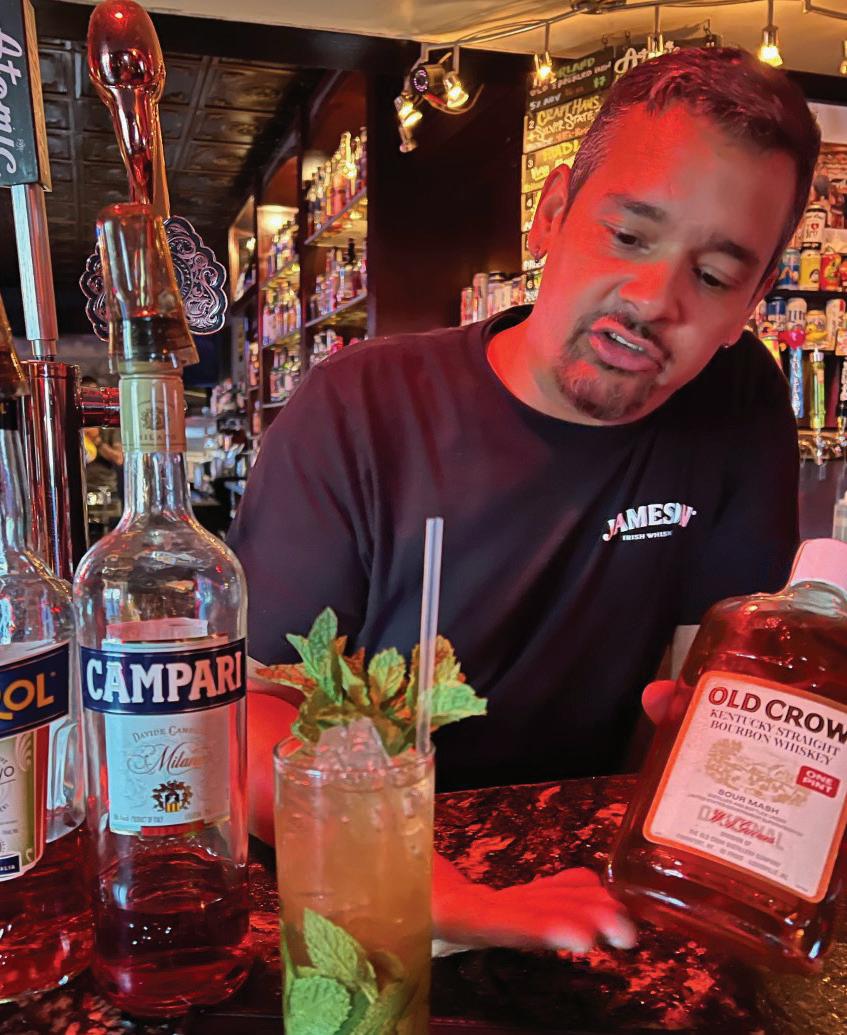
82 | VEGASLEGALMAGAZINE.COM
Bartender Dean Howard (left) tells the story behind the special “Hunter S. Mash” cocktail made with Old Crow Bourbon Whiskey. Barbra Strei sand’s favorite corner barstool (right) is still there adorned with a big white star. Photos courtesy Don Logay.
with the sale of in-house “over the bar” beer, wine and mixed drinks. It also created a new dual category called a “Tavern License” and Atomic Liquors was issued the very first one... bearing license #00001.

On April 20, 1954, a Las Vegas “Business License” was issued for Atomic Liquors as well. It listed the early phone number 7371.

Who’s Who of Famous Customers
Word soon spread of the comfortable atmosphere found in this little neighborhood bar, and Atomic Liquor’s steady clientele of locals began to see well-known celebrities come in as well who were looking to avoid the attention they attracted on the strip or Downtown.
Any given night might find the Rat Pack downing martinis in the wee small hours after Sinatra’s performance at the Desert Inn, Sammy’s show the New Frontier or Dean and Jerry’s gig at the Flamingo.
Sandwiched in at the bar might also be regular visitors like Clint Eastwood, Roy Rogers and the Smothers Brothers trying to look inconspicuous.
In her memoir, Barbra Streisand mentioned how she loved coming in late nights to hang out and play pool after her shows at the International Hotel. She always sat in the same seat at the corner of the bar and today, her favorite bar stool is proudly adorned with a big white star.
Hunter S. Thompson was another regular who hung out while in town on various writing assignments for big national newspapers and magazines. He covered many Vegas events –like the famed Mint 400 Off-Road Races – and is best known for writing “Fear and Loathing in Las Vegas.”
He also liked to drink and his beverage of choice was Old Crow Bourbon Whiskey. One of Atomic’s famed house drinks today is a special
VEGASLEGALMAGAZINE.COM | 83
Watching atomic bomb mushroom clouds at Nevada Test Site was a common site on Fremont Street in the 1950s (above). Photo Courtesy National Atomic Testing Museum
cocktail – called the “Hunter S. Mash” – made with Old Crow Bourbon in honor of the legend.
Film and TV Credits
Atomic Liquors has also been featured in many famous movies, such as Roy Rogers’ 1946 “Helldorado,” Clint Eastwood’s 1977 “The Gauntlet,” Joe Pesci’s pen-in-the neck scene in Martin Scorsese’s “Casino” (1995) and more recently the car crash scene in “The Hangover” (2009). Television credits include “The Twilight Zone” and A&Es realty crime series “The First 48,” to name but a few.
One of the best-known TV episodes is Anthony Bourdain’s “Parts Unknown” that aired live from Atomic Liquors on Sunday evening, November 10, 2013. The season finale, titled “Last Bite,” was a one-hour show featuring famous chefs and celebrities along with patrons of the popular downtown bar.
This past June, Atomic Liquors introduced the first “Anthony Bourdain Day” as an annual tribute featuring a special “Atomic Bourdini” styled after his favorite cocktail, the Italian Negroni.
70-Years of Vintage Vegas
Atomic Liquors was only closed for a brief period in 2011, when – after nearly 60-years of continual operation – original owners and on-site personalities, Joe and Stella Sobchik, passed away at 91-years of age and just three months apart.
“Atomic was purchased shortly afterward from the Sobchik’s son, Ron,” notes Manager, Chris Gutierrez, “and it reopened under new ownership on Thursday, June 20, 2013.”
“While there were a few minor updates here and there,” states Gutierrez, “the new owners were one-hundred percent dedicated to keeping everything just as it was back in Atomic’s heyday in the 1950s.”
And so it is. Take a few steps into the bar and you are immersed in vintage Vegas to the max. The room is dimly lit and the first thing you notice is that there are no gaming machines built into the bar. As a result (gasp) people are actually talking to each other.
In place of the pool tables, which are long gone, big booths and tables add a welcoming coziness. Just past Streisand’s “starred” favorite bar stool and must-have juke box, are doubledoors leading to an expansive outdoor patio that seats up to 200 on a busy weekend.
If you’re looking for a touch of that “Cheers... where everybody knows your name” vintage Vegas vibe, check out the town’s oldest freestanding bar. Pull up one of the original bar stools, say “hi” to the friendly bartender and order a specialty house cocktail.
“Atomic is a nod to the past with our face towards the future,” adds Gutierrez, ‘Seventyyears and counting.”
Today’s Atomic Liquors truly is... a “blast from the past.”
Don Logay is an award-winning journalist and former Editor-in-Chief of three national magazines. Today he writes luxury lifestyle articles for numerous publications. He can be reached at (949) 240-4444 or press@donlogay. com.
To the right: Anthony Bourdain did a one-hour live broadcast from Atomic Liquors for his “Parts Unknown” TV series. Photo courtesy Atomic Liquors
84 | VEGASLEGALMAGAZINE.COM
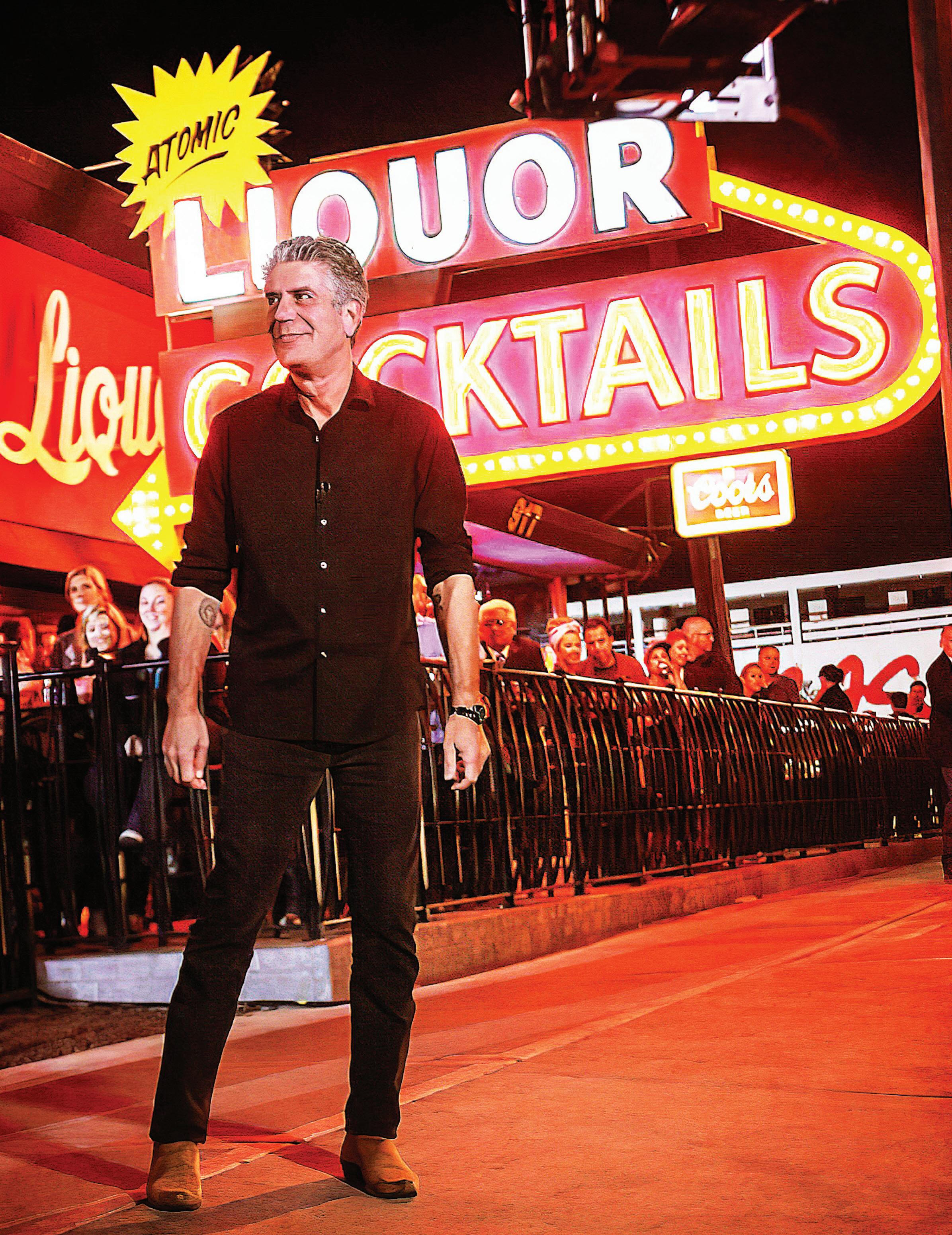
THE SMITH CENTER
Thank you to the Southern Nevada Health District
By Myron G. Martin, President and CEO, The Smith Center
It is always a privilege to contribute a story to Vegas Legal Magazine. In the past I have fo cused on legal issues that affect the entertain ment capital of the world such as ticket scalping and important community matters. Of course, I have also shared stories about the beauty of the arts and entertainment.
Today, I am pleased to dedicate my column to the people of the Southern Nevada Health Dis trict. Before the pandemic, many people prob ably thought of the Health District as the group that inspected food service establishments. Patrons applauded their work while some food servers feared them. I am sure that the words “Oh no, the health inspector is here” have been uttered more than once here in the valley.
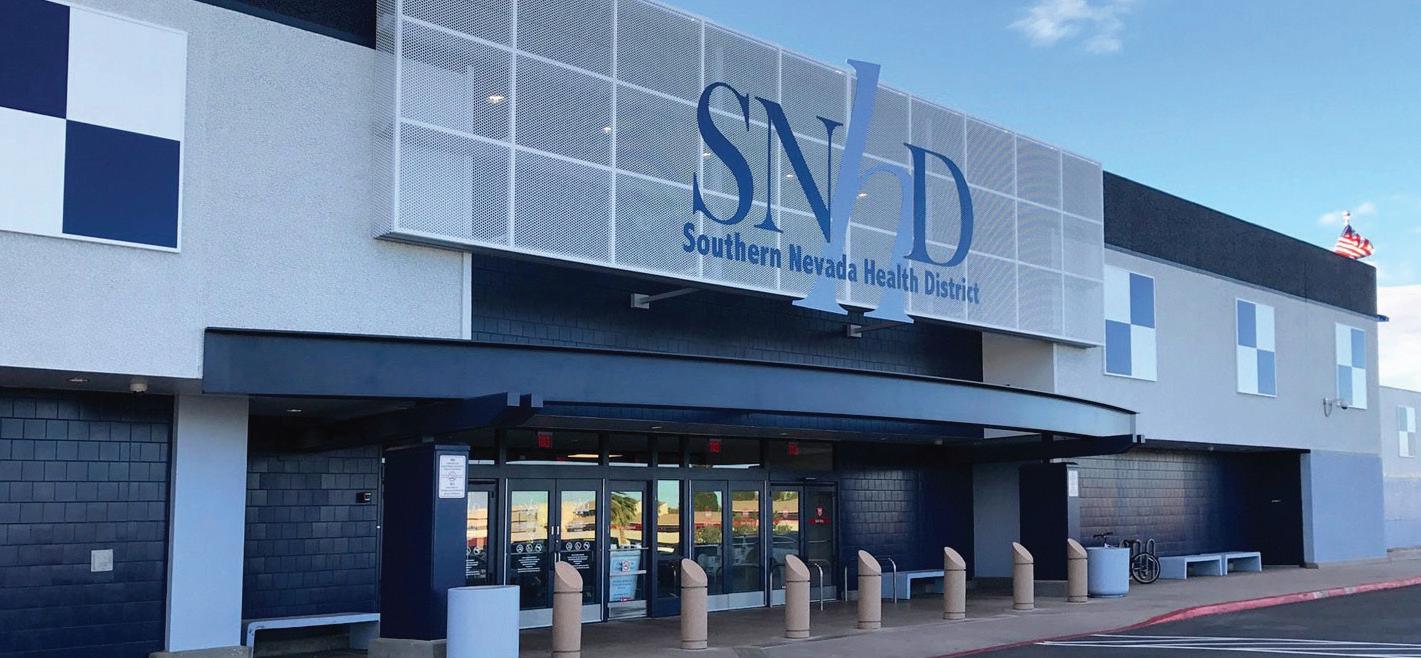
I’ve never really talked about this, but the Health District taught me a very important lesson back when we were opening The Smith Center in 2012. All throughout the opening process, they were extremely tough on our culinary partners and held them to a very high standard, without exception. While it was sometimes frustrating, I learned to be grateful and made sure to thank them. That’s because everything about The Smith Center was designed to operate at a high quality, and food service was no exception. I ac tually loved it when the Health District tested the water temperature in the hand wash sinks, checked for food safety, and insisted that every thing be done at the highest possible standard.
You see, I know what it is like to get sick from food. I attended a conference many years ago
86 | VEGASLEGALMAGAZINE.COM
in Northern Nevada and returned home with a serious food-borne illness. It was not fun. I quickly learned that hot food needs to be hot, and cold food needs to be cold. This experi ence changed how I looked at food and never again did I accept food kept at potentially un safe temperature levels. So, I truly appreciated it when the Health District constantly reminded our culinary partners that food safety was im portant in our city and to our city. I know that being a Health District inspector can sometimes be a thankless job, so please allow me to say thank you to the many inspectors who go out of their way to keep our restaurants around the valley safe for our friends and families.
And the Health District does more than food safety. They offer training programs, health cards, vaccinations, and even offer a health center. What would we have done over the last twenty-four months without the Health District?
The Smith Center counted on their expertise to fully understand when we needed to shut down, and when it was safe to reopen. They re minded us of the importance of proper mask wearing and taught us the value of things like MERV filtration, electrostatic cleaning, social distancing, and all the other aspects of dealing with Covid-19. We counted on the Centers for Disease Control and Prevention (CDC) and the Health District to advise us on how to success fully reopen our doors, when to require masks, how to check vaccination records, and, most importantly, how to keep our employees, artists and guests safe.
The Smith Center took the challenge of Covid-19 very seriously and so carefully played by the rules established by health profession als. While we have a lot of very smart people working here at our world-class performing arts center, none of them are immunologists and so we greatly appreciated the valuable counsel of the Health District and others. Once we were able to reopen, we strictly abided by the rules set by these authorities and others, including the unions who represent the performers who appear on our stages. We tested our backstage crew regularly, invested in new technology, and did everything we could to keep our doors open. It wasn’t easy, but today The Smith Cen ter is a testament to what can happen when you do the work and don’t cut corners.

I remember getting my first vaccination at the Las Vegas Convention Center, along with a gazillion other Southern Nevada residents. The Health District handled this challenge master fully. Even though these were uncharted waters, these community leaders didn’t skip a beat. I got my boosters from the Health District, and even counted on them when I needed a Covid test. This agency has been here for us in a big way – and in many ways.
So, on behalf of my Smith Center family, I say thank you to the people at the Southern Ne vada Health District. For many years you have looked out for our community. When we need ed you, you went above and beyond. THANK YOU.
VEGASLEGALMAGAZINE.COM | 87
VEGAS LOOP
First of its Kind for any Destination
Written by Don Logay
On November 15, 2019, a huge earth moving machine fired up in a parking lot just off the Las Vegas “Strip” and began digging a revolutionary concept that soon will serve all of Las Vegas, and quite possibly, extend far beyond.
It is the first step in a massive master plan envisioned by Elon Musk to complete and link a series of tunnels beneath cities to create a futuristic underground transportation system and network unlike anything ever seen before – and Las Vegas, the city of visionaries, gamblers and high-rollers, has placed a huge bet on it.
For three months, hi-tech tunneling equipment, owned by The Boring Company – a subsidiary of Musk’s Space Exploration Technologies Corporation (SpaceX) – began digging deep into the earth beneath the newly expanded Las Vegas Convention Center.
At the speed of one mile per hour and a rate of 100feet per day, history was being made, slowly and methodically, 40-feet beneath the surface for the first segment of an expansive project that will soon be known as the “Vegas Loop.”
Haven’t heard of it? You will soon.
LVCC Loop
The first taker for Musk’s plan was the Las Vegas Convention and Visitors Authority (LVCVA) that committed $53 million for the “LVCC Loop” – two underground tunnel highways connecting its four exposition halls.
The first 4,500-foot tunnel took three months and was completed in February 2020. The second was finished in May 2020. Together they totaled 1.7 miles.

88 | VEGASLEGALMAGAZINE.COM
Photo courtesy Las Vegas News Bureau / Las Vegas Convention and Visitor Authority
When all interior work was done, the highlyanticipated LVCC Loop officially opened with great fanfare in April 2021 – with two subterranean “highways” and a fleet of Musk’s all-electric Tesla automobiles whisking conventioneers through dramatically illuminated 12-foot round tunnels to three exhibit hall stations spread across the sprawling 200-acre site.

Currently, the LVCC Loop transports tens of thousands of passengers per day for all conventions (SEMA 2021 handled 24,000 to 26,000 riders per day, for example) and it reduces a previous 45-minute cross-campus walk (often in sweltering Las Vegas heat) to a cool free transit time of just two minutes.
“This milestone is an important step in the development of a game-changing transportation solution in Las Vegas,” states Steve Hill, President of the Las Vegas Convention and Visitors Authority.
Resorts World Station
On June 30, 2022, the second phase of Musk’s dynamic plan became a viable reality when the new “Resorts World Station” opened for business.
With the same design, a dual underground tunnel extension – owned and paid for by Resorts World – now also connects the new Casino/Hotel directly to the Las Vegas Convention Center and its recently completed LVCC Loop.
“Today marks a monumental moment not only for our resort, but for Las Vegas,” states Scott Sibella, President of Resorts World Las Vegas. “Our passenger station makes the transition between our resort and the Las Vegas Convention Center easier than ever.”
But, Wait...There’s More “Resorts World Las Vegas is now also poised to connect to the expanded ‘Vegas Loop’ system,” Sibella continued, “when development efforts move forward on this innovative transportation system... and it will eventually connect us to many key destinations throughout the city.”
The Resorts World Station is just the first of 55 proposed stops that will eventually line a “Vegas Loop” that soon will be transporting tens of thousands of passengers per hour throughout downtown Las Vegas and the Strip resort corridor.
Photo courtesy Las Vegas News Bureau / Las Vegas Convention and Visitor Authority
The Vegas Loop underground highway system is slated to be constructed in two major phases that will ultimately extend the existing LVCC Loop and Resorts World Station segments to a city-wide loop of 29-miles with two parallel tunnels running 14.5 miles in each direction.
From Resorts World, it will circle Downtown, Fremont Street and the City of Las Vegas to the North and run South directly beneath the Las Vegas Boulevard Strip all the way to Allegiant Stadium and Harry Reid International airport.
Getting Underway
An initial stage-one agreement made with the City of Las Vegas City Council will extend the Vegas Loop from Resorts World to five currently planned stations with stops at landmarks like the Stratosphere and Fremont Street Experience.
The Clark County Commission also recently unanimously approved a Special Use Permit and Franchise Agreement for the proposed 29-mile tunnel transportation system designed by The Boring Company (TBC).
The Special Use Permit allows TBC to apply for, and receive, building permits to construct the proposed tunnels. The Franchise Agreement allows the company to operate the system, collect fares and oversee advertising and partnerships.
The mega-million development and construction cost of the overall Vegas Loop tunnel system will be fully paid for by The Boring Company, while individual stops and passenger stations – each costing up to $20 million – will be funded by participating Hotel/Casinos and ridership will be fare-based for passengers.
“We are very excited to take the next steps,” notes Steve Davis, President of The Boring Company. “and look forward to working with Clark County leaders and our partners throughout Las Vegas, to build a fast, safe transportation system for this incredible destination.”
Las Vegas Takes the Lead
The Vegas Loop represents the first-of-its-kind transportation solution for any city anywhere in the world – and for a tourism destination, such as ours,
 Photo courtesy Las Vegas News Bureau / Las Vegas Convention and Visitor Authority
Photo courtesy Las Vegas News Bureau / Las Vegas Convention and Visitor Authority
it not only offers convenient transportation and reduced congestion throughout the resort corridor, it also adds another level of world class stature for all of Las Vegas.
“For many years, we’ve talked about how having options for meeting our tourist and resident transportation demands... to get to/from their destination... is so important,” notes Mike Jansen,
City of Las Vegas Executive Director of Infrastructure. “Now, with this project, we see the Vegas Loop as a great opportunity to free up traffic capacity on the surface level.”
Clark County Commission Chairman Jim Gibson, who also serves on the board of the Las Vegas Convention and Visitors Authority, agrees, “The Vegas Loop is an exciting development for the Las Vegas Strip and the resort corridor.”
“Hundreds of thousands of rides have already been enjoyed by convention-goers to date... and there will be many more as the system expands,” Gibson observes. “There will also be fewer cars on our surface streets, which is significant for reducing traffic congestion and improving air quality.”
“Local taxpayers will benefit in that the system is privately financed, as well,” he adds. “As the Vegas Loop expands and matures, there will be more users and will soon see the safe use of autonomous cars and larger vehicles operating in its tunnels.”
On that last point, 700 to 1,000 Tesla automobiles will initially have drivers that will then give way to autonomous self-driven models. Over time, larger multi-passenger electric vehicles will also travel the underground highway system.
“These are all things worth celebrating,” Gibson concludes.
Today and Tomorrow
The Vegas Loop is a reality and is expected to begin phased-in construction in 2023 with anticipated completion within the next three- to five-years.
In short order, you will be able to zoom from the Las Convention Center to Harry Reid airport non-stop in a matter of five minutes for an estimated $5.00... or from Fremont Street to the airport in eight or nine minutes for $12... and to many other locations
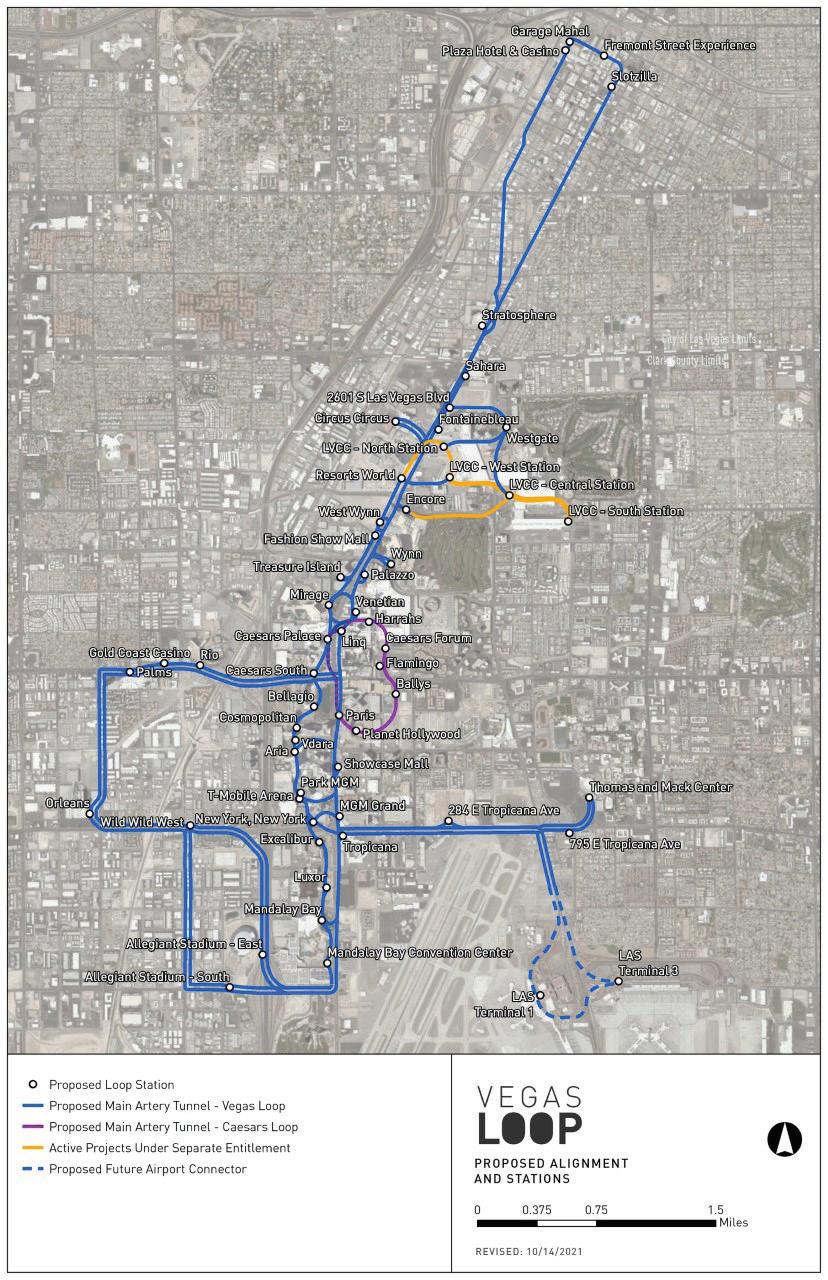 Courtesy City of Las Vegas and Clark County Commission
Courtesy City of Las Vegas and Clark County Commission
around the city through the network of underground tunnels just as easily and economically.
You’ll also have cell phone service and Wi-Fi connectivity and – should at some point – the existing system reach transport and passenger capacity, Musk states additional tunnels could easily be dug in as many layers as needed, 40- to 50-feet deeper apart.
But for Musk and City Planners, the Vegas Loop is just the beginning. Projects are already on the drawing board to have numerous tunnels running to other locations and cities throughout the Las Vegas Valley, such as Henderson, Summerlin and Pahrump.
While Las Vegas and its Loop are poised to be the flagship model city for futuristic transportation, if successful, it seems there is no end to the possibilities that lie ahead – both for the nation and the world.
Tunnel Vision
In December 2016, Musk tweeted: “Traffic is driving me nuts. I am going to build a tunnel boring machine and just start digging.” Within six months, he formed The Boring Company and began test tunneling in the SpaceX parking lot in Hawthorne, California.
Today, Musk is even contemplating a high-speed underground tunnel highway for the 270 miles from

Las Vegas to Los Angeles... and another 381-mile segment between LA and San Francisco... then on, as a viable traffic solution for any number of other major cities, such as New York, Chicago, Miami and the Dallas/Fort Worth Metroplex, to name but a few. Famed European locales, such as Paris and London, are also in his sights.
Ten... Nine... Eight...
If all this were not enough, Musk’s parent company SpaceX and its subsidiary – The Boring Company – are also teaming up to realistically envision the colonization of Mars populated with vast underground cities.
Crazy? Maybe not. Keep that in mind in the days ahead... as you fasten your seatbelt for a George Jetson-worthy speedy underground trip to Fremont Street.
The countdown officially began on November 15, 2019, when a huge earth moving machine fired up in a parking lot just off the Las Vegas “Strip” to begin digging Musk’s revolutionary concept that will soon serve all of Las Vegas and, quite possibly, will extend to a universe far, far away.
We are in the pioneering mode... and simply along for the ride.
By Steve Jurvetson from Menlo Park, USA - Elon Musk Accelerates the Boring, CC BY 2.0

THOUGHTS ON HAVING A ROUTINE
Written by Dr. Cash
The fall is here and what better time to restart your mindset. It is another opportunity to look at our goals and accomplishments for the year before January. In this vein, we often overlook how satisfying “routines” are. They are also very helpful and an important part of our wellbeing.
Studies have shown that establishing routines is a great way to move more efficiently through your day. Forming routines can also help us
maintain physical and emotional health especially during stressful times.
We are all inundated with personal, work and societal challenges. Social media overload is also a major stressor. Humans are creatures of habit. Routines give us an opportunity to improve our daily mindset through structure and organization. People who don’t have any type of routine may deal with:

94 | VEGASLEGALMAGAZINE.COM
1. Poor sleep
2. Poor eating habits and physical condition
3. Being ineffective and unproductive at work and home

We have all had those sleepless nights thinking about a “to-do” list that’s unrealistic and long. We have trouble sleeping thinking of all the things we failed to do. When we get up, we are sleep deprived, irritated, depressed. This vicious cycle goes on and on for a lot of people without a routine. The stress and anxiety take up valuable time and energy. Did you know anxiety eats brainpower? Identifying a routine that fits your lifestyle will be beneficial.
Some ways a routine can help include:
1. Effective time management; take small steps. Block out time for something fun every other day if possible. It can be as easy as a quick call to a friend who makes you laugh or reading something funny.

2. Better health, eating habits will help with your sleep. You will start feeling refreshed. Sleep affects your mental sharpness. All of these go hand in hand in our lives.
We are all unique. We do not require the same things. You do not need a fully “scheduled”
day of meetings and activities. Have fun with it. Routines do not have to be boring. Make choices that work for your lifestyle.
While thinking about this topic we googled “books on creating routines” and it was an eye-opener what came up. Try it and see for yourself. Give it a shot before the New Year gets here. Who knows what 2023 will bring us. We have all been through so much these past two years.
Let’s give each other a break. Make the choices that work for you. You could be setting an example that will inspire others.
A
REMEMBERS OLIVIA NEWTON-JOHN WITH INSIGHTFUL INTERVIEW
 Written by Valerie Miller
Written by Valerie Miller
One of the perks of being a reporter is getting the opportunity to occasionally interview a true legend. If you are lucky, that person will be someone that is a joy to interview, as well. Olivia Newton-John was all that and more, and I had the great pleasure of interviewing her in the spring of 2014, when she had launched her “Summer Nights” residency show in Las Vegas.
Olivia Newton-John, as a singer and actress, was somebody I was somewhat aware of at a very young age -- albeit maybe not by name. My mom saw the 1978 movie “Grease” and talked about how much she loved that musical. (I would later be gifted the 30th anniversary DVD by my brother, and became a huge fan as well).
The Australian-born singer passed away on Aug. 8 at age 73, after battling breast cancer – three different times – over three decades. But Olivia Newton-John was nobody’s victim. Besides her career, she dedicated her life to trying to help others fight breast cancer – and other cancers as well. The entertainer founded many others charities, including “Pink and Blue for Two,” which also raised awareness for prostate cancer. She was also adamant that I also mention her “One Tree, One Child” organization, which combined two of her great loves – helping
children and trees.
Olivia Newton-John took up causes close to her heart. Her joyful spirit and optimism shined through during my brief interaction with her. She was so down to earth, and just plain nice. She never acted like a celebrity.
So, I was very saddened to hear of her passing. We have truly lost not only a great talent, but a great person, as well.
On a more cheerful note, as Olivia Newton-John always tried to be optimistic, I hope the readers will enjoy hearing from this truly amazing person one more time.
So, please enjoy the interview, and I know Olivia Newton-John’s optimism is something we can all use a little more of in today’s world.
Valerie Miller: Thank you so much for taking the time. I have to admit that I am a huge fan, and my whole family are huge fans. So, this is the most excited they have ever been about a story I have been doing.
REPORTER
Olivia Newton-John: Oh, that’s nice. Thank you!
VM: I am a little star struck, and I am not usually. So, my first question: A little girl that I know wanted to be your character, Sandy from Grease, for last Halloween. And I was surprised that she had seen Grease, being so young, and I wondered: What do you attribute to that movie’s, like, long-lasting appeal? (All these) years later, you have children wanting to be your character for Halloween, and are fans of that movie.
ONJ: (Laughs). Oh, well I think there is something timeless about the story. It was a big hit even before the movie was made. You know, people love the ‘50s, and they love the whole costume, and makeup and the hair, and everything. People find the ‘50s fun, you know, because it was a great era. I think the music was very romantic, and fun and good dance music and everything. So, I don’t know, if I knew the secret, I would have bottled it, and done it again. That movie just has kind of a magic energy. And, I was talking to someone earlier about the fact that the producers used to come by the set every day, and rev us up, and tell us how great the day was looking and what great energy it had. And the photographer and the director, (did that) too,. They kept us excited most days. Because we were all in our 20s, and we all had to be 16 or 17 … (laughing). I mean, it was interesting, because we all felt that age anyway. But, it was just a great energy, and the music itself was very catchy and fun, and somehow or another, and the way we shot it, and the way the chemistry worked with everyone, it was just one of those magical moments.
VM: I am probably going to watch that (Grease) movie again tonight, and watch Xanadu. So … (laughing).
ONJ: Oh, good! (laughing).
VM: That was a good one too! (laughing).
ONJ: Oh, that’s funny, because that (Xanadu) movie became kind of iconic, too. But I think it was really the music. Because some of the script wasn’t that great. But now it is kind of funny, (laughing) and the music really lasts (laughing).
VM: I think that is what it is really fun.
ONJ: It is fun.
VM: I was going to ask you about Xanadu: How did it feel to dance with Gene Kelly in Xanadu?
ONJ: It was scary, of course! I had never tap danced before in my life, and I had to go and learn. For three or four months, I took tap (dance) lessons. I guess it was like the modern “Dancing with the Stars,” which I was doing before – with a real star! (Laughs).
VM: I was going to say … and you were dancing with Gene Kelly, so you (might have been nervous).
ONJ: So, it was very intimidating. But (Kelly) was great, but he rehearsed a lot with me. And, it was great experience.
VM: So, what made you decide to do a long-running show in Las Vegas? Everybody here is glad you did, but I was surprised that you decided to do a long show -- a residency show.
ONJ: (I did it) because I have been touring a lot over these last five years. I traveled … (in 2013), and (2012) actually. I traveled
a lot, and I went all over the world. And, you know, touring is very wearing, and the idea of sleeping in one place, one bed, ah, unpacking a suitcase, is really appealing to me … In a place that is state-of-the art. And you don’t have to do a sound check every day, because the sound is the same. And, with all the wonderful things that Las Vegas now has to offer … because I have been working here 30 years, on and off, but Vegas is a different place now. It has got a lot of appeal, especially for a girl. You have the shops, and the great restaurants, and anything you want, you can get it.
VM: So, I was going to ask, how has Vegas changed – for somebody who has been performing her for like you said, 30 years?
ONJ: Well, just as I was saying, those changes are huge. When I first came to Vegas, there were dirt roads, and few casinos, and gambling, and lots of drinking. But there wasn’t all this nice food or good shopping. But if you look now, you have shopping everything. And, I used to go there a lot to go shopping. Before all the big malls were in, you had Nieman Marcus there, and that was one of the best ones in the country. I used to love to go there shopping and for lunch. But now you have everything.
VM: And it has changed tremendously.
ONJ: It has.
VM: You have become really well known now as an advocate, and trying to find a cure for breast cancer … and (advocated) for breast cancer research. And, of course, you are a breast cancer survivor, and congratulations on that.
ONJ: Thank you.
VM: That’s amazing. I was wondering: What kind of advice would you give other women about early detection, and also about (in a) worst-case scenario, they are diagnosed with breast cancer?
ONJ: Well, I guess for women who have been diagnosed. The best thing I can say is that I am here, (all these) years later … whatever it was, ’92. So, that is the positive side … that you can get through this. I feel very grateful that I did. But you can get through it. But you have to keep a positive attitude. You have to do everything you can for your body. You have to put yourself first, which, as women, we find very difficult to do. You know, even when we are sick, we tend to worry about our families and our friends, and there’s a time you have to focus on yourself and let other people take care of you a little, which is a different mindset for a lot of women. (Laughing a little).
VM: Yeah, I’d agree.
ONJ: You have to eat well, and think well, (in) body, mind and spirit, you need to take care of yourself … meditative or whatever kind of spiritual practice, you need to tune into that. Do something for yourself every day that feels good, (whether) that is taking a hot bath, or a walk or laughing … Find people that you trust to take care of all the phone calls. That’s what is wearing when you are going through any illness, but particularly breast cancer, is that people are always calling you to find out how you are. And, that can be exhausting. You need to find somebody that you trust to take on all that, and just focus on healing.
VM: That makes a lot of sense.
ONJ: Yes.
VM: And, by the way, you do look amazing. I was going to ask you: What is your secret? Because you just look awesome. Is there a secret you have for looking so youthful?
ONJ: Oh well, you are very kind.
VM: It’s true.
ONJ: You know, I think it is … I am married to an amazing man (John Easterling), who has a herb company, Amazon Herbs. He gives me handfuls, three times a day (laughing). I am not on any medications. I eat well. I am lucky genetically. My mother looked really good, even into her eighties. So, I thank her very much (laughing) … and my dad. I exercise, although I am not crazy about it. I walk my dog every day. I use the gym and the treadmill, and all these things, and keep healthy, and try to laugh and live in the moment (laughing) … as much as possible.
VM: And, of your movie roles, is there one role that, ah, that is the closest to your personality?
ONJ: And, I don’t know. I think we all have different parts of our personality, or you can imagine you would dare, dare enough to be that personality. You know, I am a lot older. When I did Grease, I was 29. It was me as a young women … There were parts of me. I don’t think there was one I would say was most me, ah. There are bits of me in all of them (laughing).
VM: Do you have … I think everybody would love to see that. Do you have a favorite song, out of all your songs, or is that like picking out your favorite child?
ONJ: Yeah, it is hard to pick a favorite song … But I like them all for different reasons. They are all different parts of my life.
VM: You carried the Olympic torch in 2000 in Sydney.
ONJ: Yes!
VM: How big an honor was that, in terms of all the things you accomplished in your life?
ONJ: When people ask me what are the biggest highlights of my life, my mind goes to the Olympics, representing my country. I sang, also, in the opening ceremony … And, just to walk out on that stage, and look at that audience, of young, hopeful athletes in that arena was mind-blowing, really, and very exciting, and a big honor. And then I also carried the torch. I got to do two things: I ran around the Sydney Opera House, with the torch, and my daughter Chloe was allowed to run with me. She ran behind me. That was really amazing.
VM: That had to make it even better, that your daughter was there with you.
ONJ: Yes, that was very special.
VM: I was reading about the big controversy when (your hit song) “Physical” came out, in 1981. Were you concerned that “Physical” was going to hurt your girl-next-door wholesome image?
ONJ: Yes, I freaked out, actually. When we made the record, put
it out, I had a panic attack! (Laughing). I called my manager and said, “I think we have gone too far. I think we need to pull it off the radio! It’s too much!” and he said, “It’s too late. … It is taking off.” And, before I knew it, it was like number one. It was like 10 weeks at number one. (Laughing). …. So, I said, ”Ahh! Let’s go in and make a video, and let’s make it about exercise! (Laughing). So, it was really hilarious when I think about it … It was very funny. Looking back, it was very hilarious to me. But I was banned in Utah, as well.
VM: You were banned in Utah?
ONJ: I was banned, yeah. I wasn’t very thrilled about that. (Laughing).
VM: You know, I think that may be a good a thing. (Laughing).
ONJ: I know! (Laughing). Now days, I think it is a considered that. But at the time, I was flipped out about it. And then I recorded my concert video in Utah. Can you believe it? So, here I was banned, but everyone turned out. They didn’t care at all. It was very funny! I was concerned, but nobody else was, which seems to work the opposite now days. (Laughing).
VM: I think there is nothing like bringing out fans -- to somebody or something -- by saying someone by saying someone banned. Then everybody wants to go see them.
ONJ: Yes. Isn’t that bazar?
VM: It’s kind of has the opposite effect.
ONJ: Yes, It’s weird like that.
VM: Is there anything else you would like to talk about?
ONJ: The Olivia breast health kit, which is actually in a number of hospitals.
VM: You have done so much for breast cancer awareness.
ONJ: My husband is John Easterling, they call him “Amazon John” because he has spent so much time in the Amazon, finding wonderful herbs for healing. And we have been married for ….. (then)five years … I lost track, it is terrible. (Laughing). And he is amazing, and an incredible speaker about the Amazon, and the Amazon products ….. And now we have merged with a company called “Trivita.” So, we sell our products through Trivita now.
ONJ: Yeah, he has a drink, and a number of other herbal products, and he really gets me through. With his schedule, and lifestyle, and every day, he puts a pile of herbs in my hand. Yeah, it is wonderful. And we both do a lot for the rain forest, through the Amazon Center. (and) through education and research -- and helping the people of the Amazon. (This includes) education and water -- these kinds of things. He’s been going down there for (more than) 30 years.
VM: You know, I have to say, I am so impressed with you. Not just for your music and movies, but the way you are so dedicated, to your causes.
ONJ: Thank you! That is so nice of you to say!
Valerie Miller is a Las Vegas Valley-based journalist. She can be reached at (702) 683-3986 or valeriemusicmagic@yahoo.com.

HUMOR



























































































































































 By: Andréa Vieira, Esq.
By: Andréa Vieira, Esq.






















































































 Louis Stettner/Kiss Under an Umbrella, Jardin des Tuilleries, Paris, France, 1997 © Estate of Louis Stettner/Courtesy The Hulett Collection.
Louis Stettner/Kiss Under an Umbrella, Jardin des Tuilleries, Paris, France, 1997 © Estate of Louis Stettner/Courtesy The Hulett Collection.




 Written By Sagar Raich, Esq.
Written By Sagar Raich, Esq.






 Written by Don Logay
Written by Don Logay










 Photo courtesy Las Vegas News Bureau / Las Vegas Convention and Visitor Authority
Photo courtesy Las Vegas News Bureau / Las Vegas Convention and Visitor Authority
 Courtesy City of Las Vegas and Clark County Commission
Courtesy City of Las Vegas and Clark County Commission





 Written by Valerie Miller
Written by Valerie Miller

